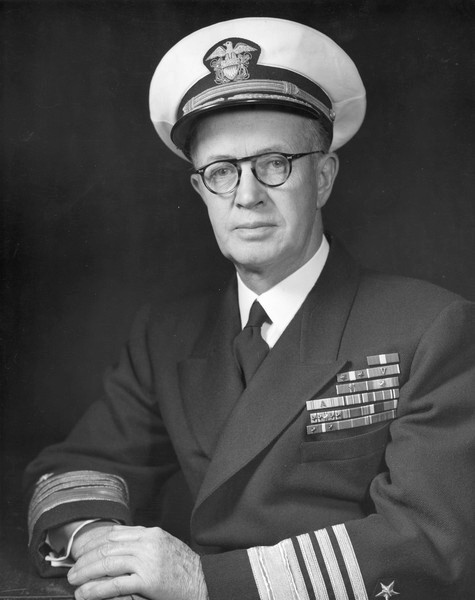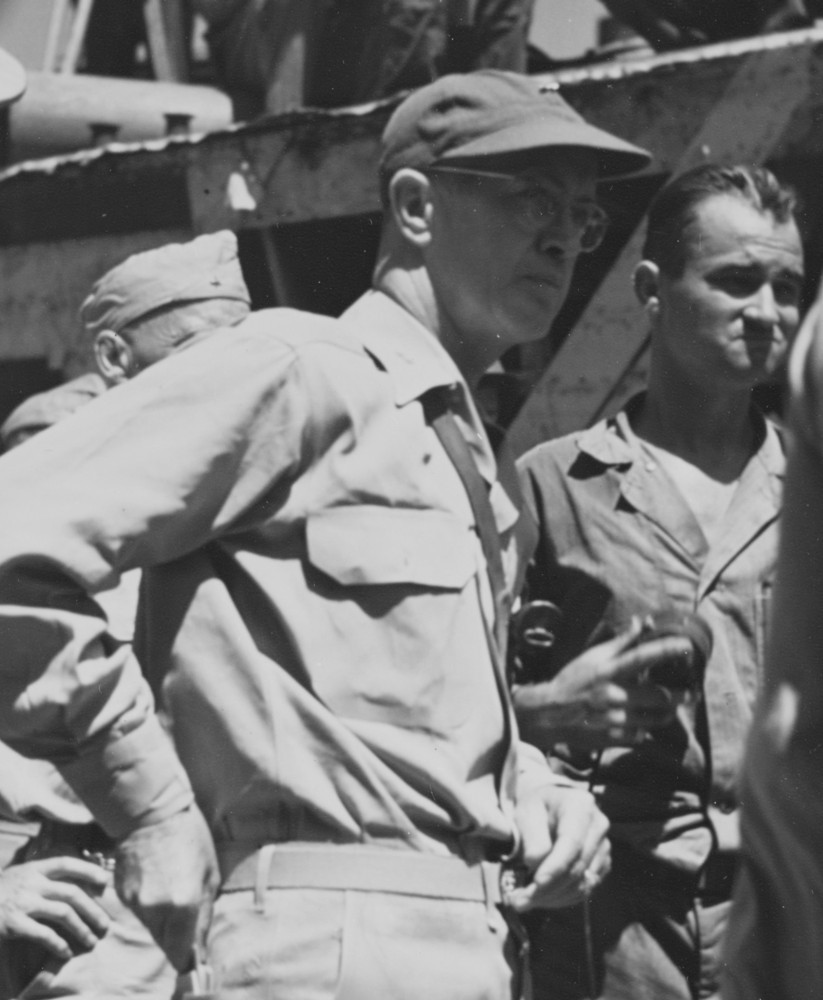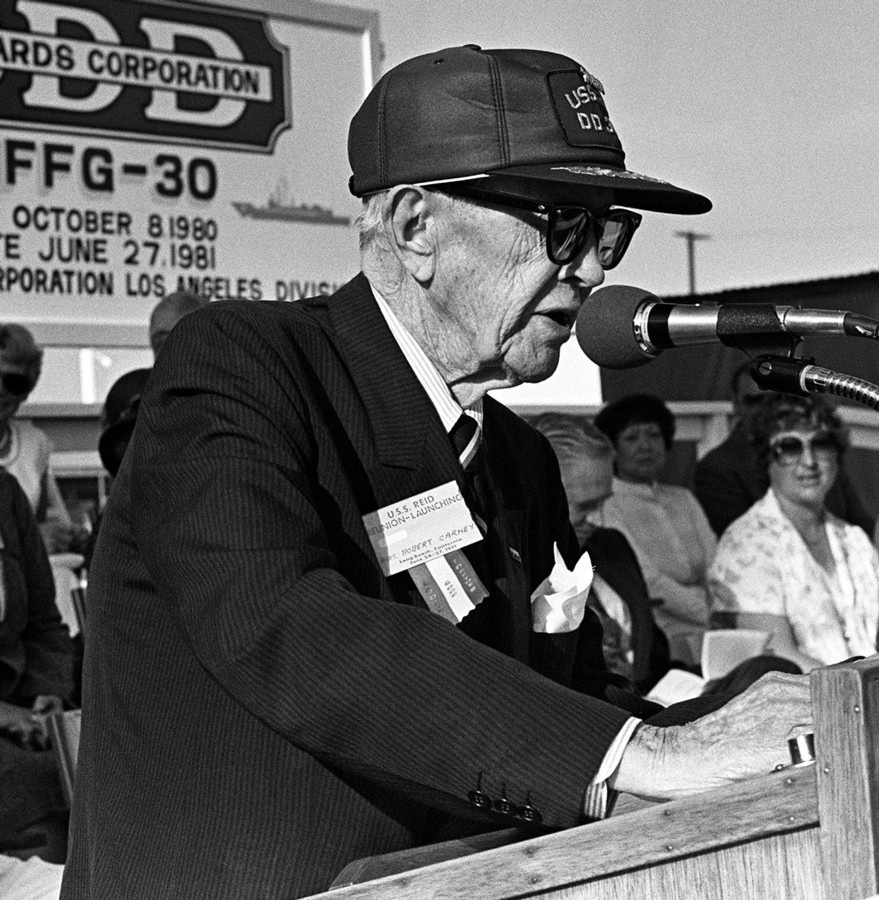 |
||
|
HOME
|
US Navy -
ships
|
US Navy - air
units
|
USMC - air
units
|
International
Navies
|
Weapon Systems
|
Special Reports |
||
|
US Navy - Guided Missile Destroyer DDG 64 - USS Carney |
||
|
||
| 07/25 | ||
|
Type,
class: Guided Missile Destroyer - DDG; Arleigh Burke
class, Flight I Builder: Bath Iron Works, Bath, Maine, USA STATUS: Awarded: January 16, 1991 Laid down: August 3, 1993 Launched: July 23, 1994 Commissioned: June 8, 1996 IN SERVICE Homeport: Naval Station Mayport, Florida Namesake: Admiral Robert Bostwick Carney (1895-1990) Ships Motto: RESOLUTE - COMMITTED - SUCCESSFUL Technical Data: see: INFO > Arleigh Burke class Guided Missile Destroyer - DDG |
||
| images | ||
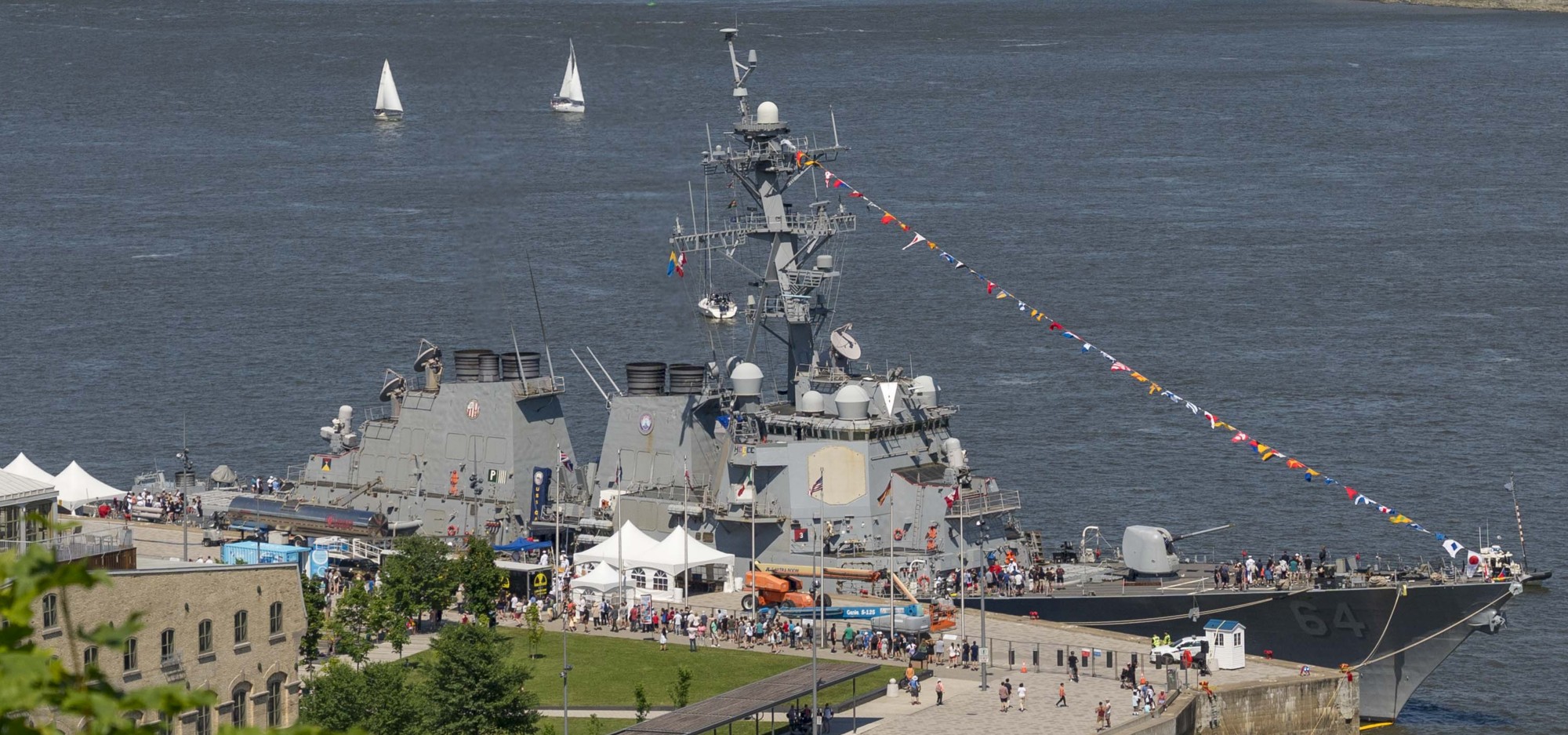 Quebec City, Quebec, Canada for Rendez-Vous Naval de Quebec (RVNQ 2024) - July 5, 2024 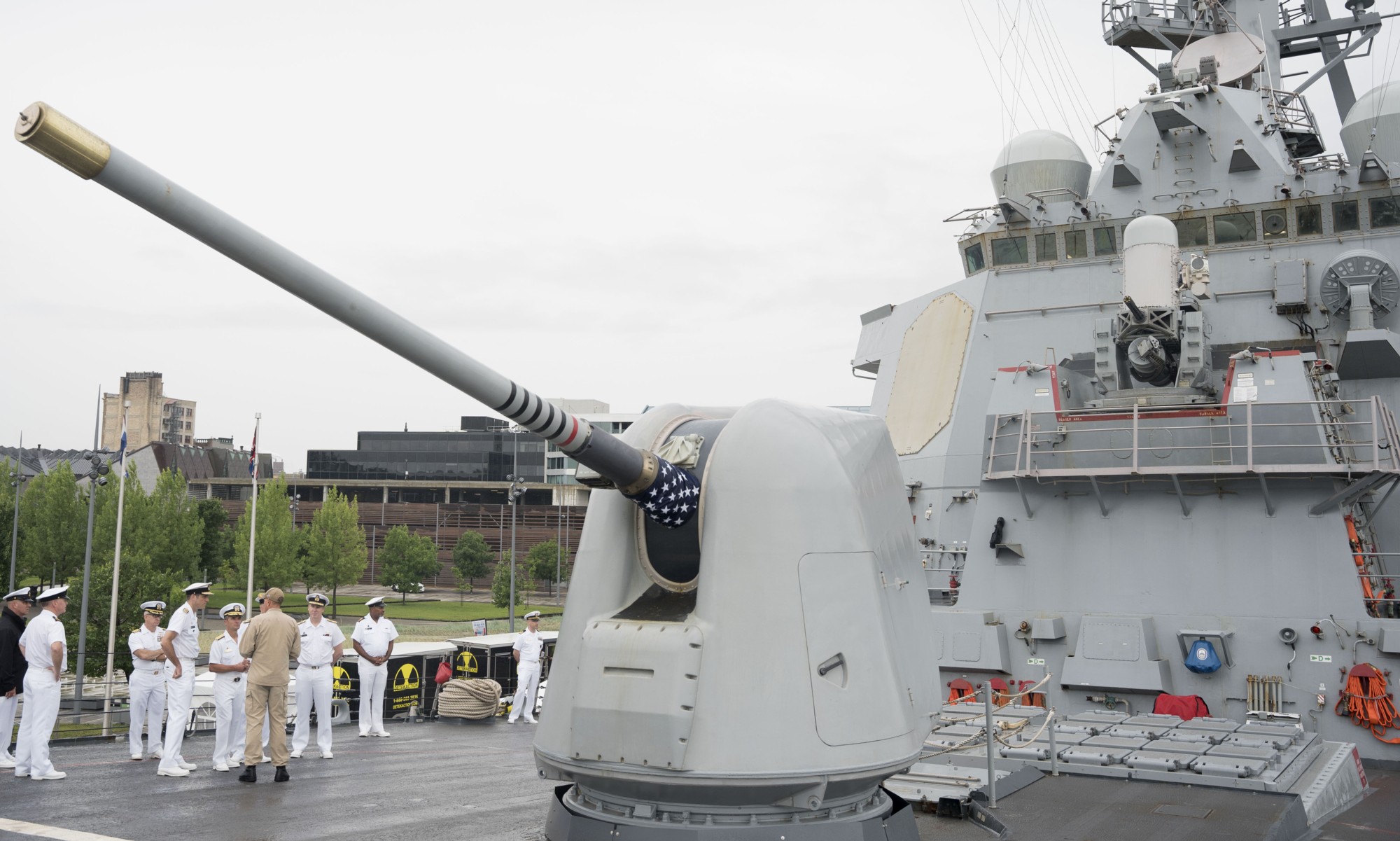 Quebec City, Quebec, Canada for Rendez-Vous Naval de Quebec (RVNQ 2024) - July 5, 2024 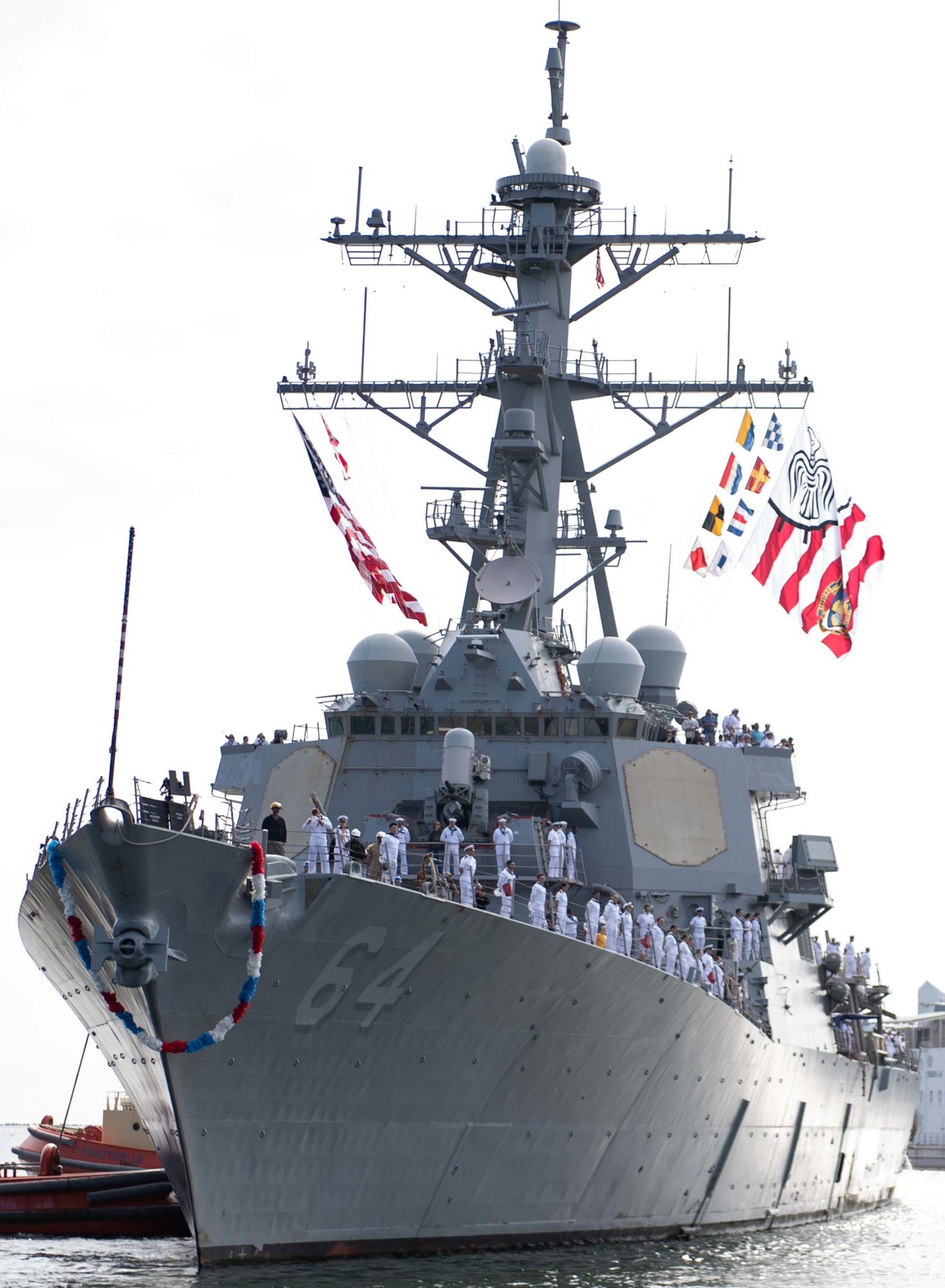 returning to Naval Station Mayport, Florida - May 19, 2024 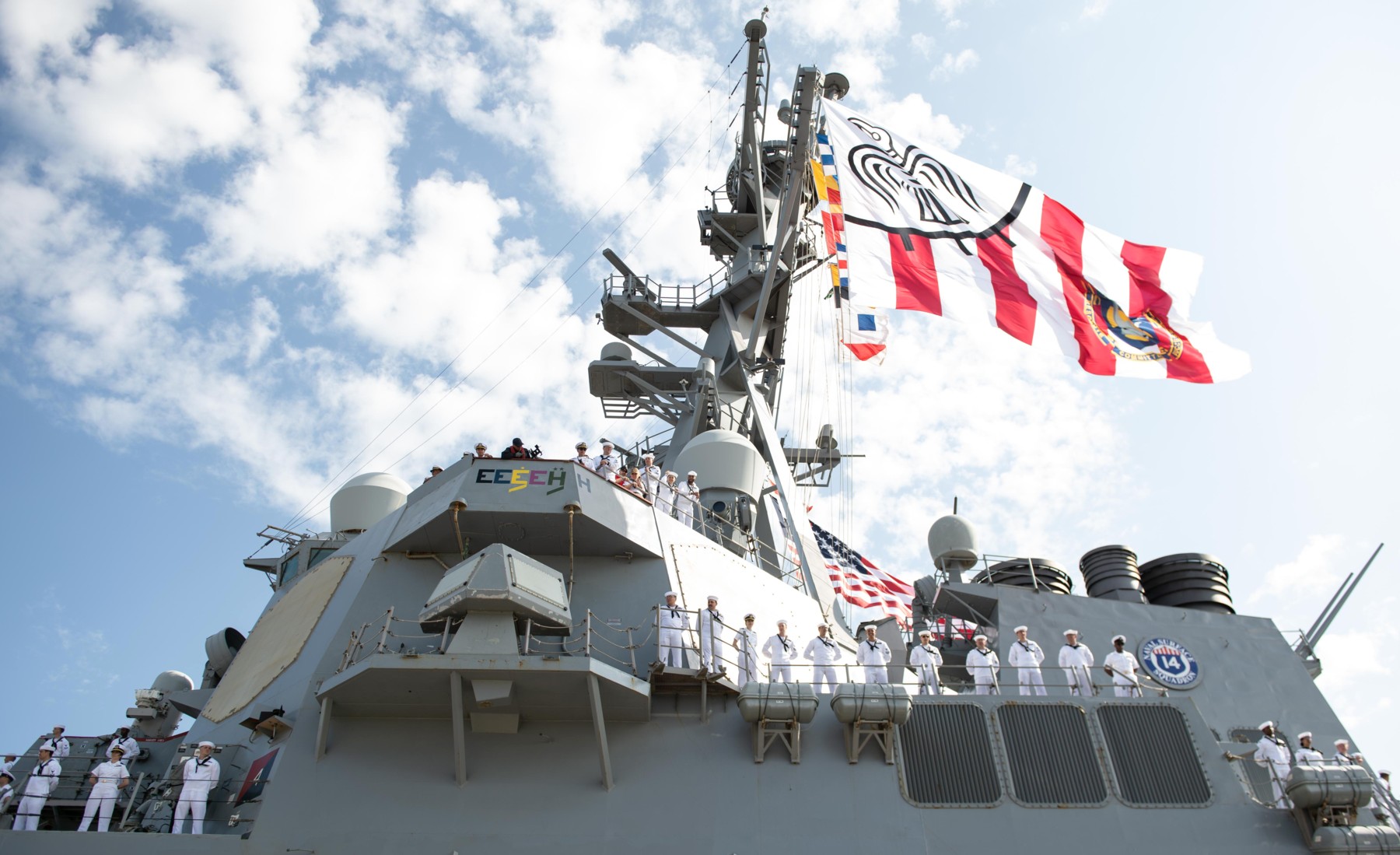 returning to Naval Station Mayport, Florida - May 19, 2024 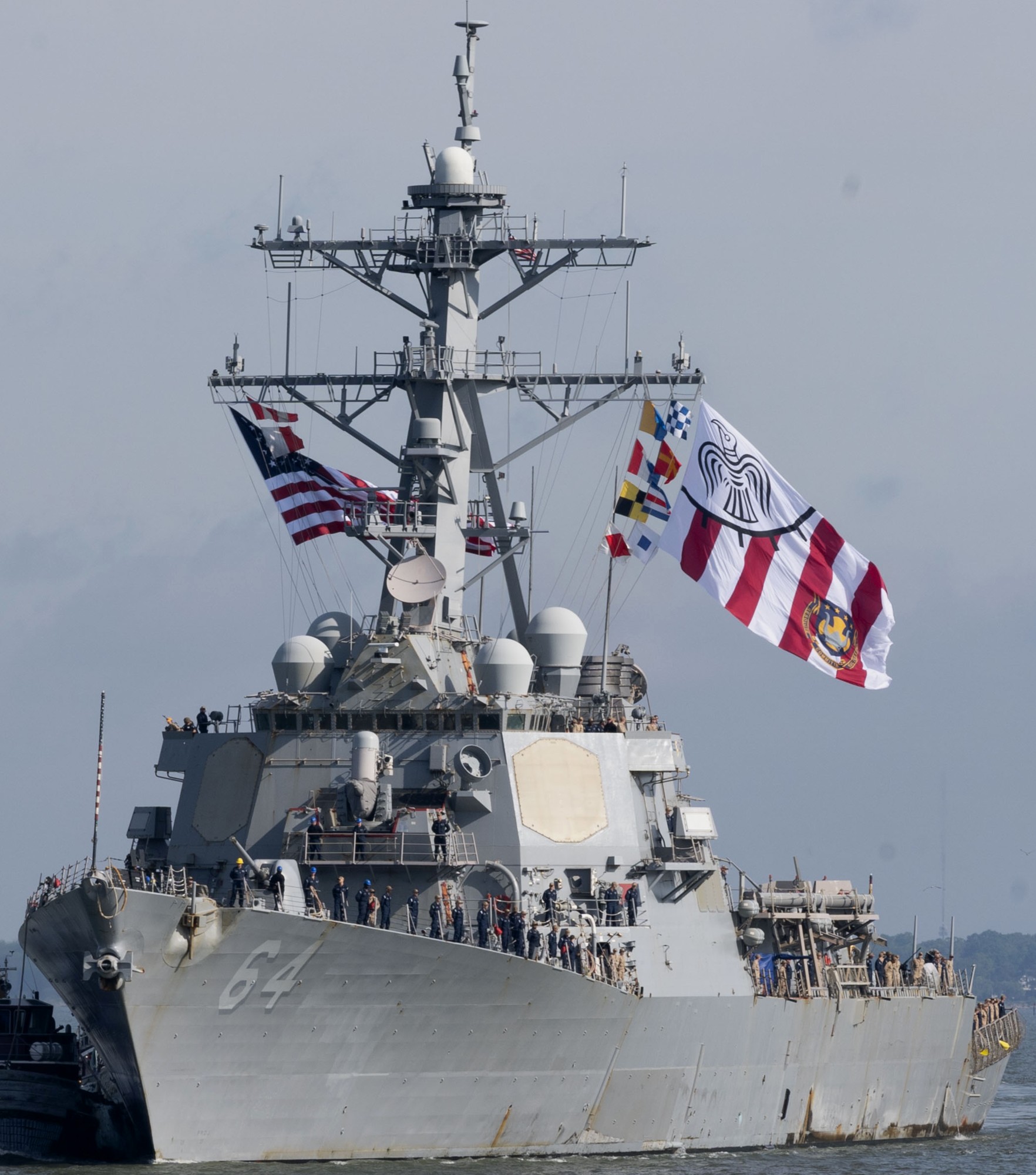 arriving at Naval Station Norfolk, Virginia for a port visit - May 10, 2024 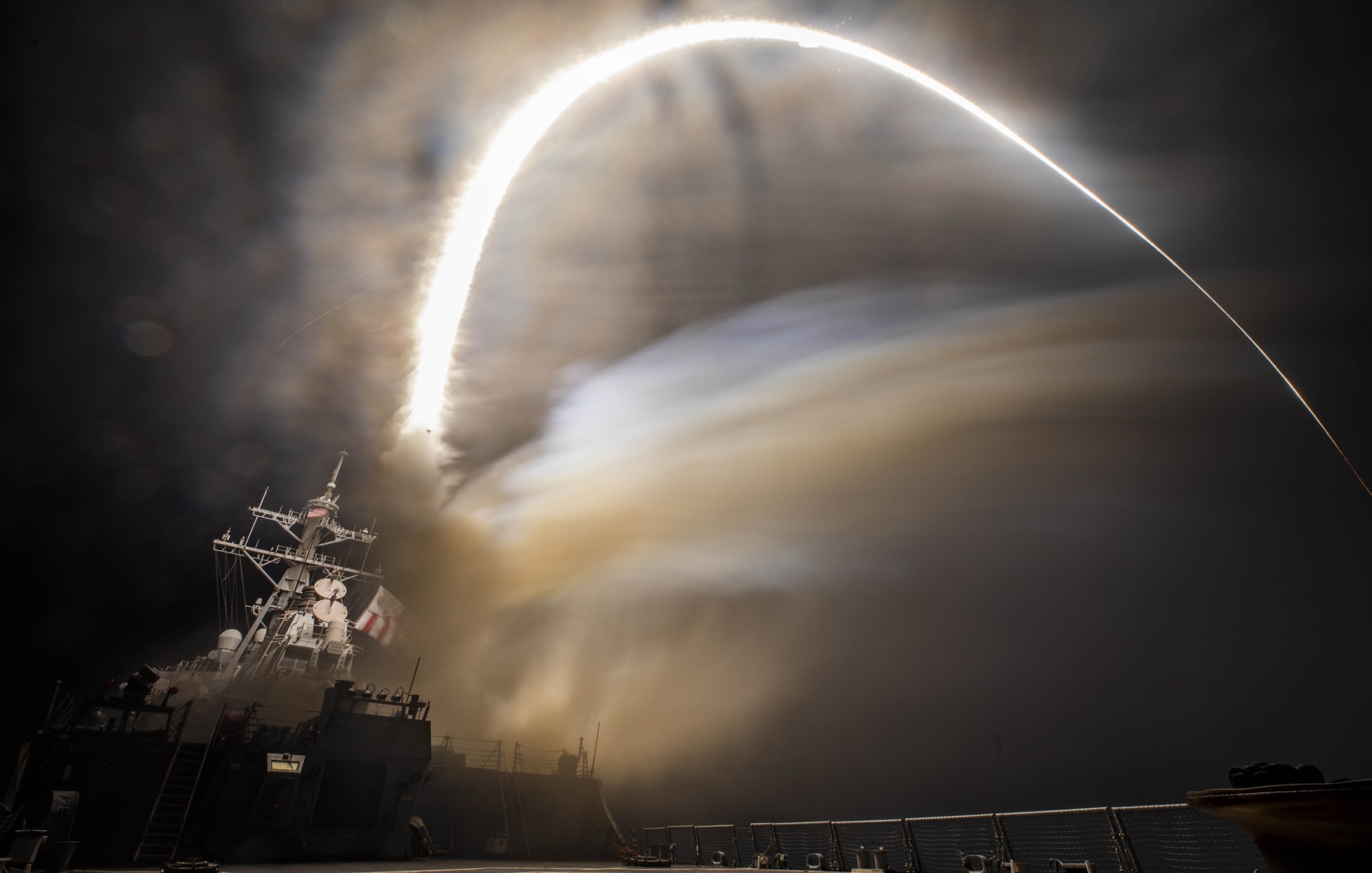 launching a BGM-109 Tomahawk TLAM missile - 5th Fleet AOR - February 3, 2024 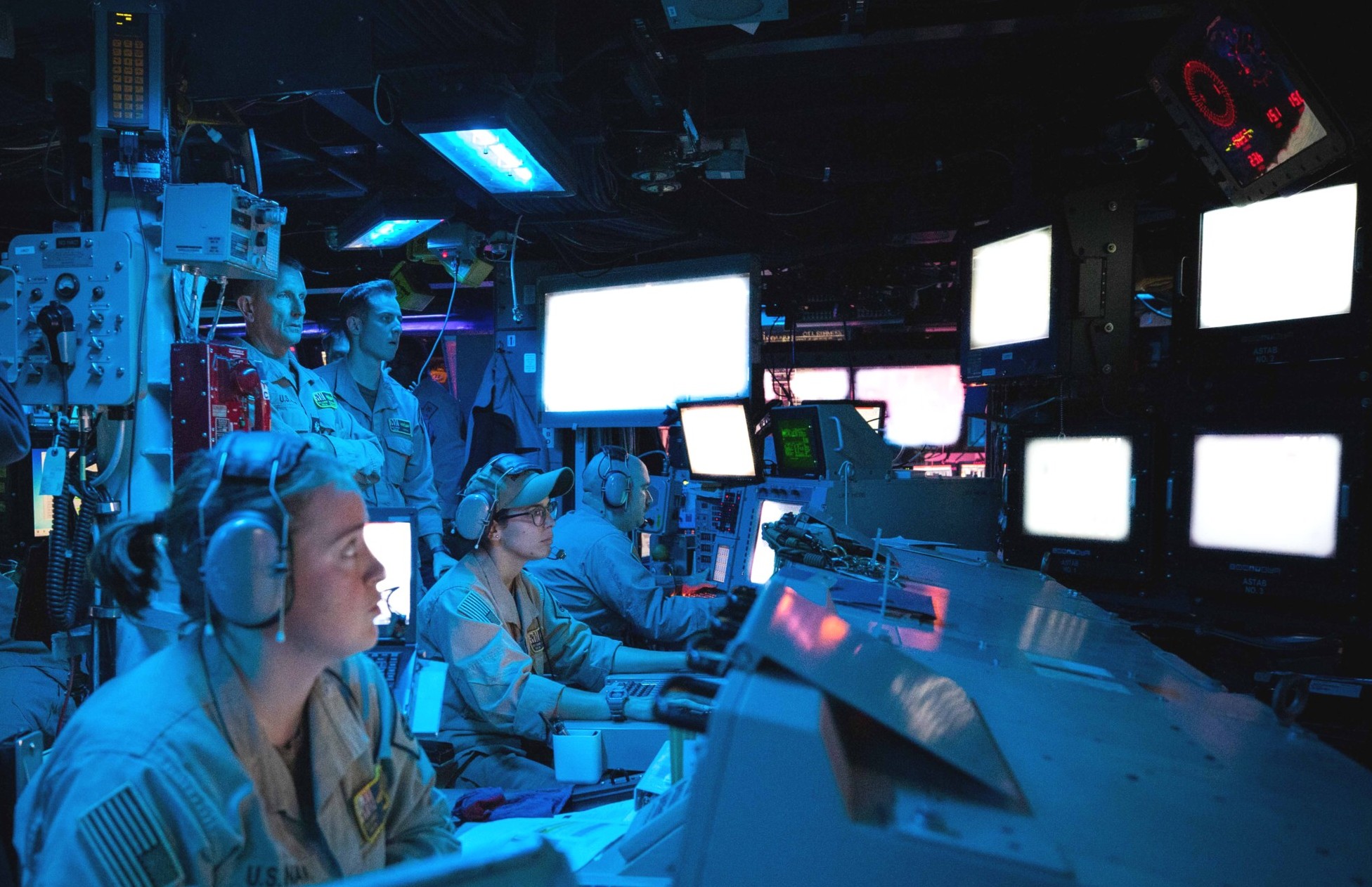 Combat Information Center (CIC) - defeating a combination of Houthi missiles and UAV's in the Red Sea - October 19, 2023 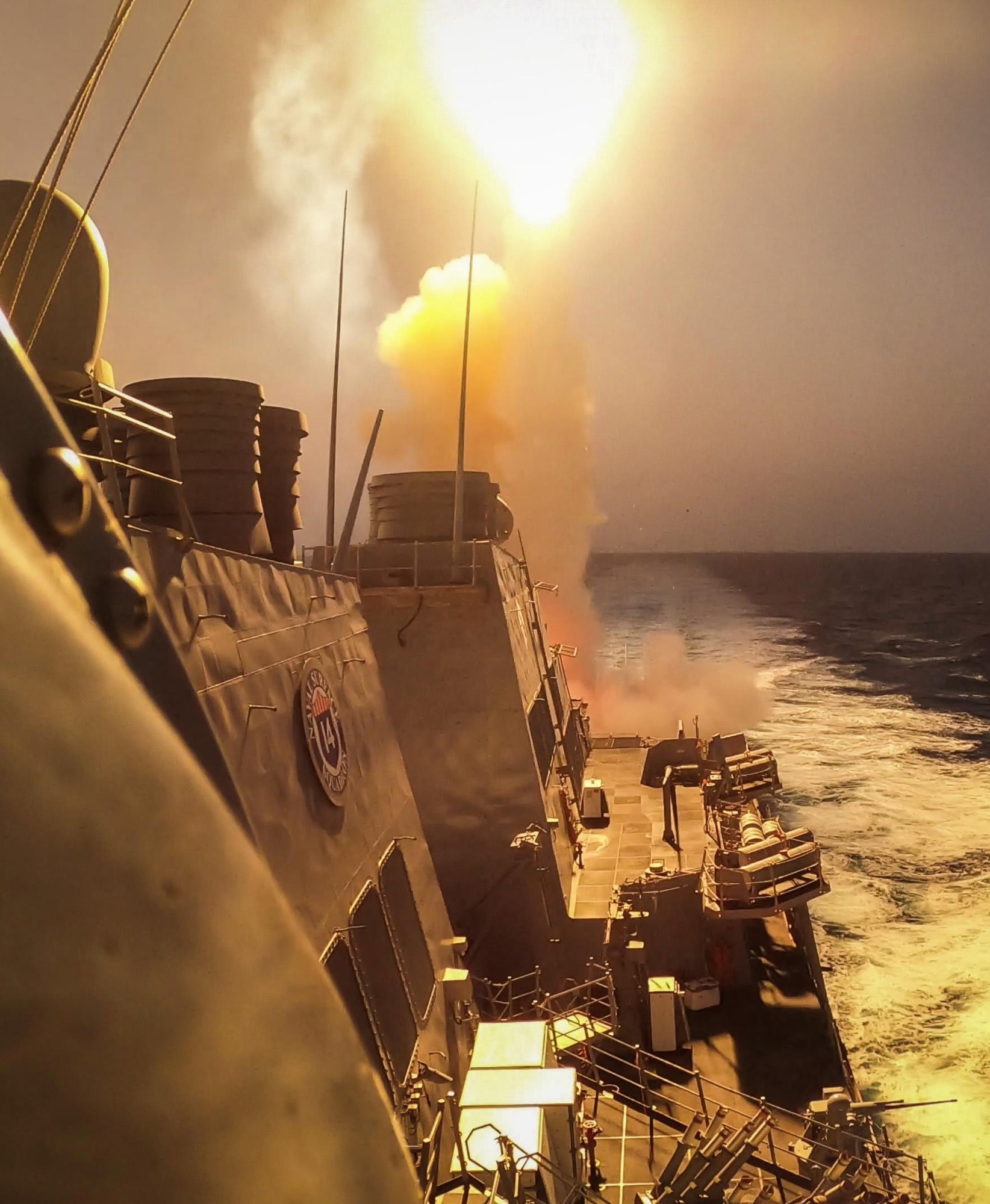 missile launch - defeating a combination of Houthi missiles and UAV's in the Red Sea - October 19, 2023 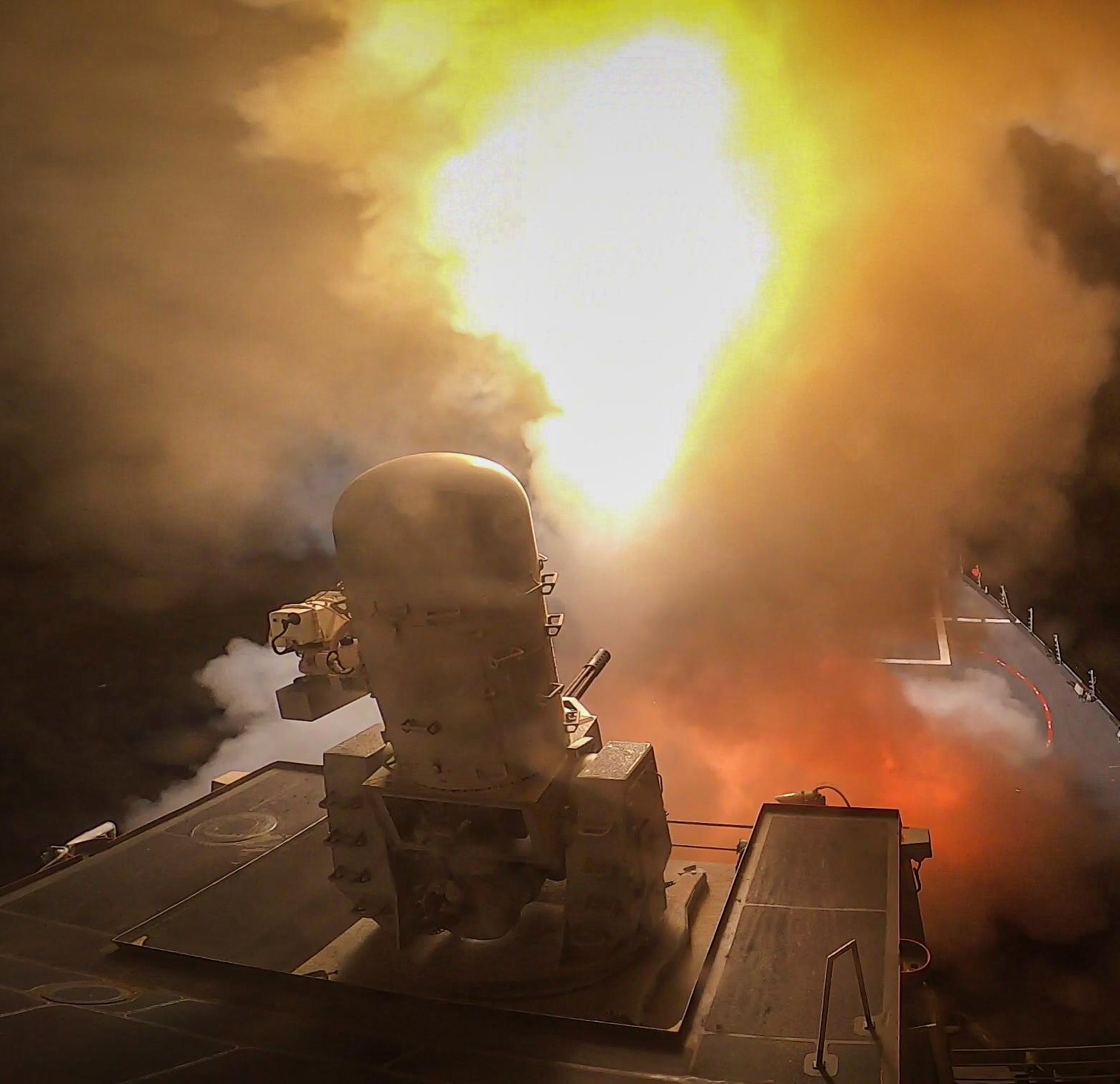 missile launch - defeating a combination of Houthi missiles and UAV's in the Red Sea - October 19, 2023 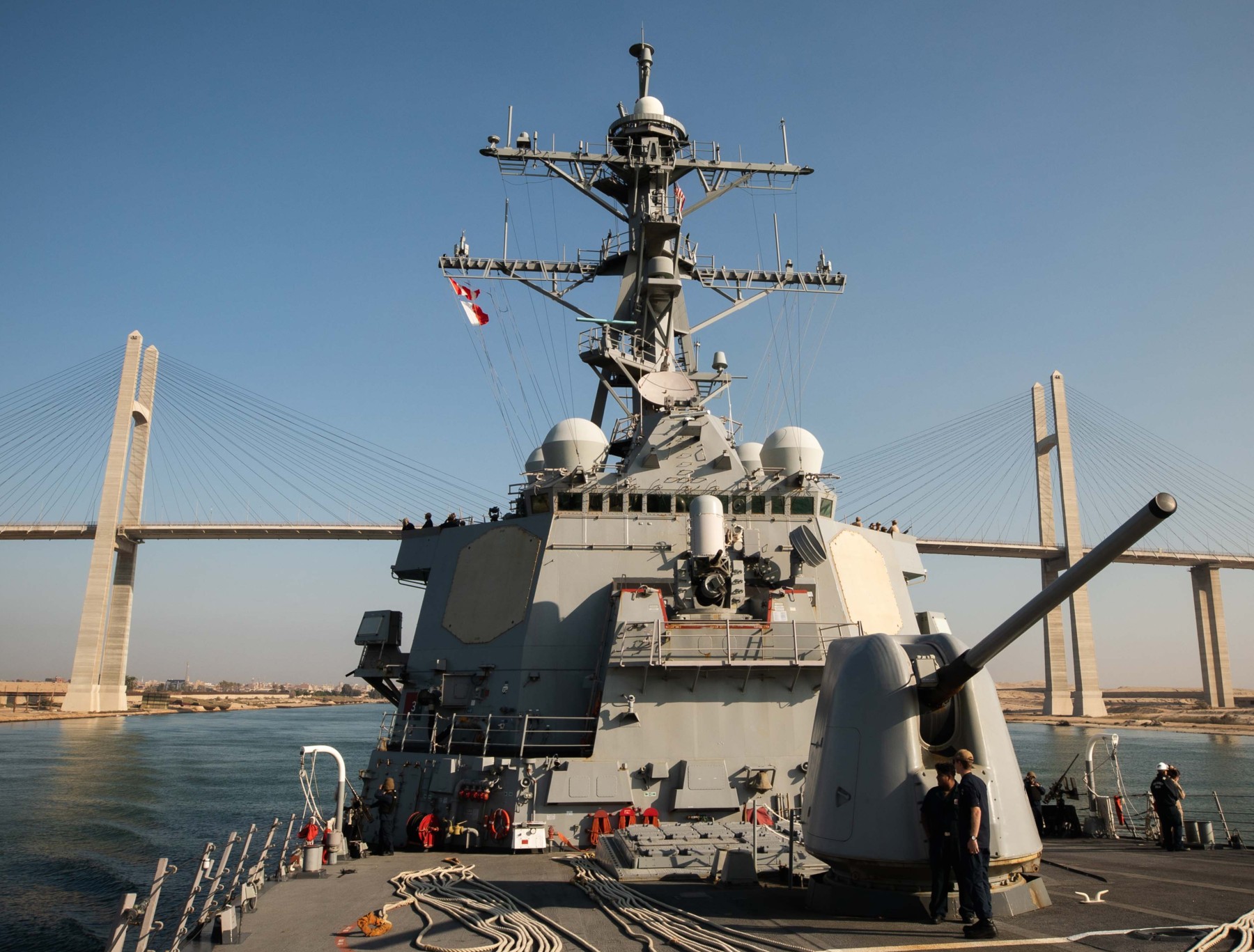 Suez Canal - October 18, 2023 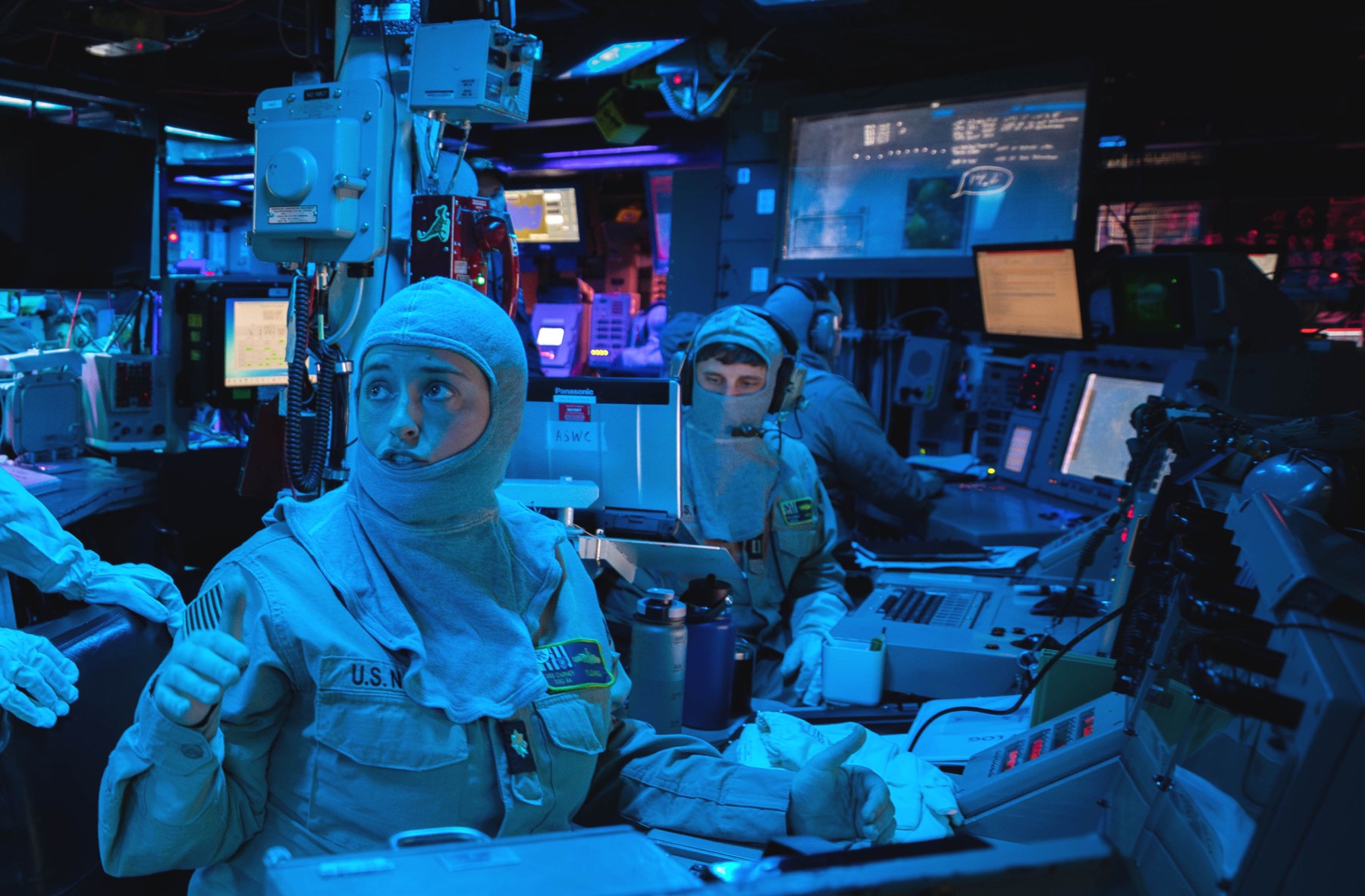 Combat Information Center (CIC) - Mediterranean Sea - October 2023 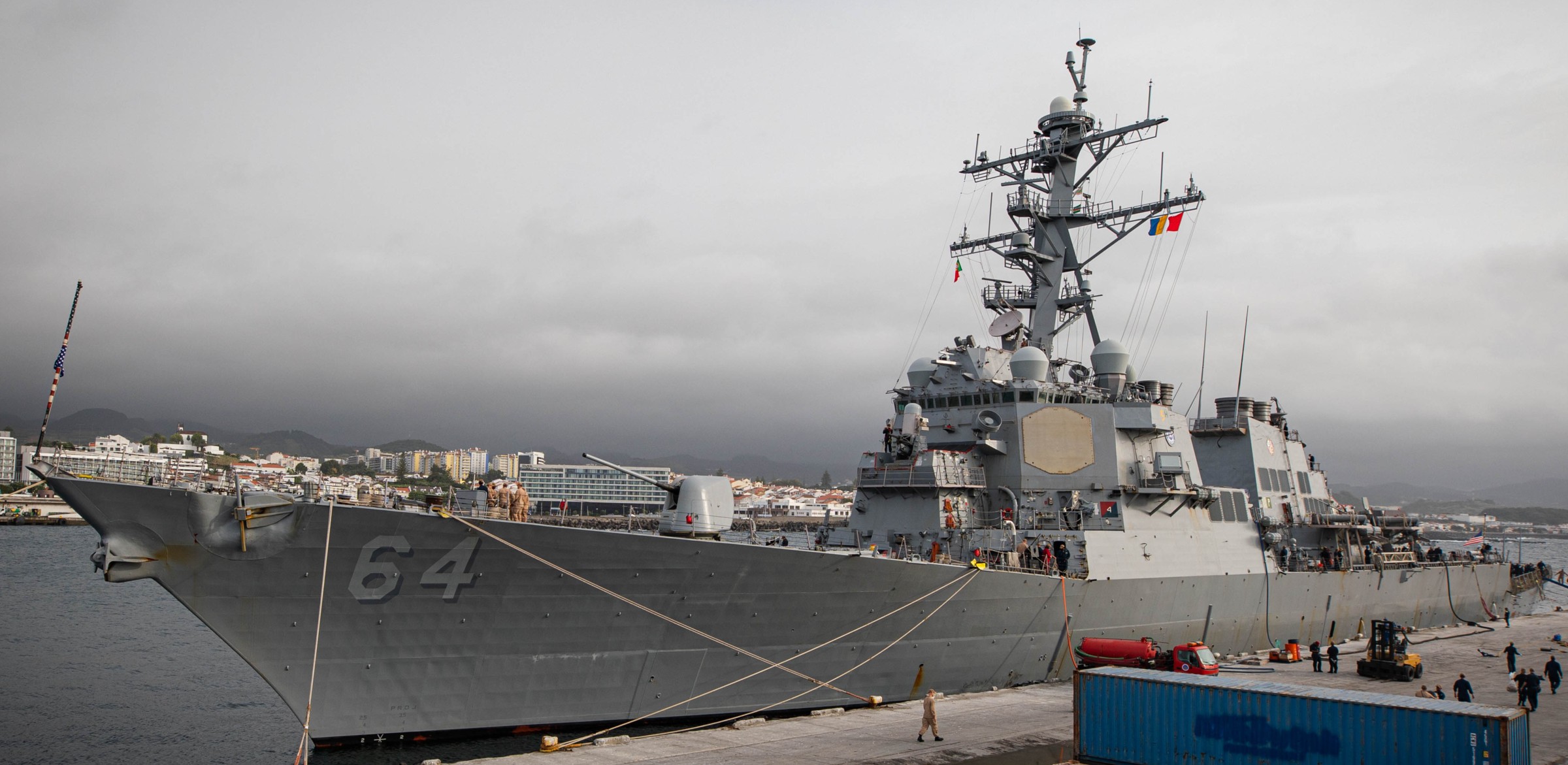 Ponta Delgada, Azores, Portugal - October 2023 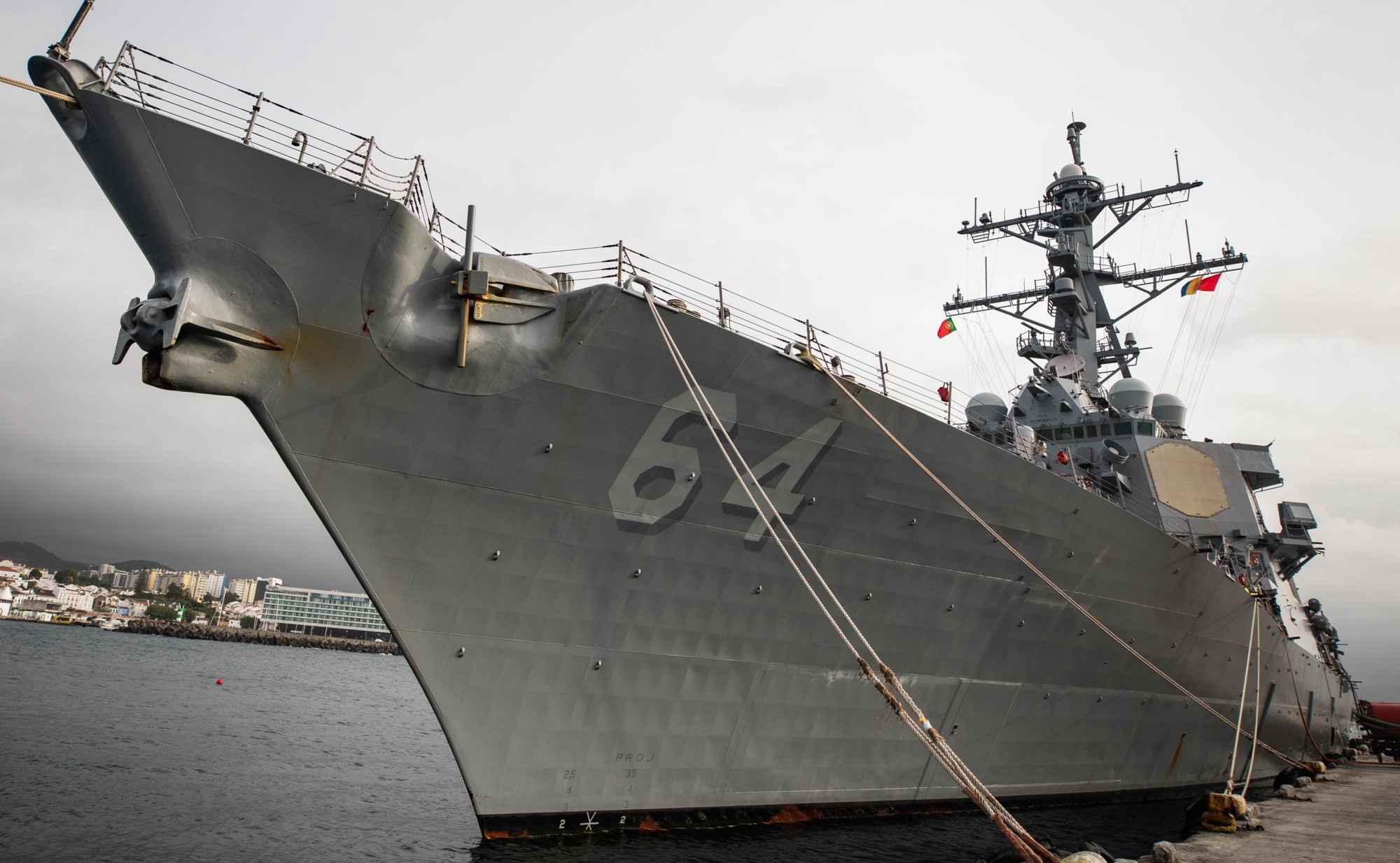 Ponta Delgada, Azores, Portugal - October 2023 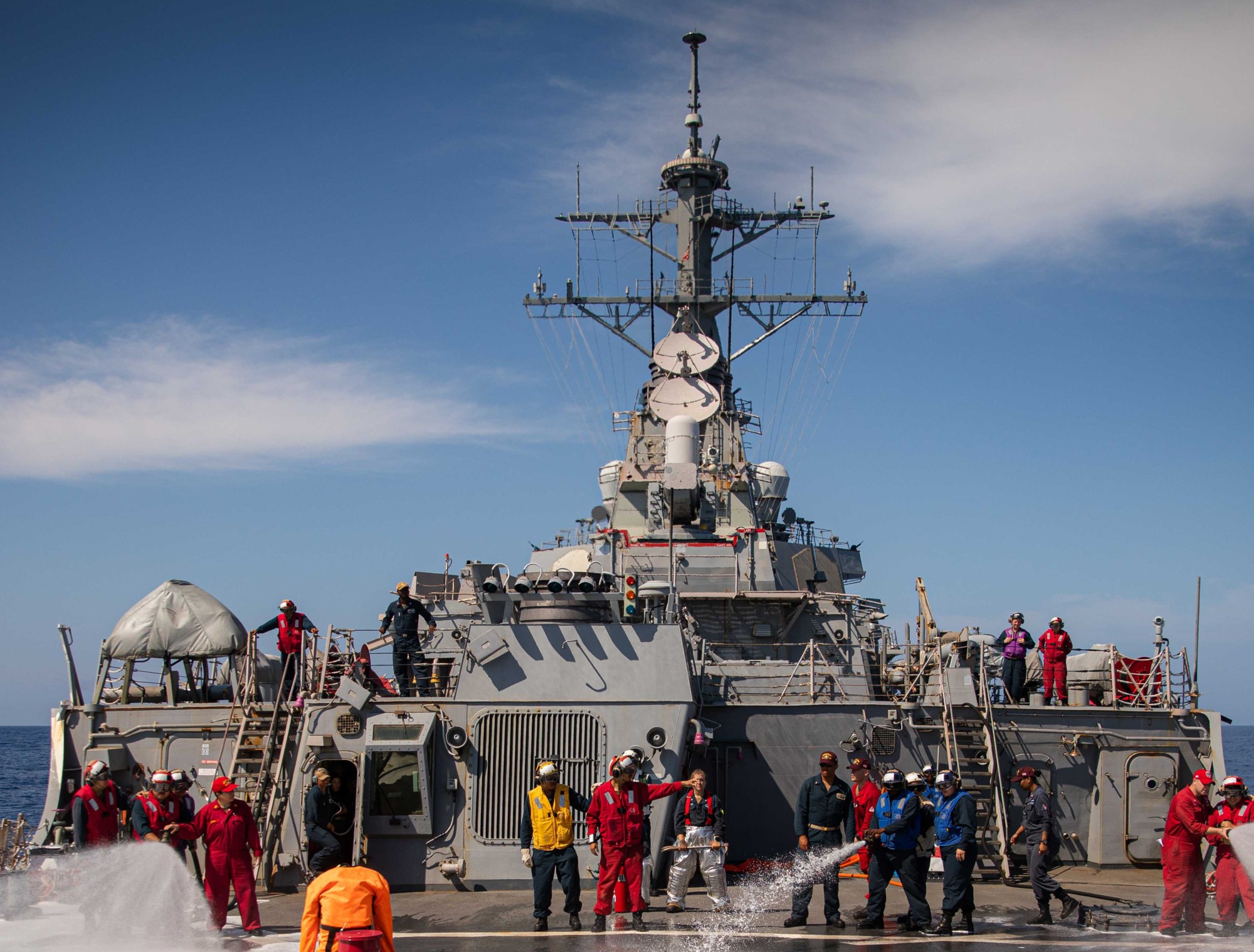 Atlantic Ocean - June 2023 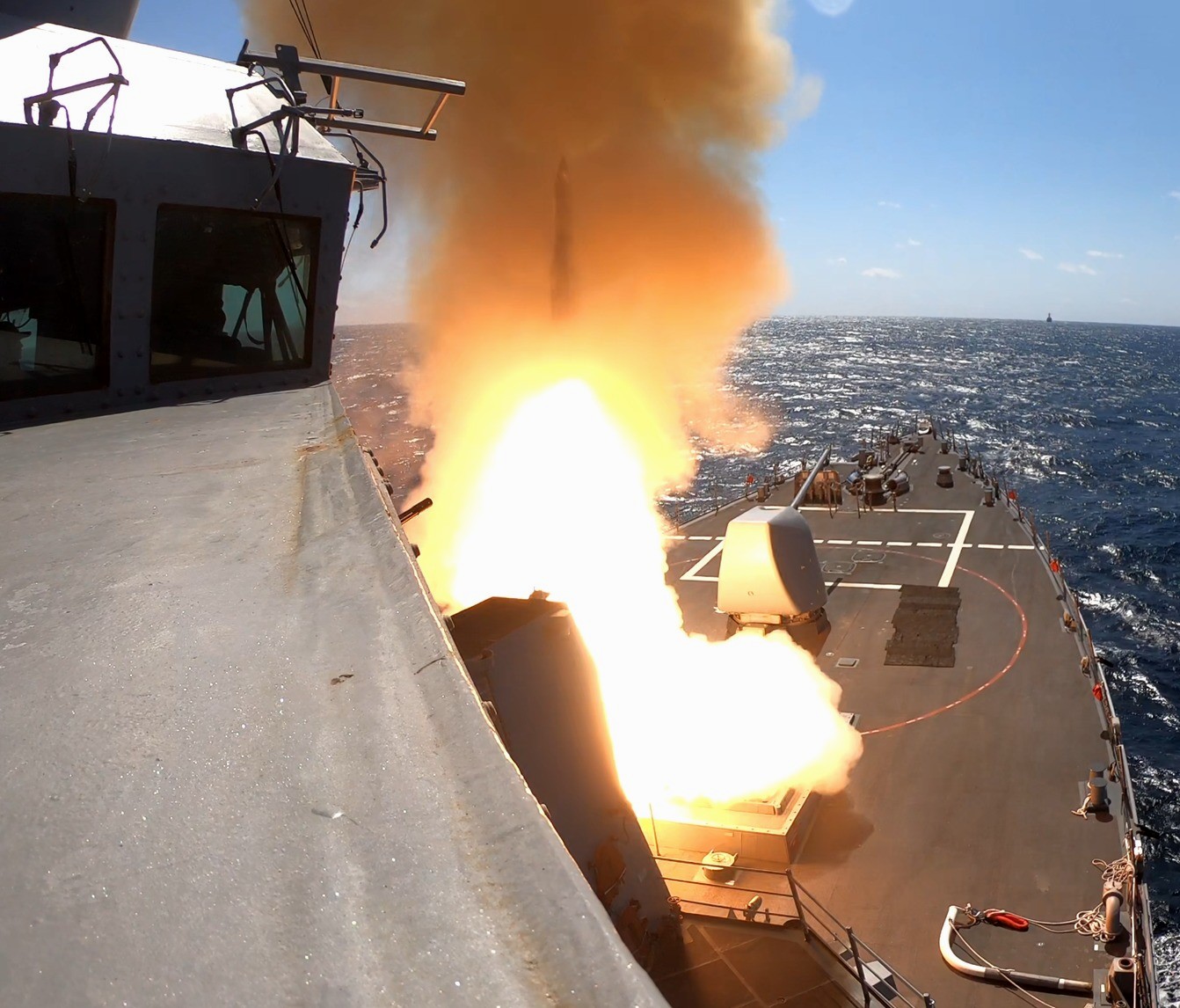 Standard Missile SM-2MR exercise - Atlantic Ocean - March 2023 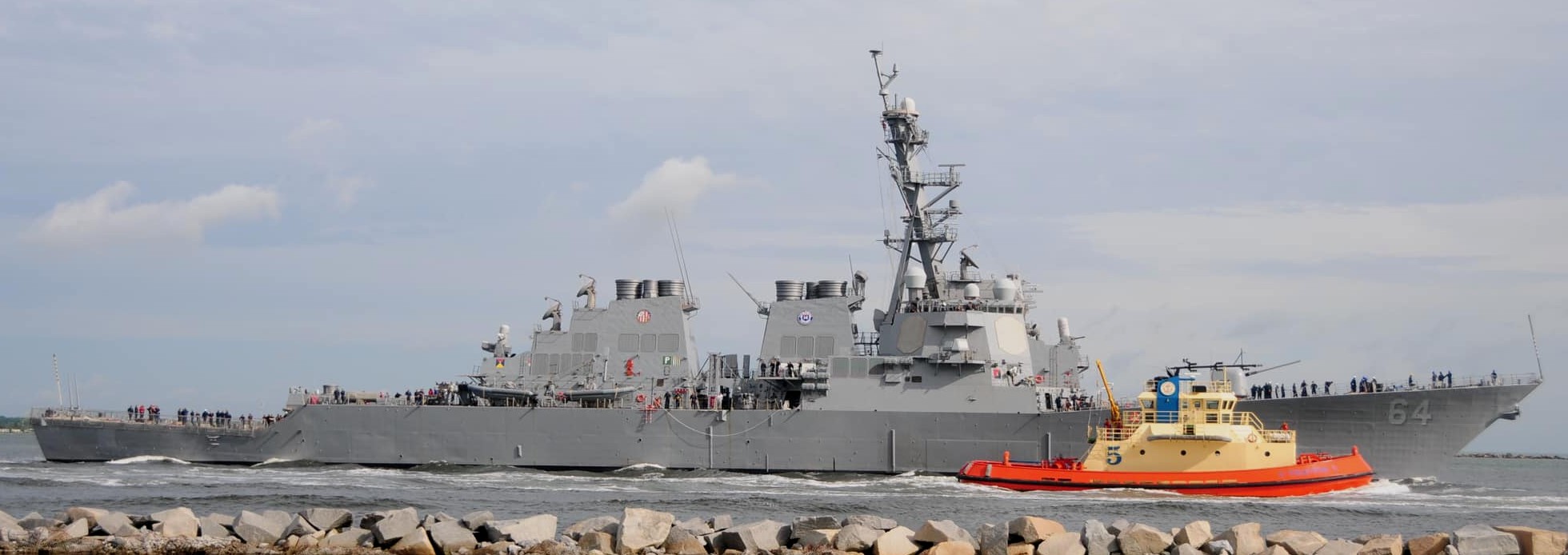 departing Naval Station Mayport, Florida - April 2022 November 2020 - July 2021: modernization at BAE Systems Jacksonville Ship Repair 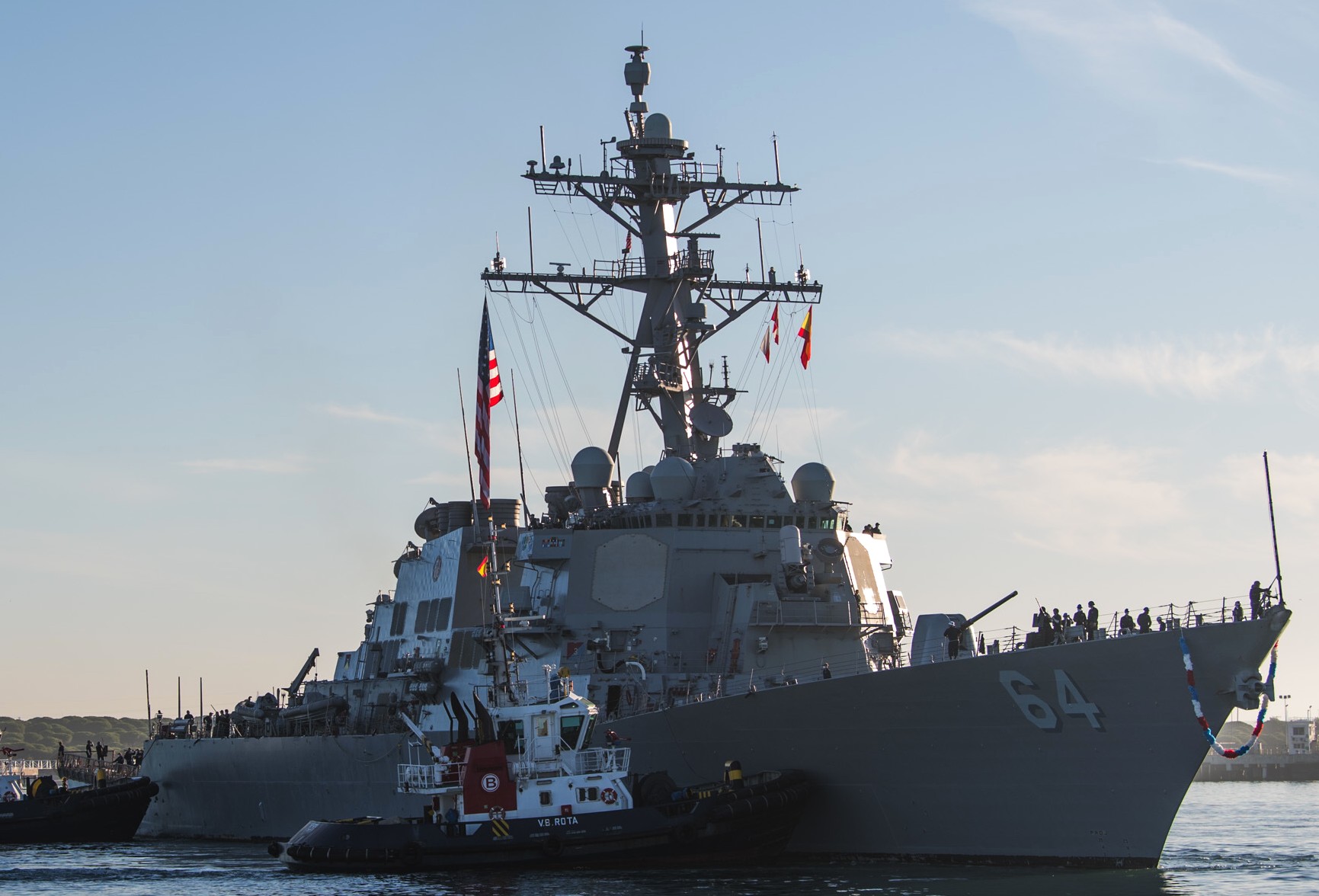 departing Naval Station Rota, Spain for her journey back to the USA - June 27, 2020 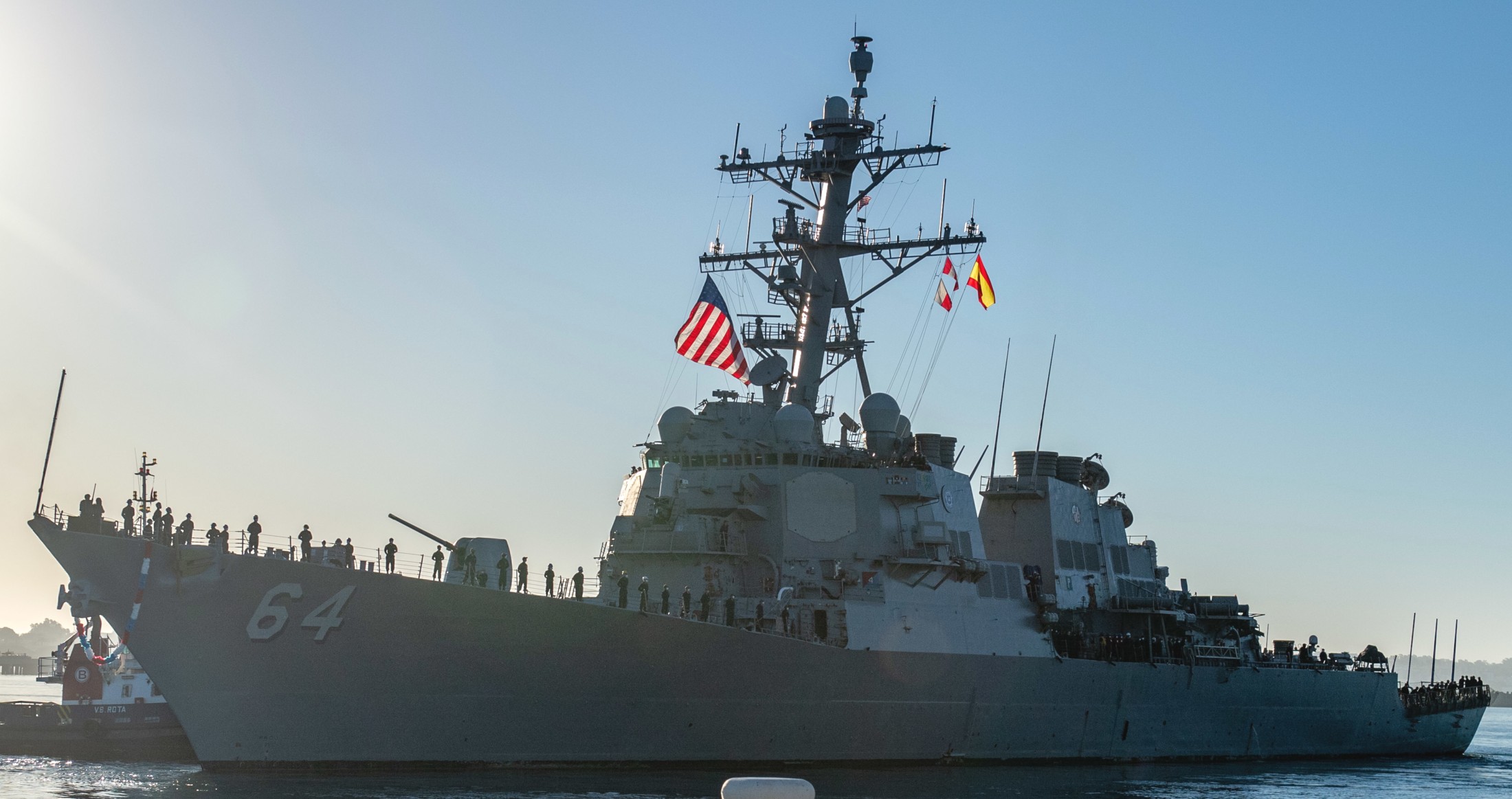 departing Naval Station Rota, Spain for her journey back to the USA - June 27, 2020 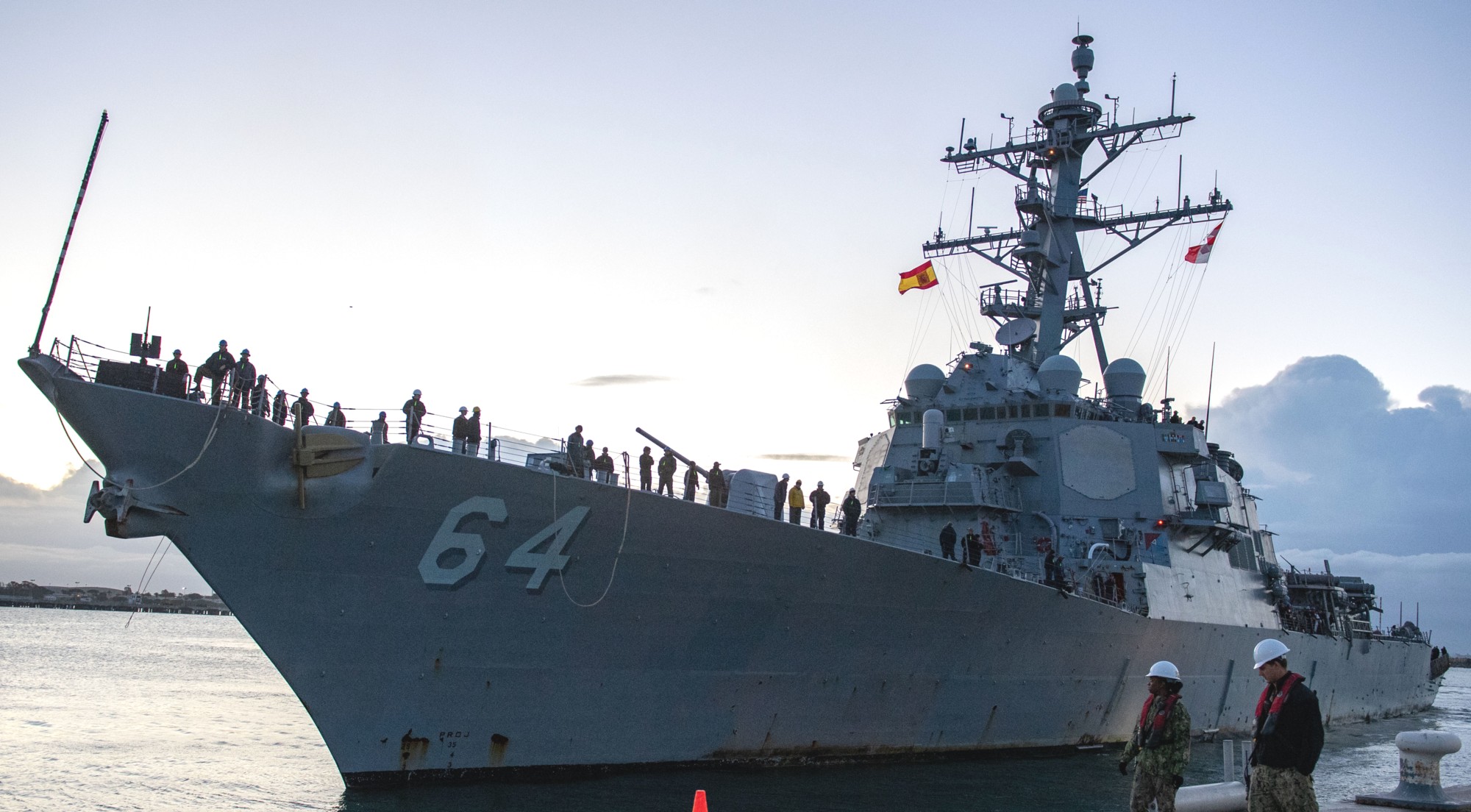 returning to Naval Station Rota, Spain - March 31, 2020 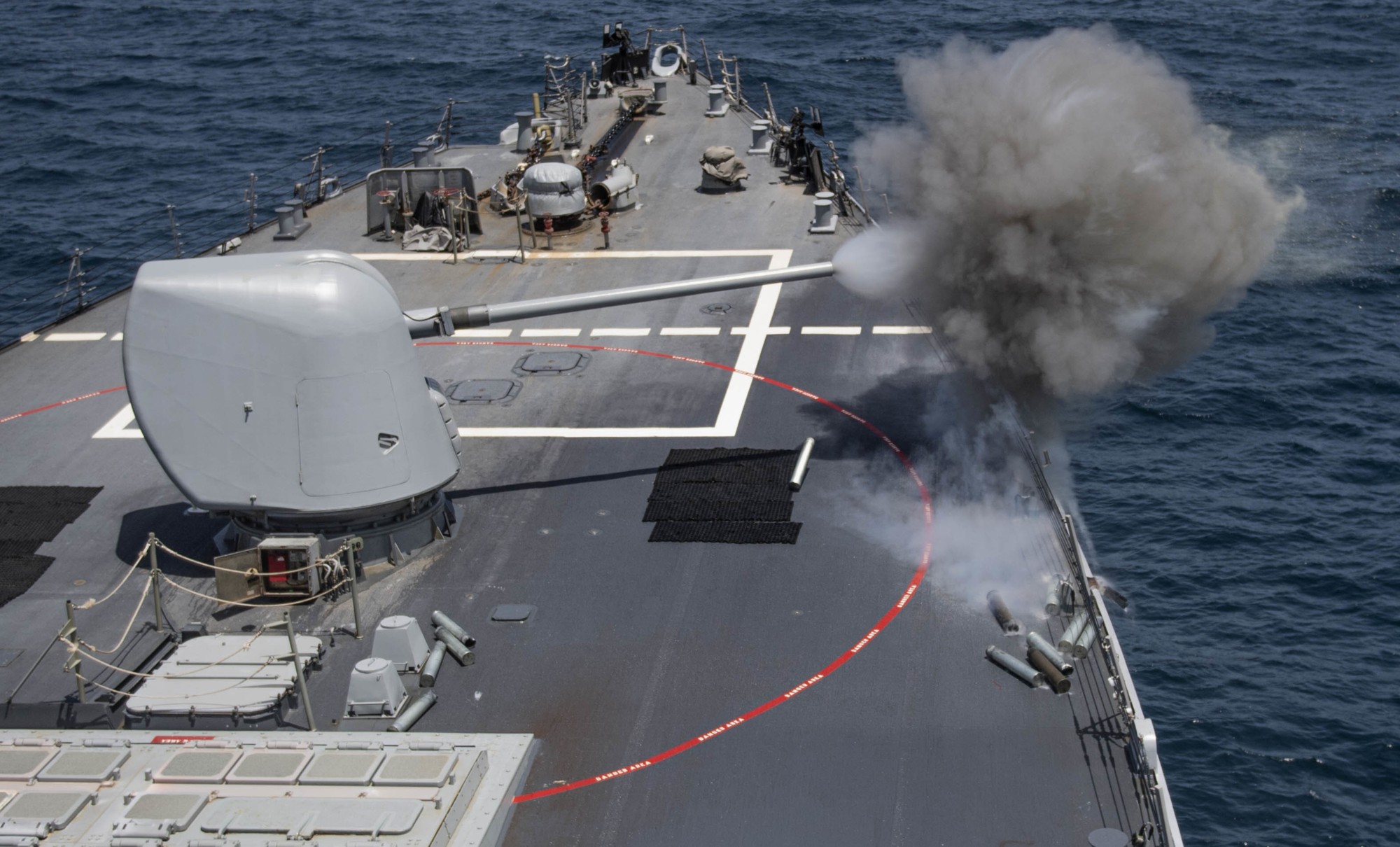 Mk.45 Mod.2 gun fire exercise - Atlantic Ocean - March 2020 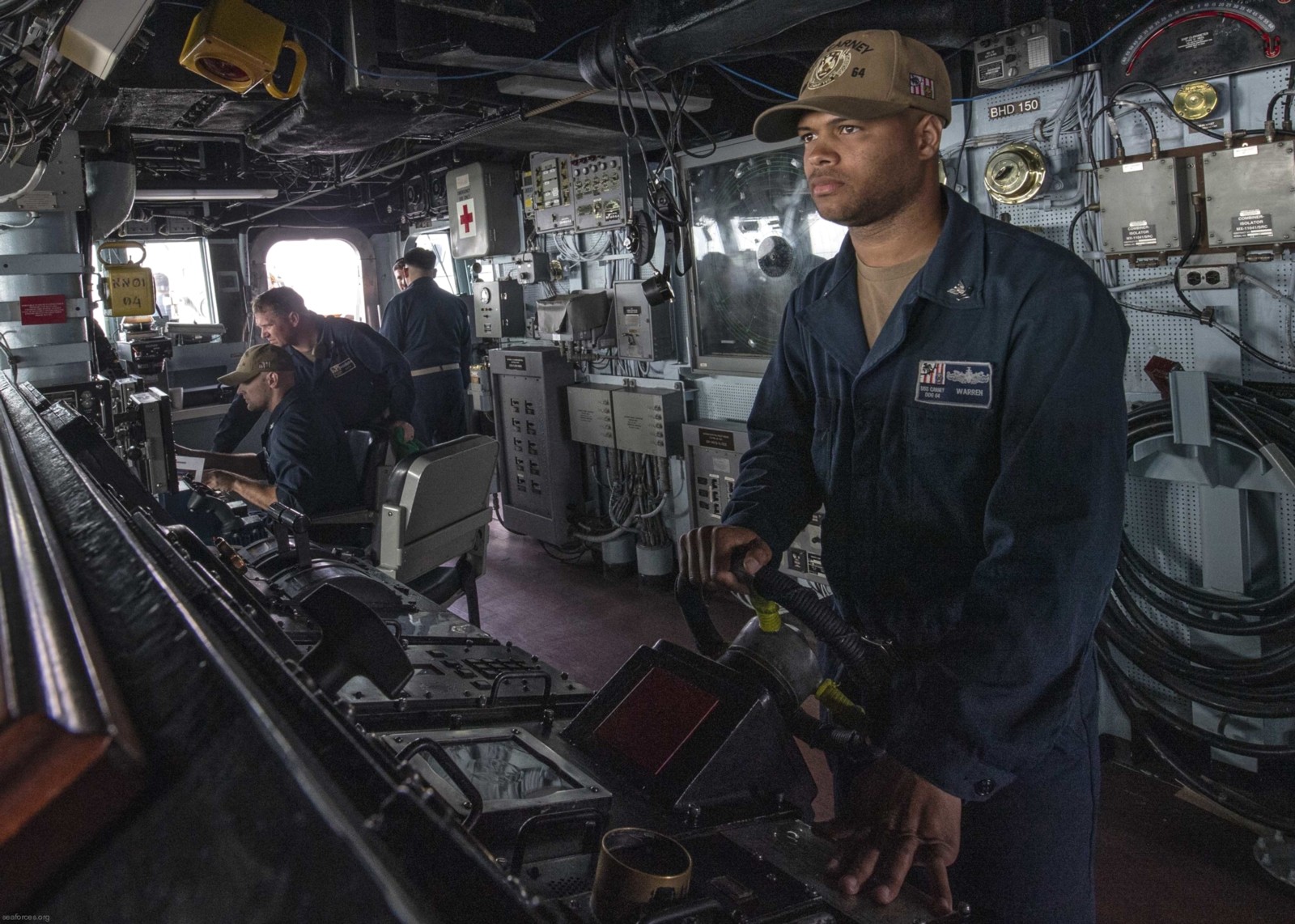 Strait of Hormuz - February 2020 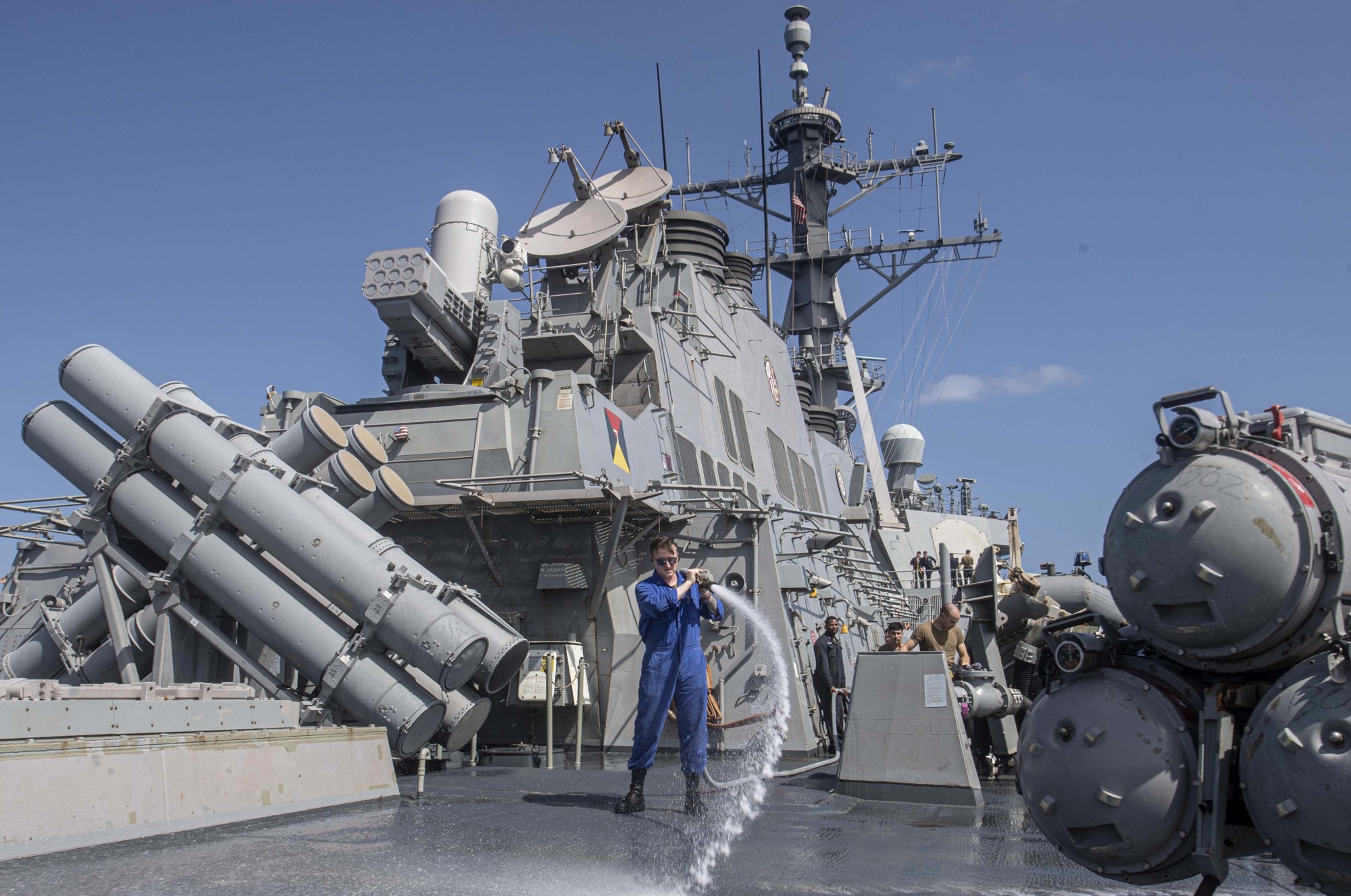 Gulf of Aden - January 2020 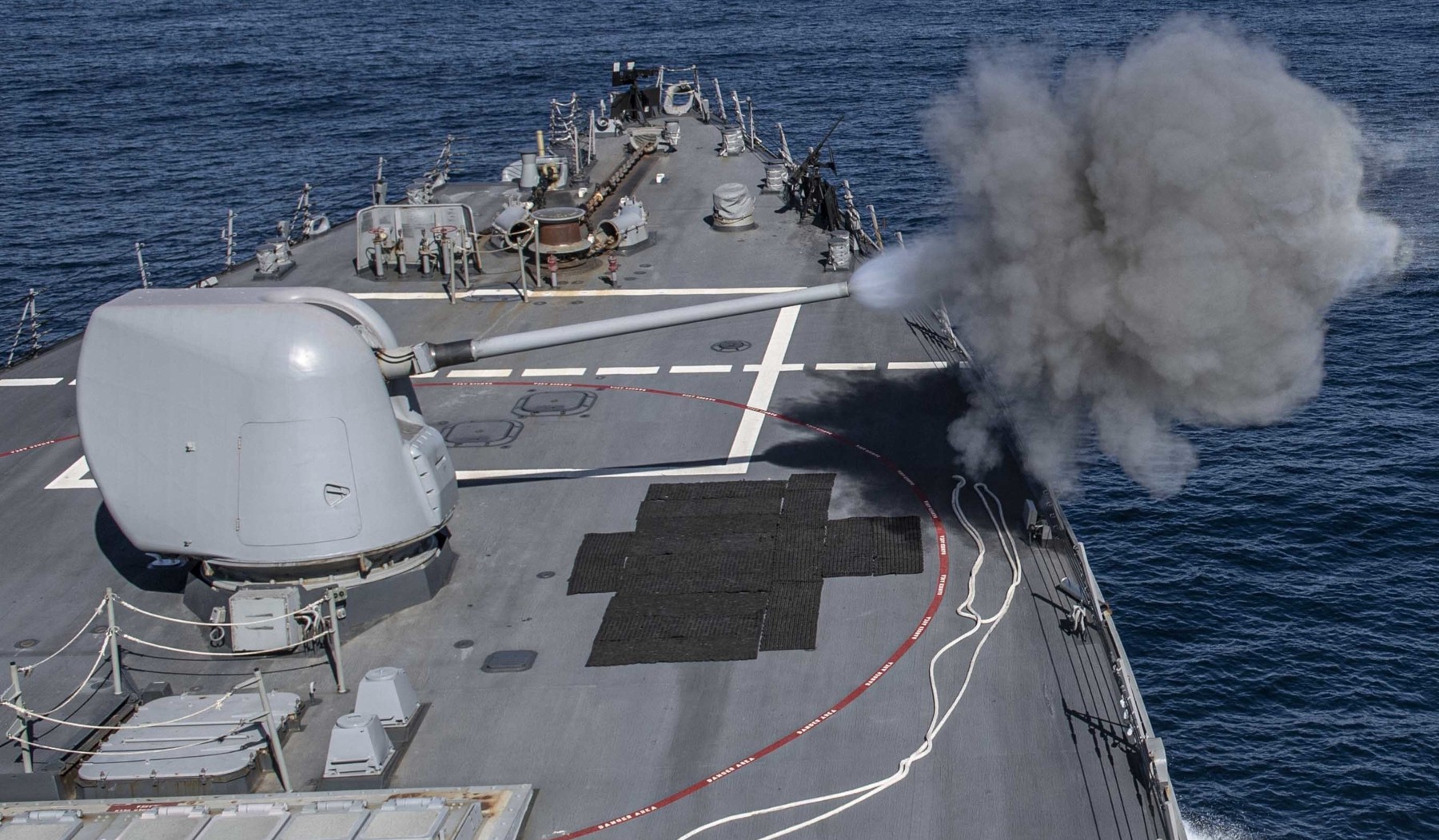 Mk.45 Mod.2 gun fire - Gulf of Aden - January 2020 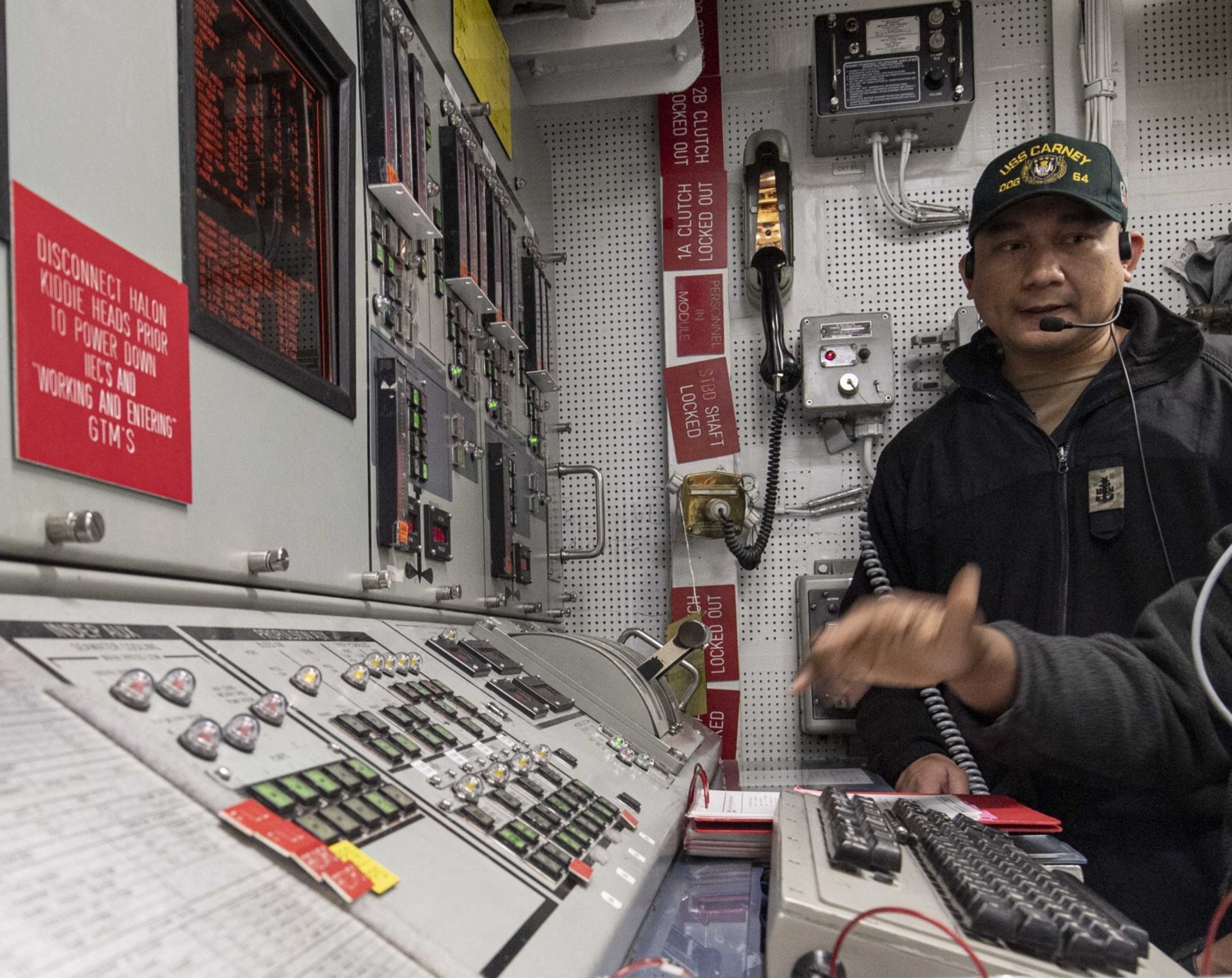 propulsion and auxilary control console - Mediterranean Sea - January 2020 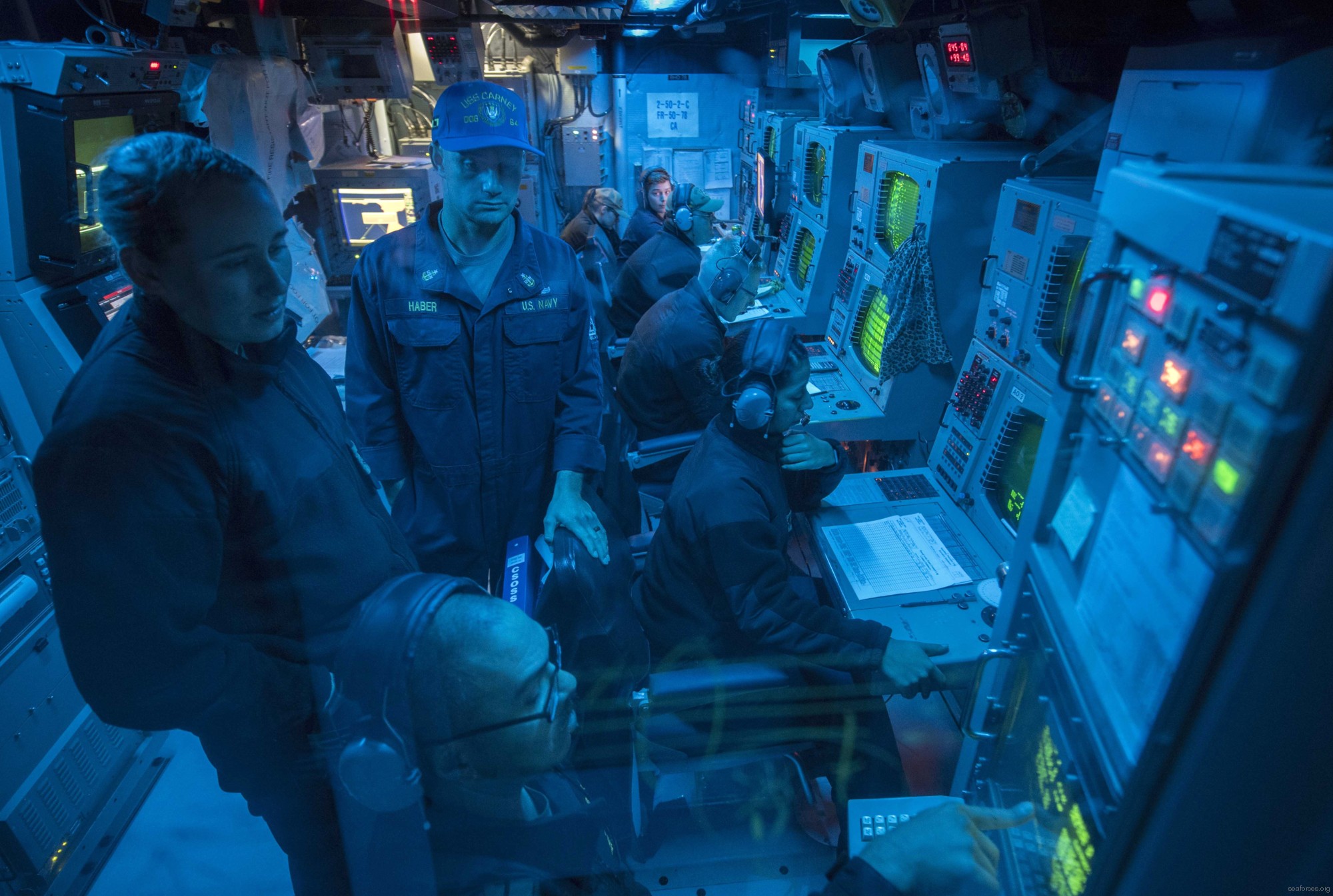 Sonar Control Room - Atlantic Ocean - November 2019 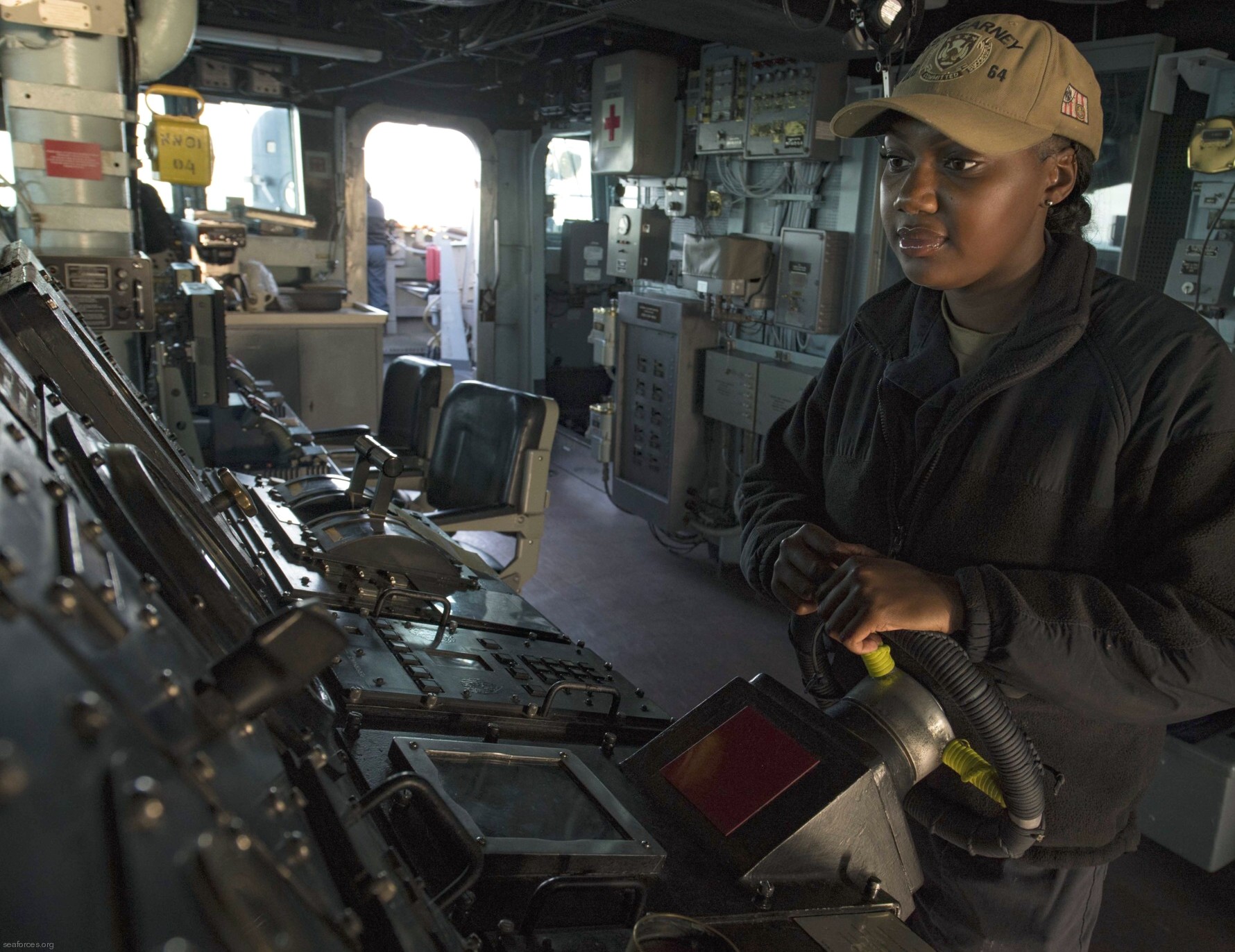 Atlantic Ocean - November 2019 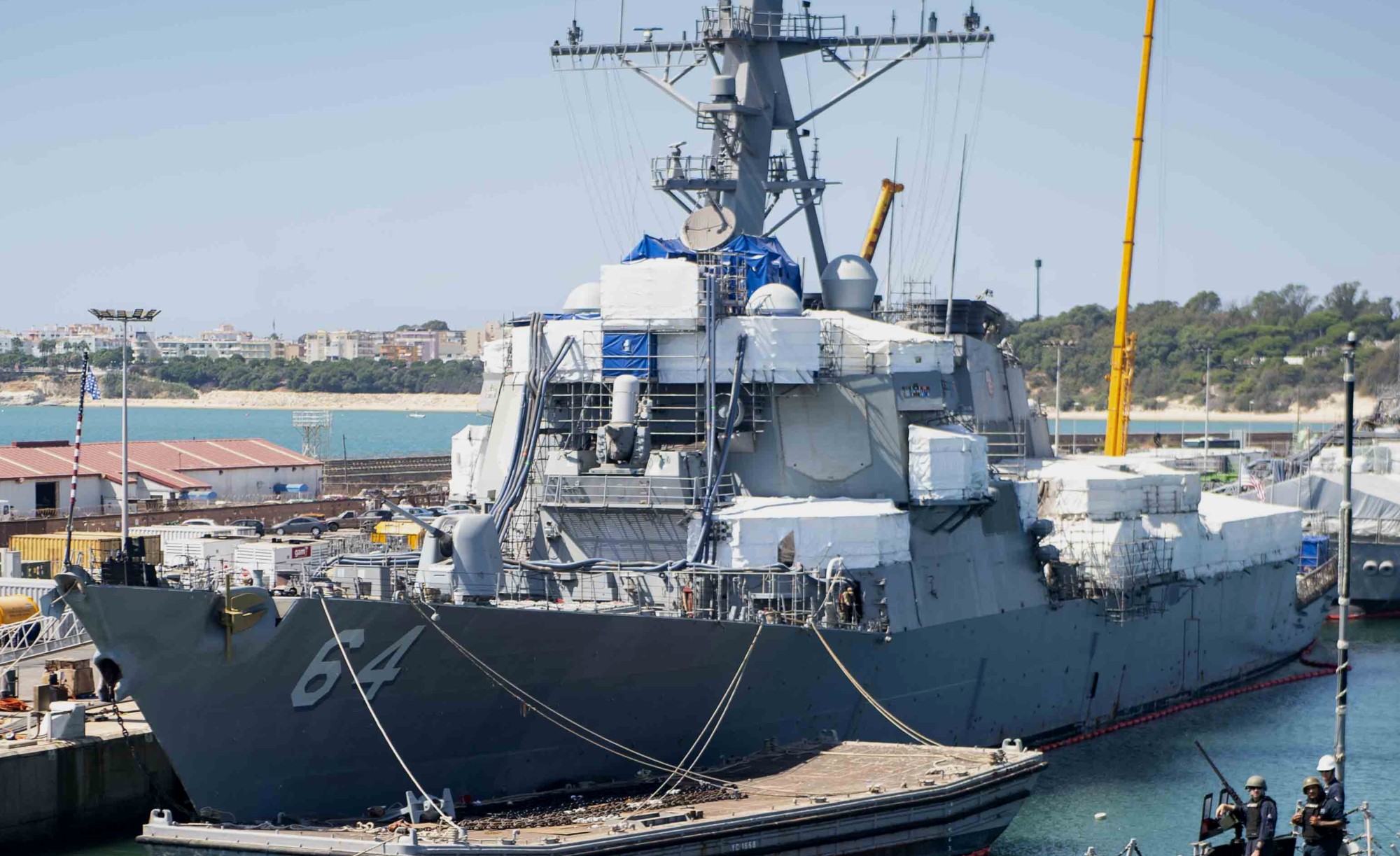 Naval Station Rota, Spain - September 2019 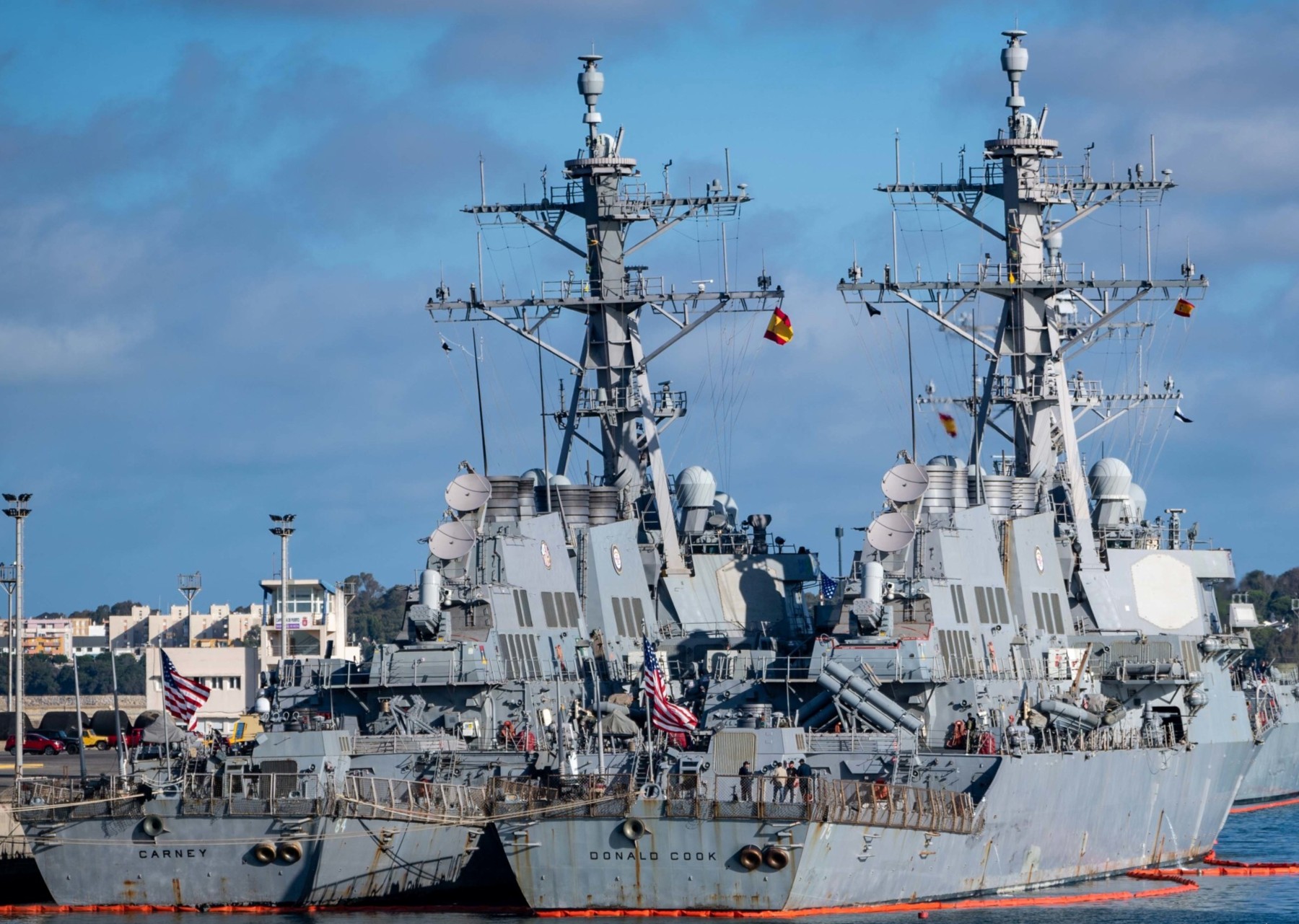 with USS Donald Cook at Naval Station Rota, Spain - July 2019 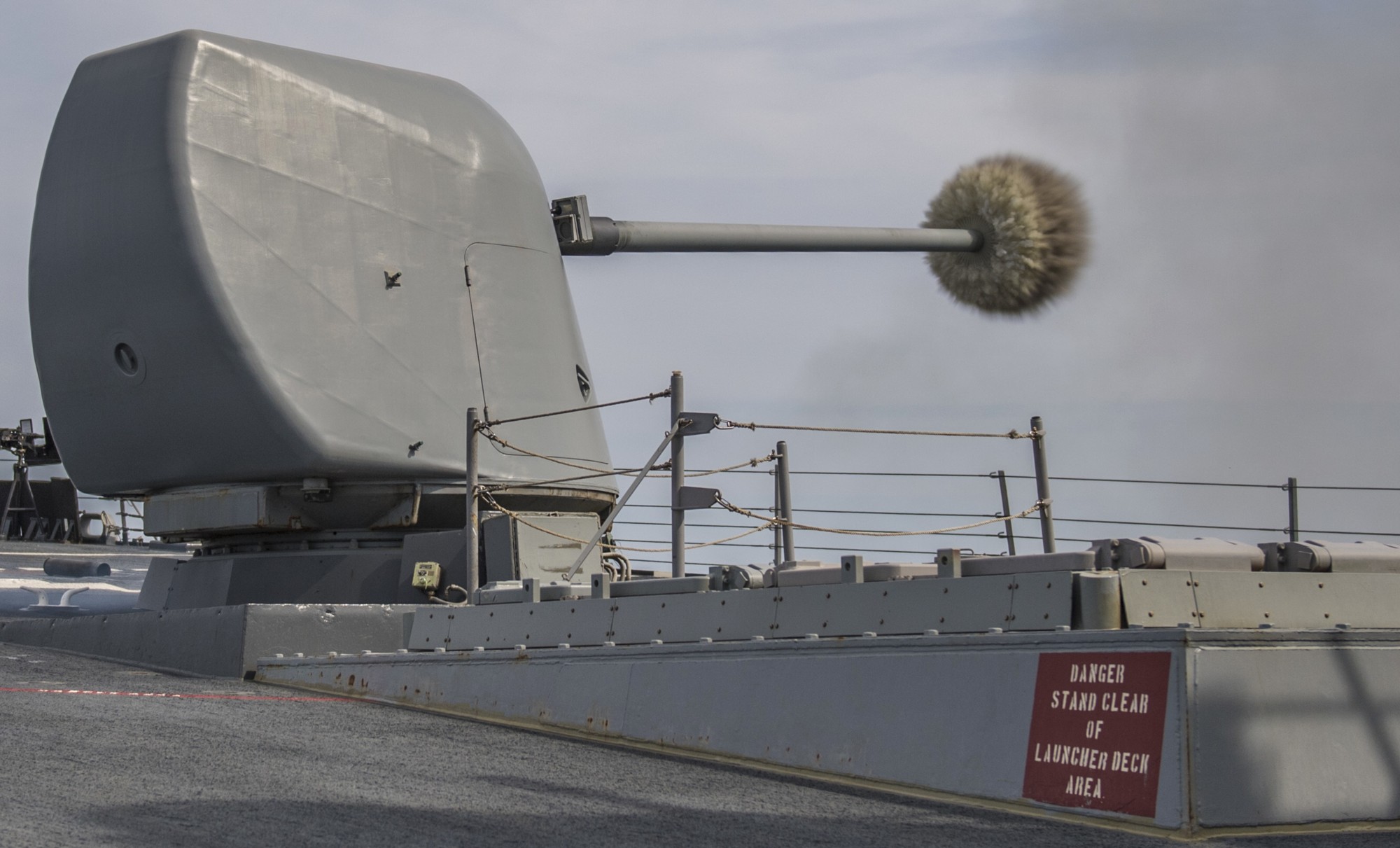 Mk.45 gun fire - Mediterranean Sea - July 2019 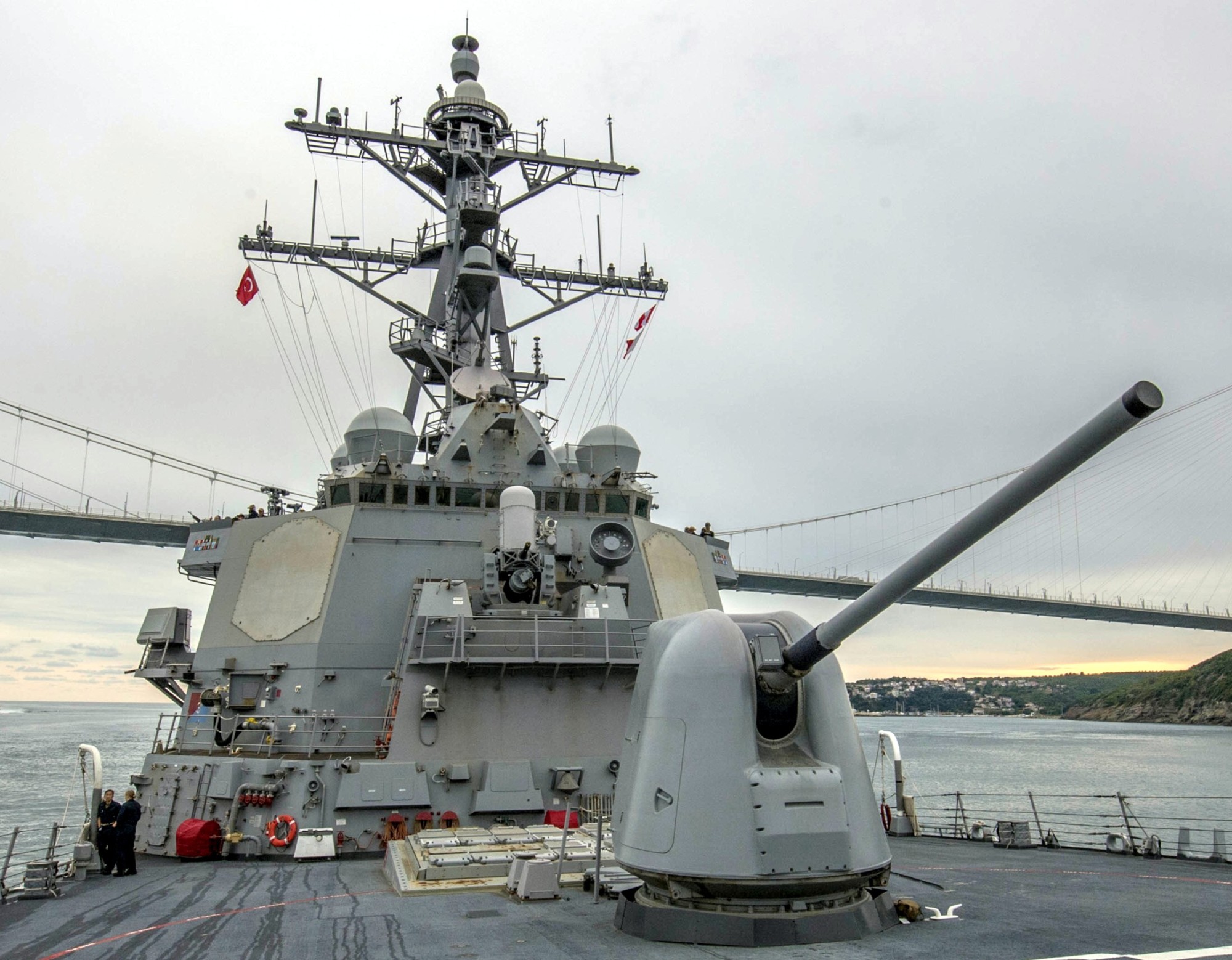 leaving the Black Sea back to the Mediterranean Sea - July 2019 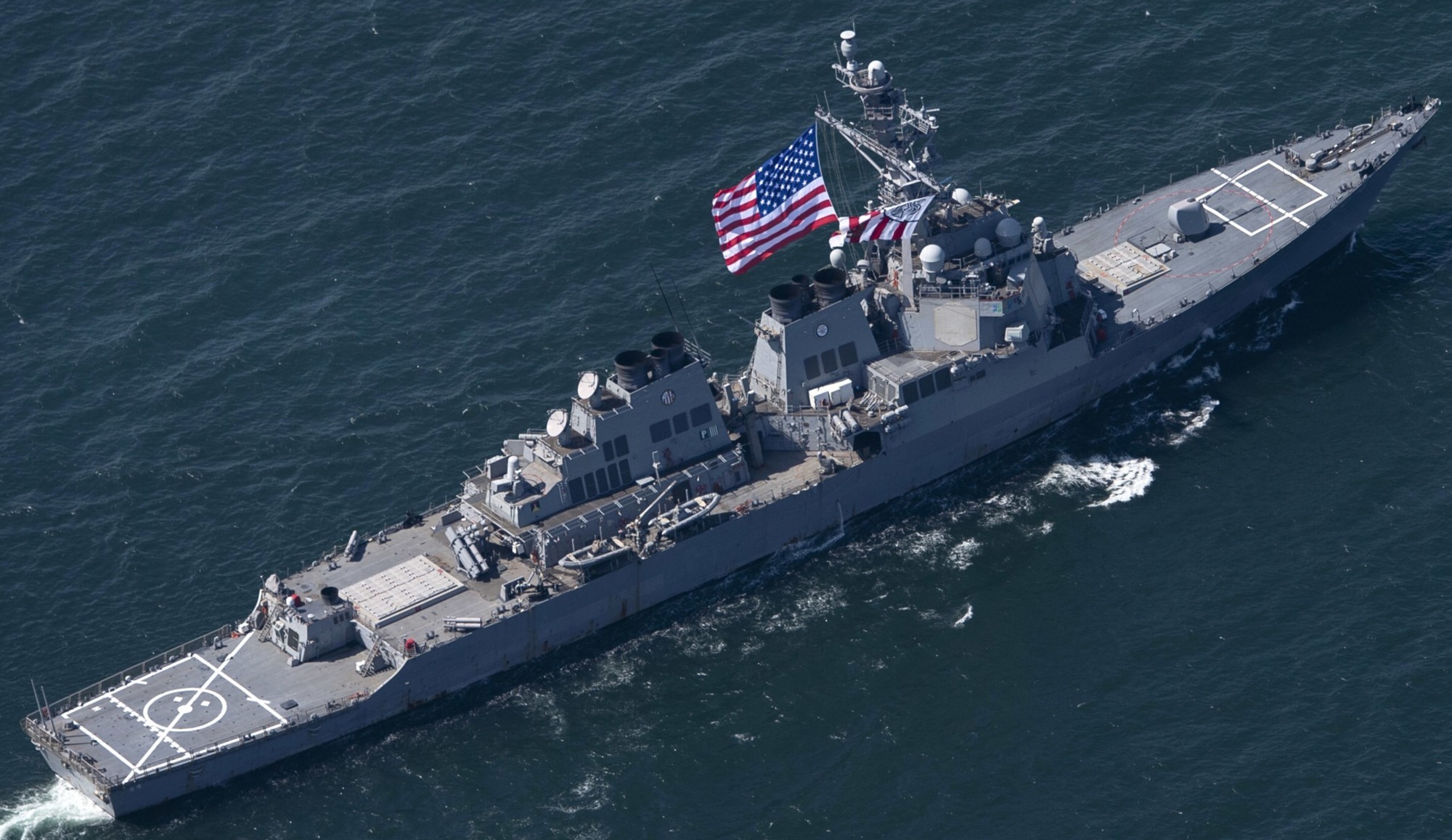 Exercise Sea Breeze - Black Sea - July 2019 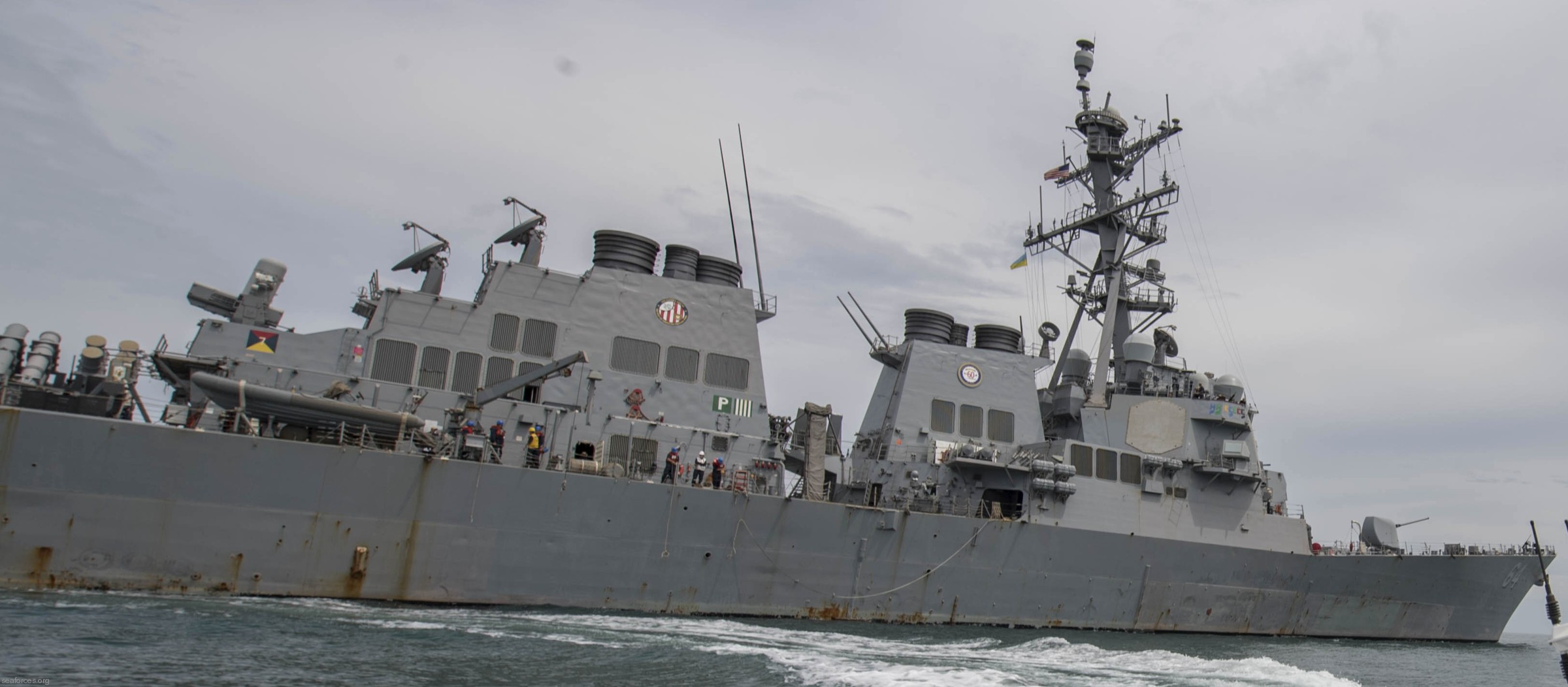 Black Sea - July 2019 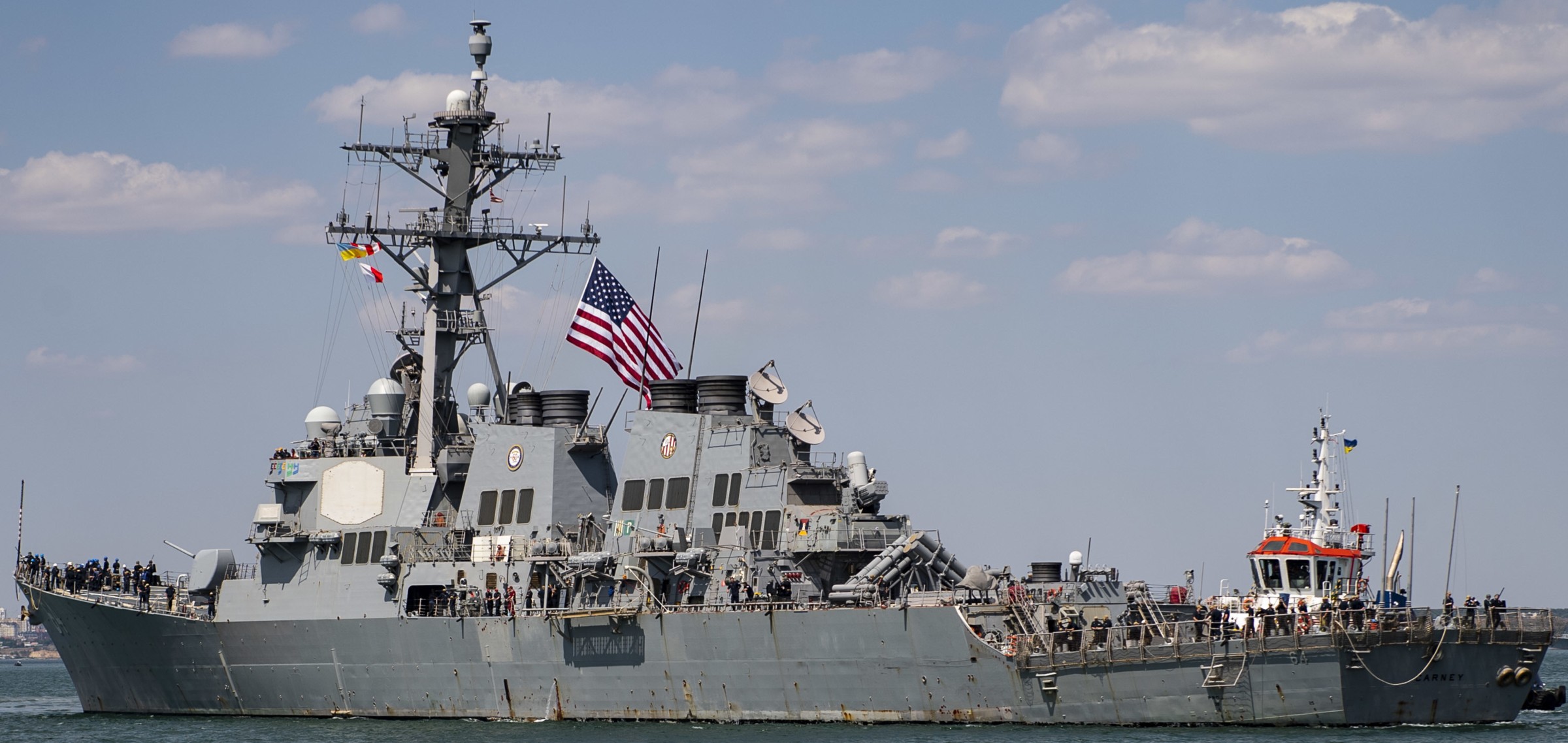 Odesa, Ukraine - July 2019 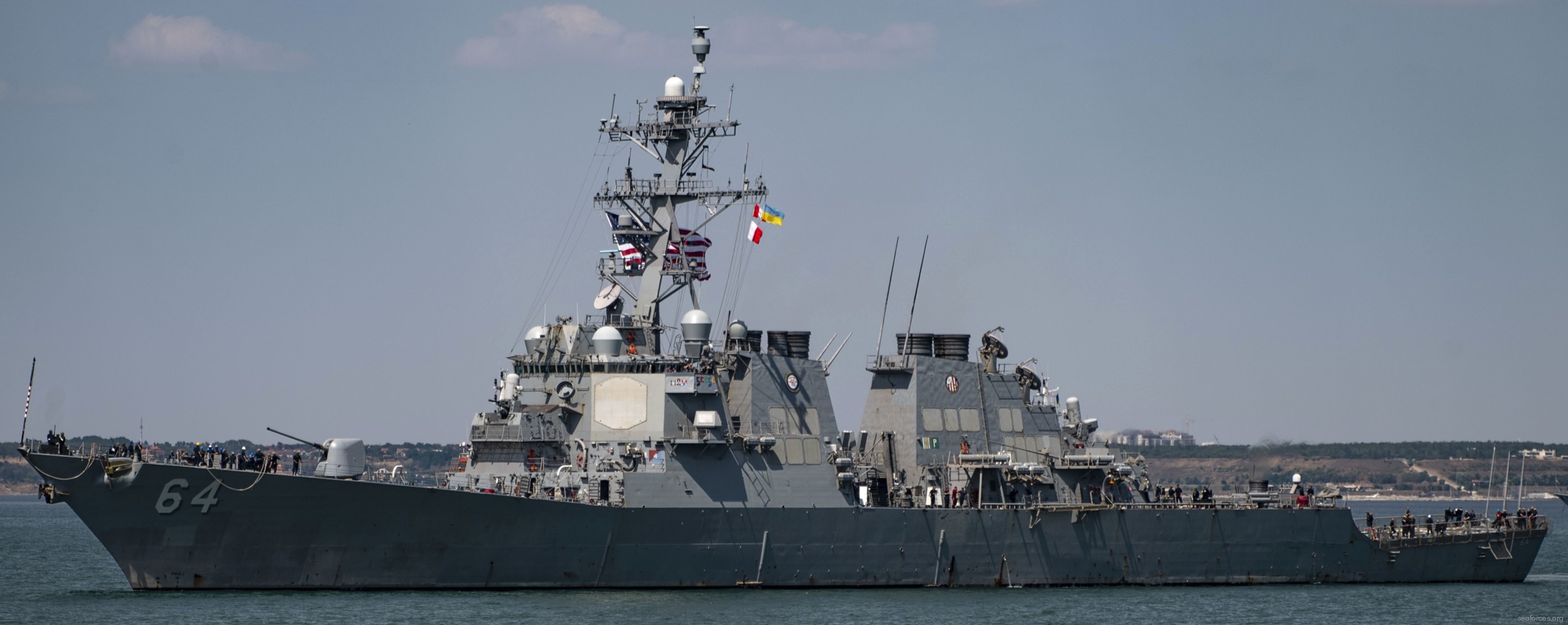 Odesa, Ukraine - July 2019 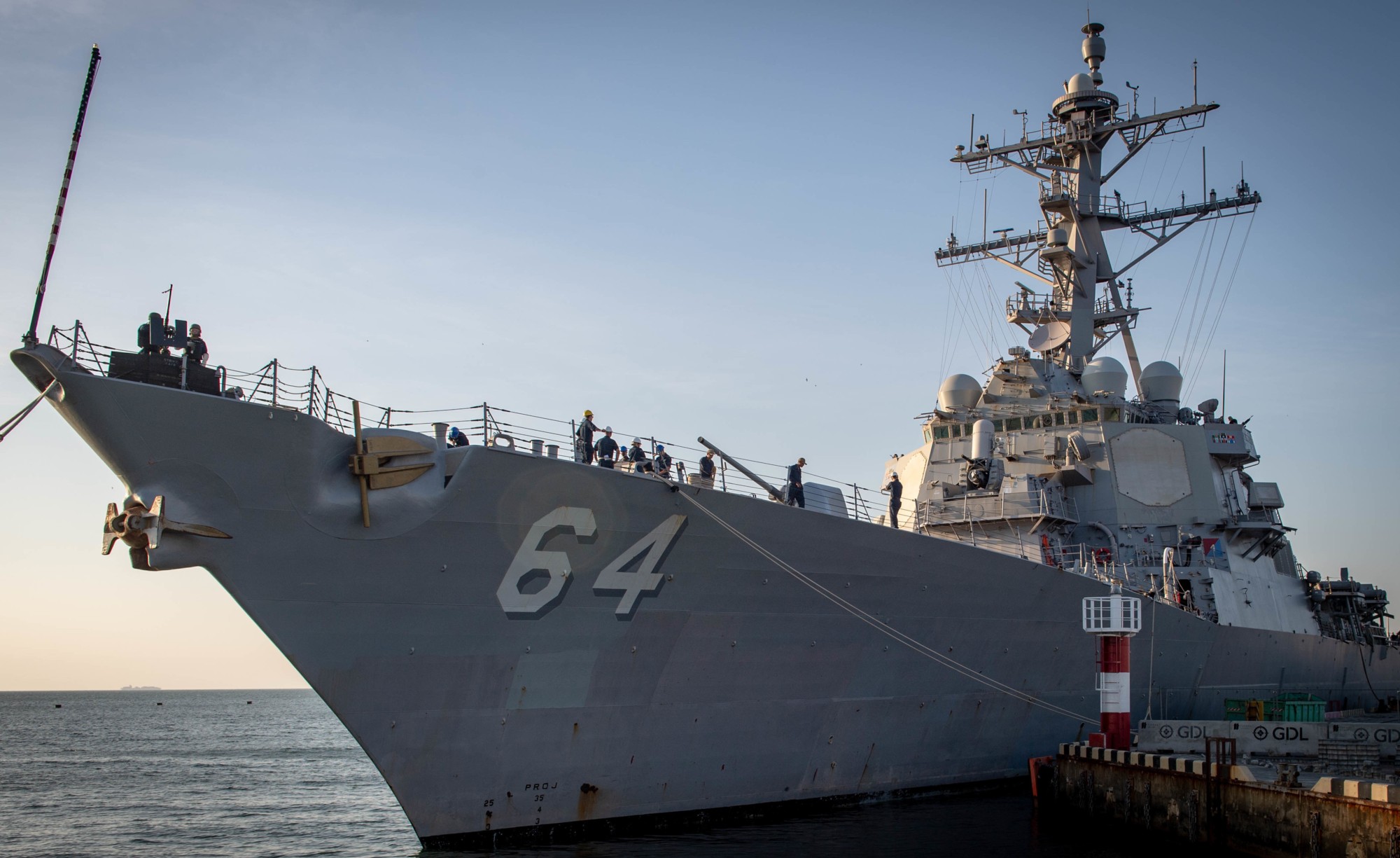 Odessa, Ukraine - July 2019 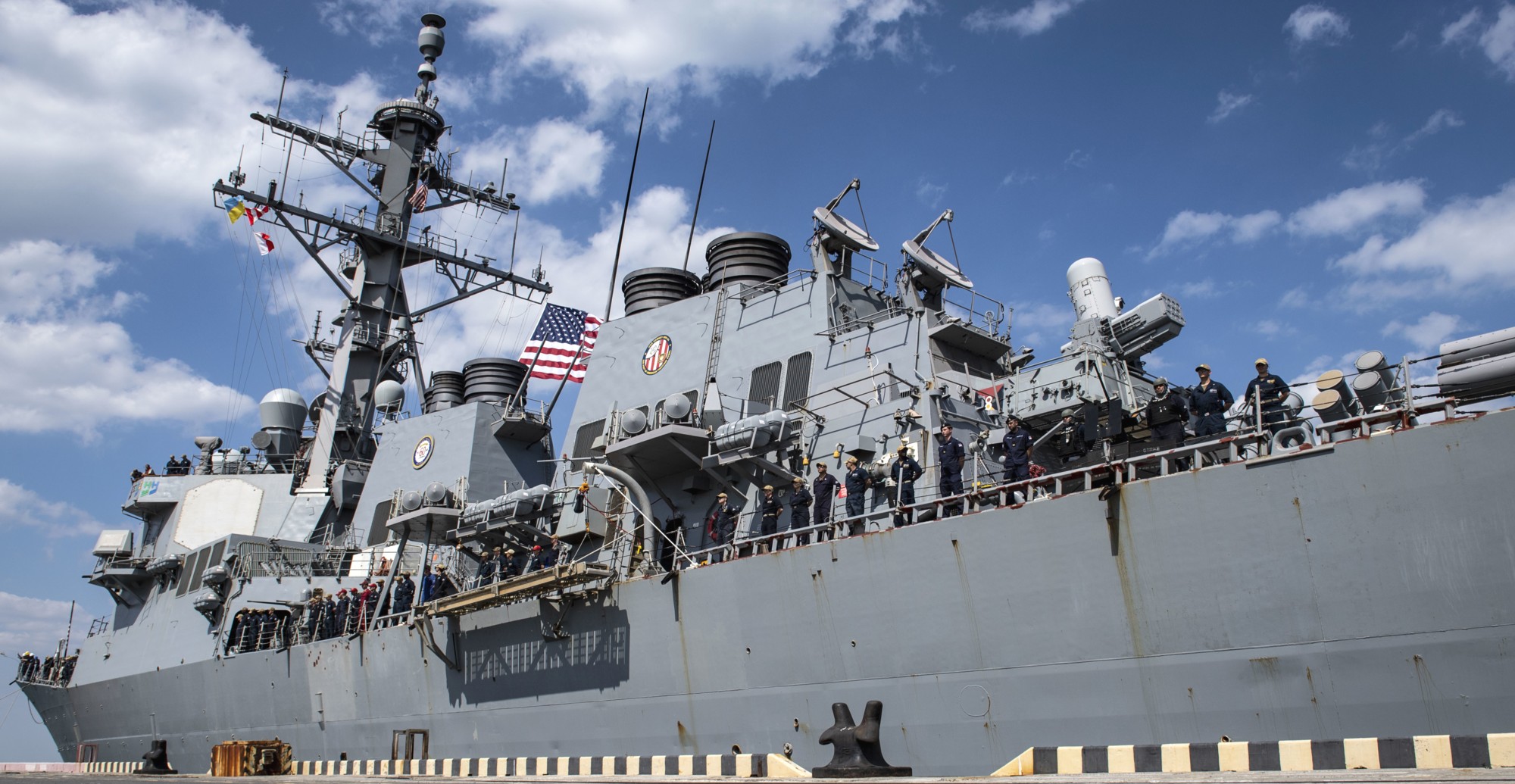 Odessa, Ukraine - July 2019 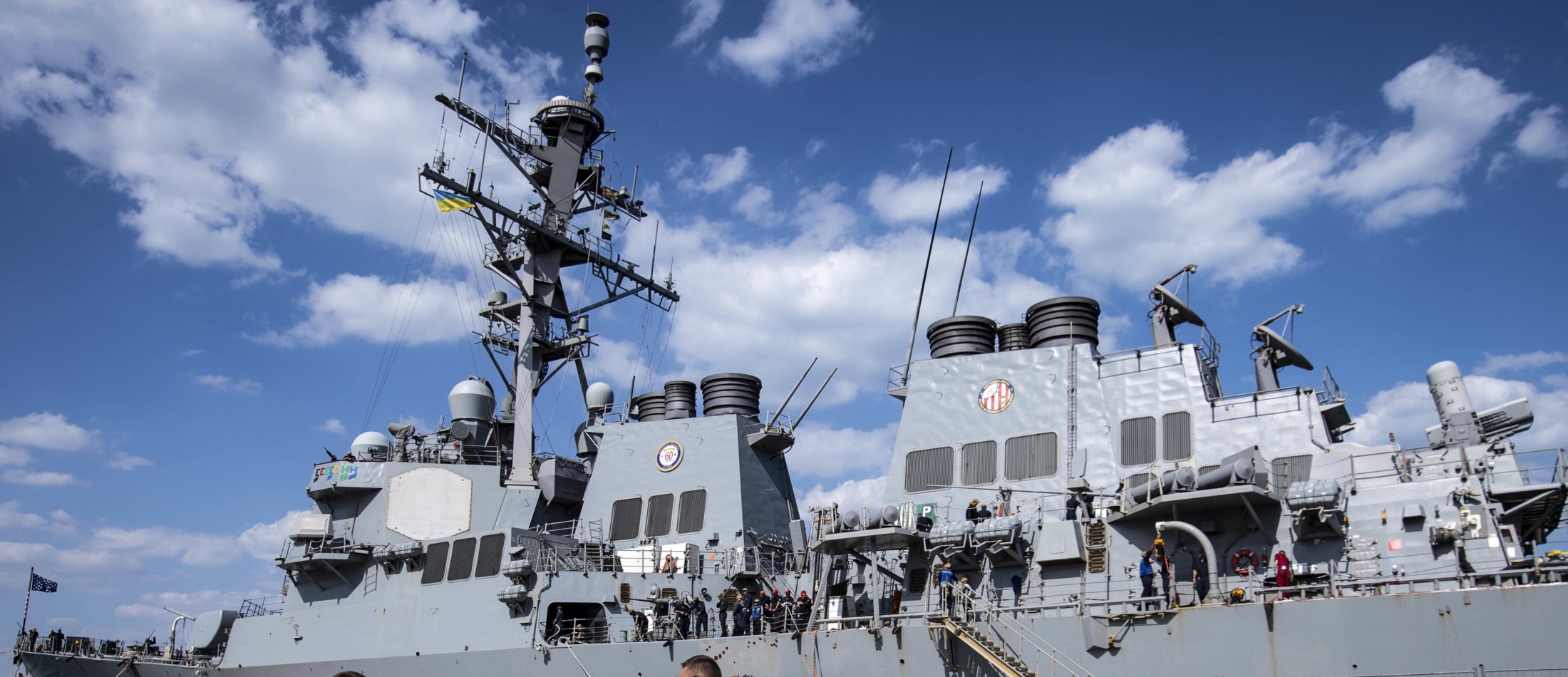 Odessa, Ukraine - July 2019 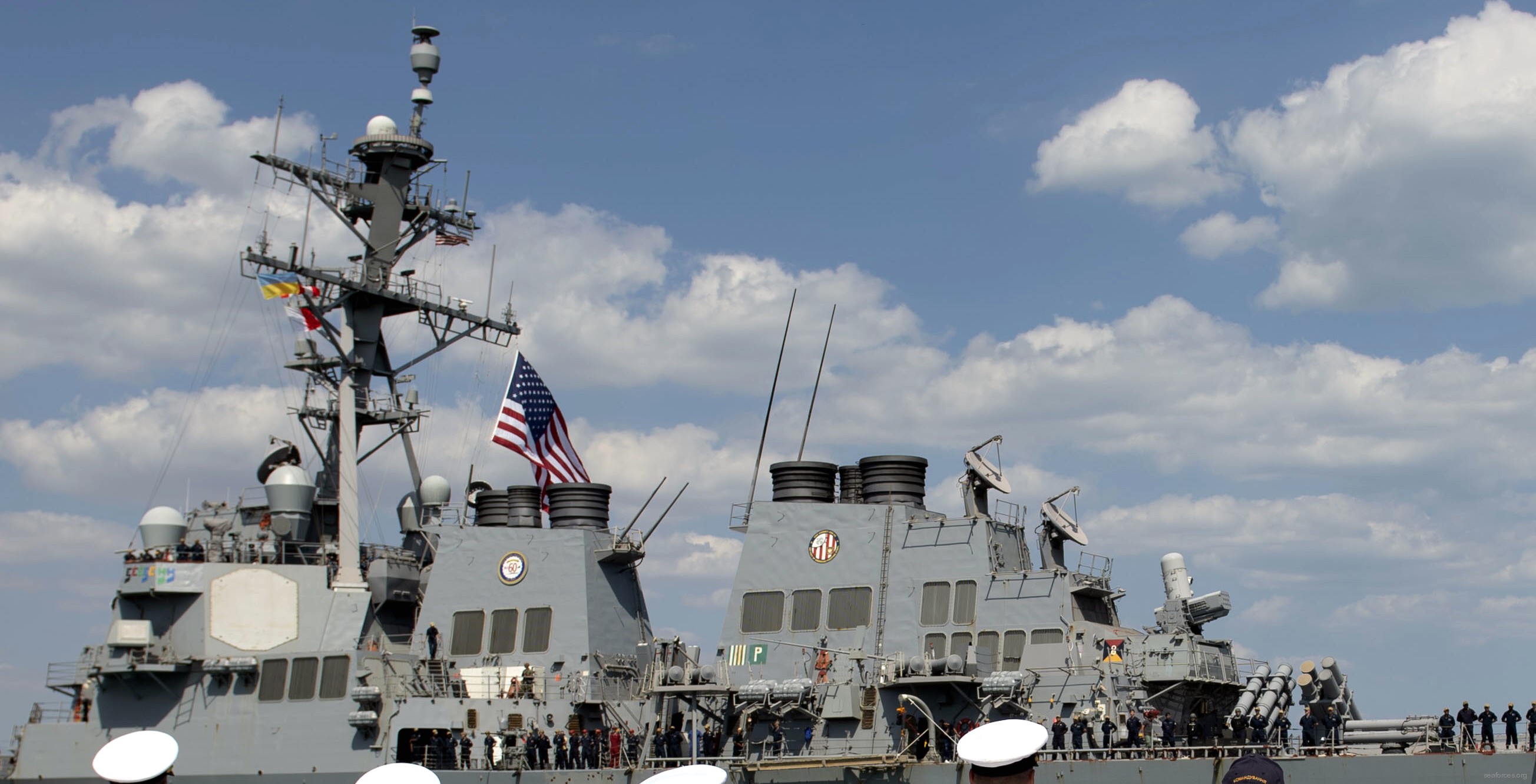 Odessa, Ukraine - July 2019 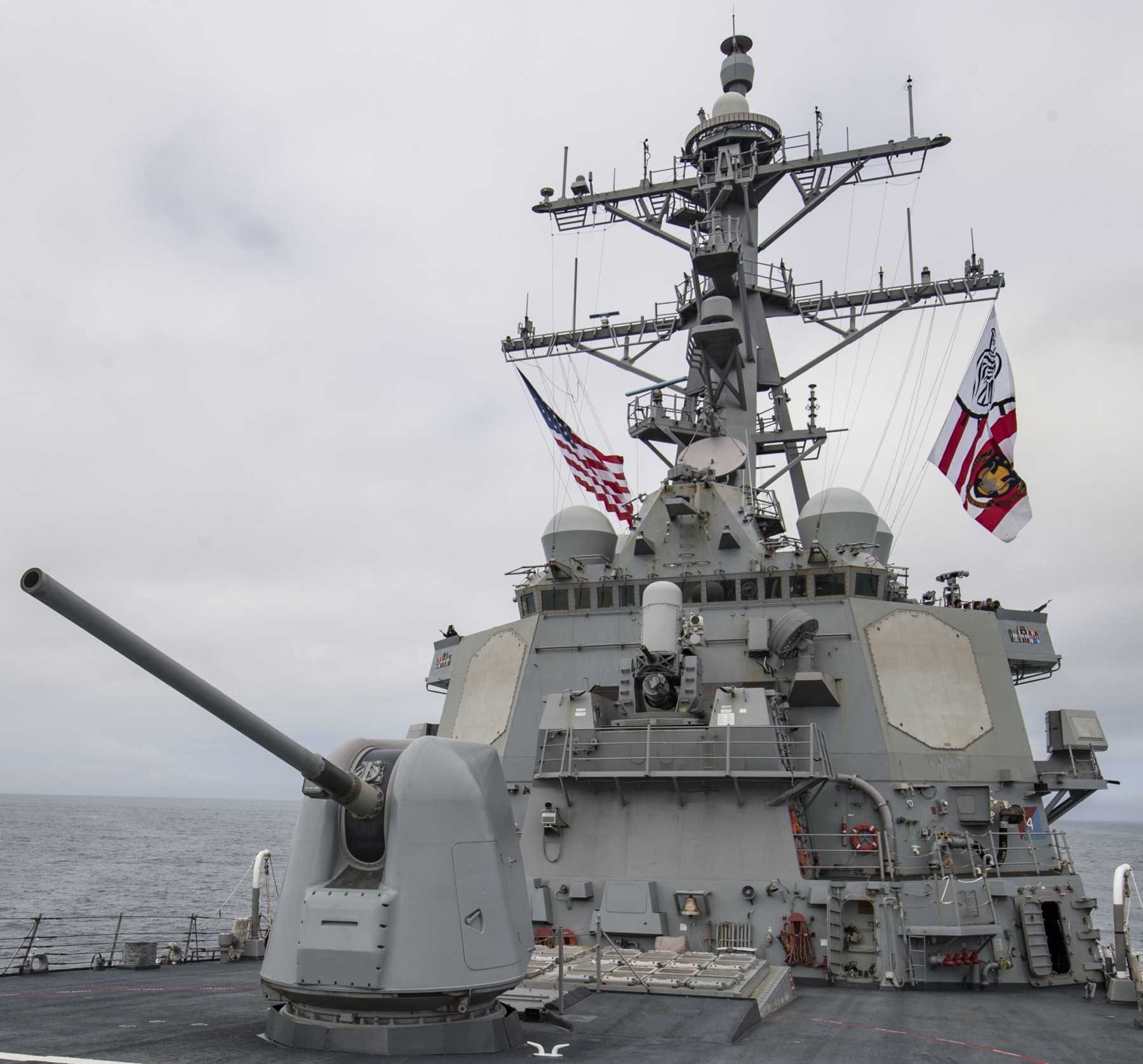 Atlantic Ocean - June 2019 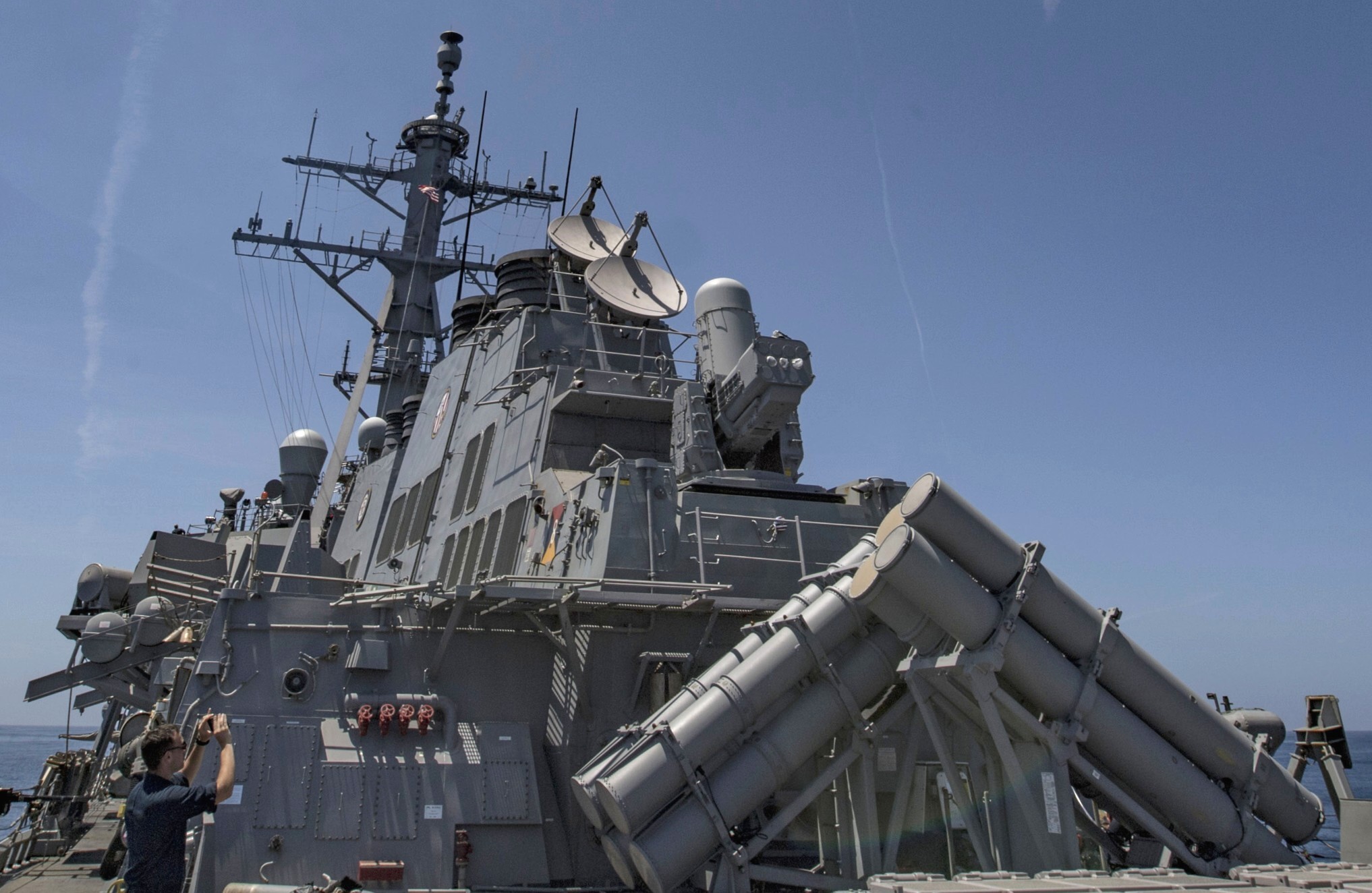 Atlantic Ocean - June 2019 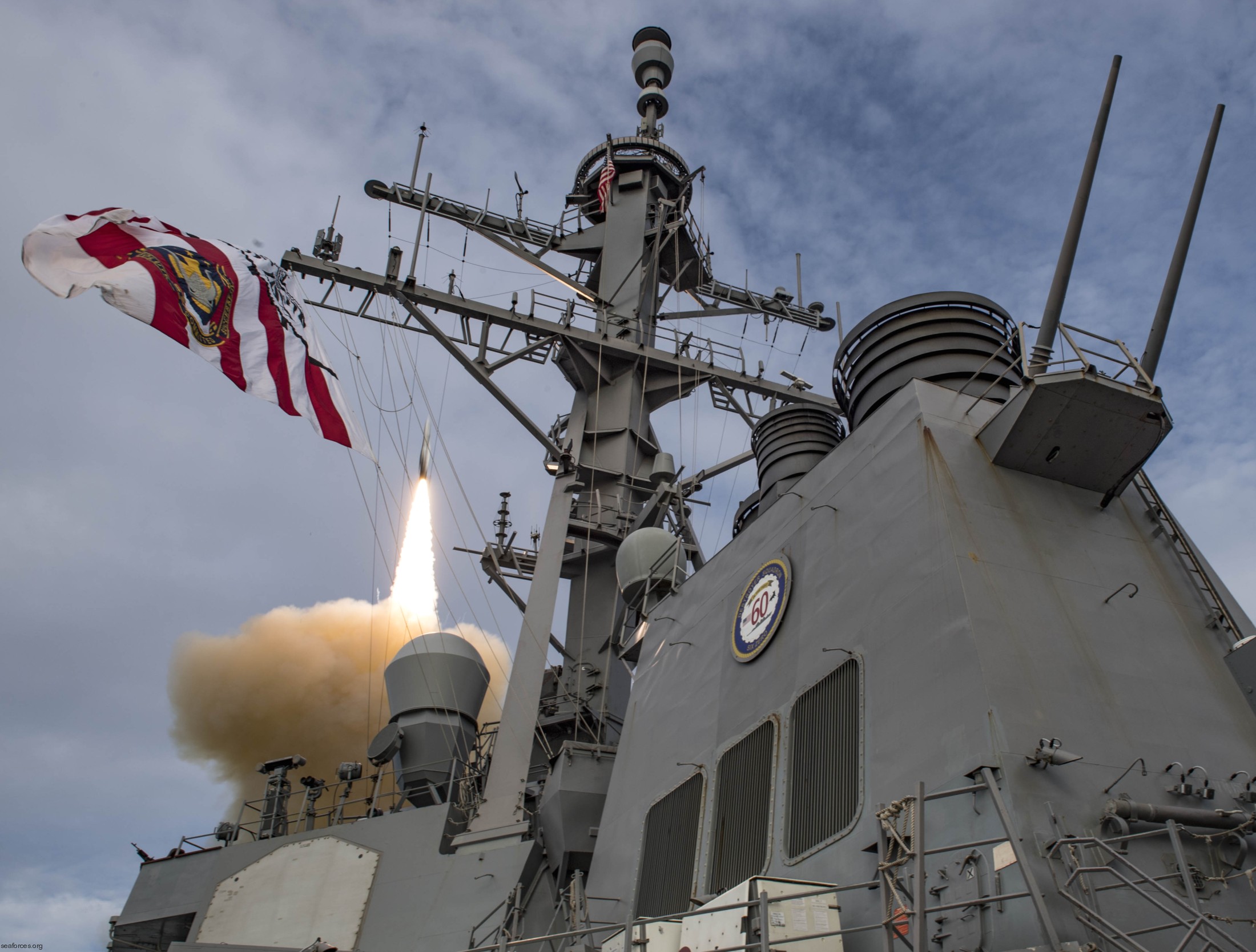 USS Carney fires a Standard Missile SM-2 - Atlantic Ocean - May 2019 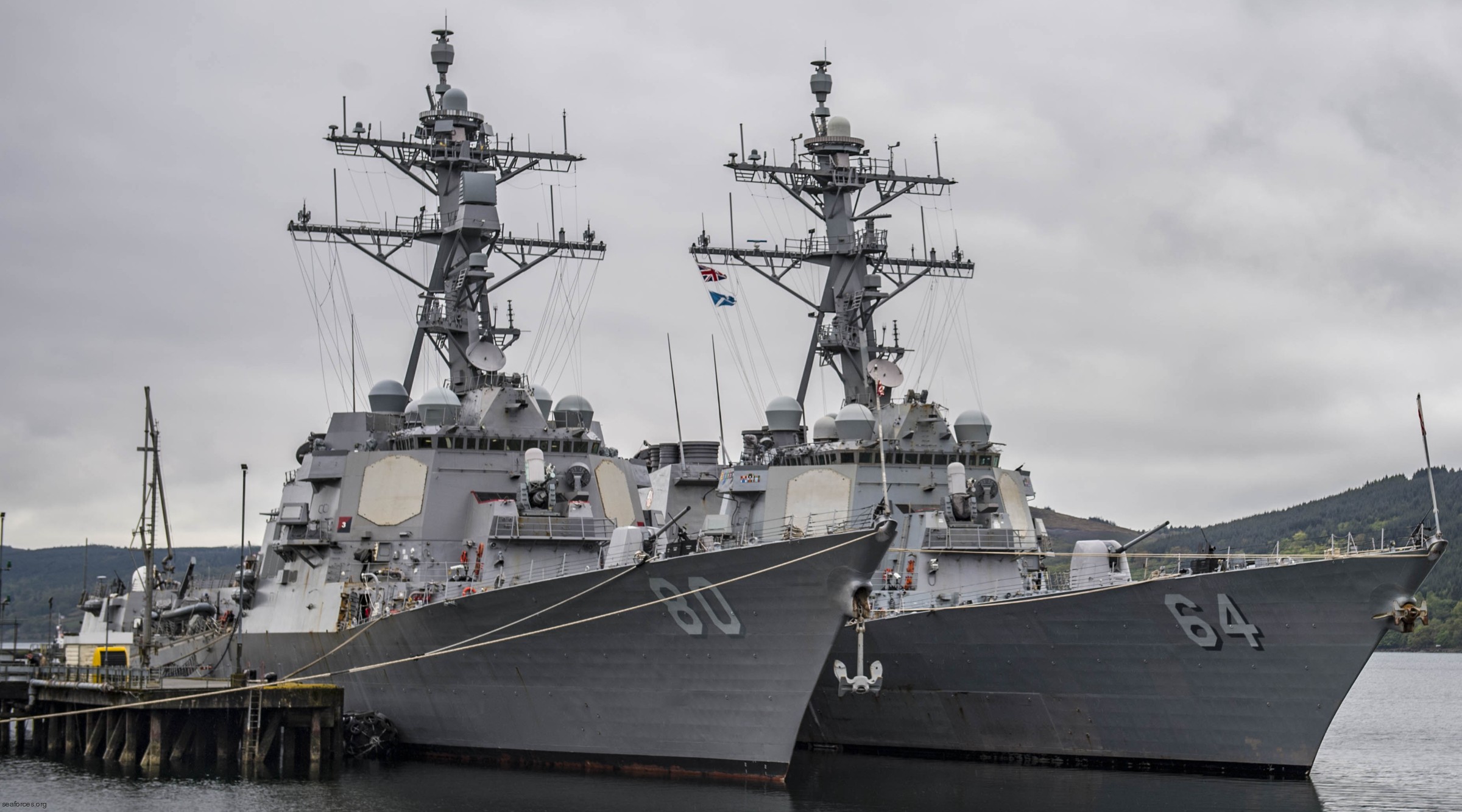 with USS Roosevelt (DDG 80) - Faslane, Scotland - May 2019 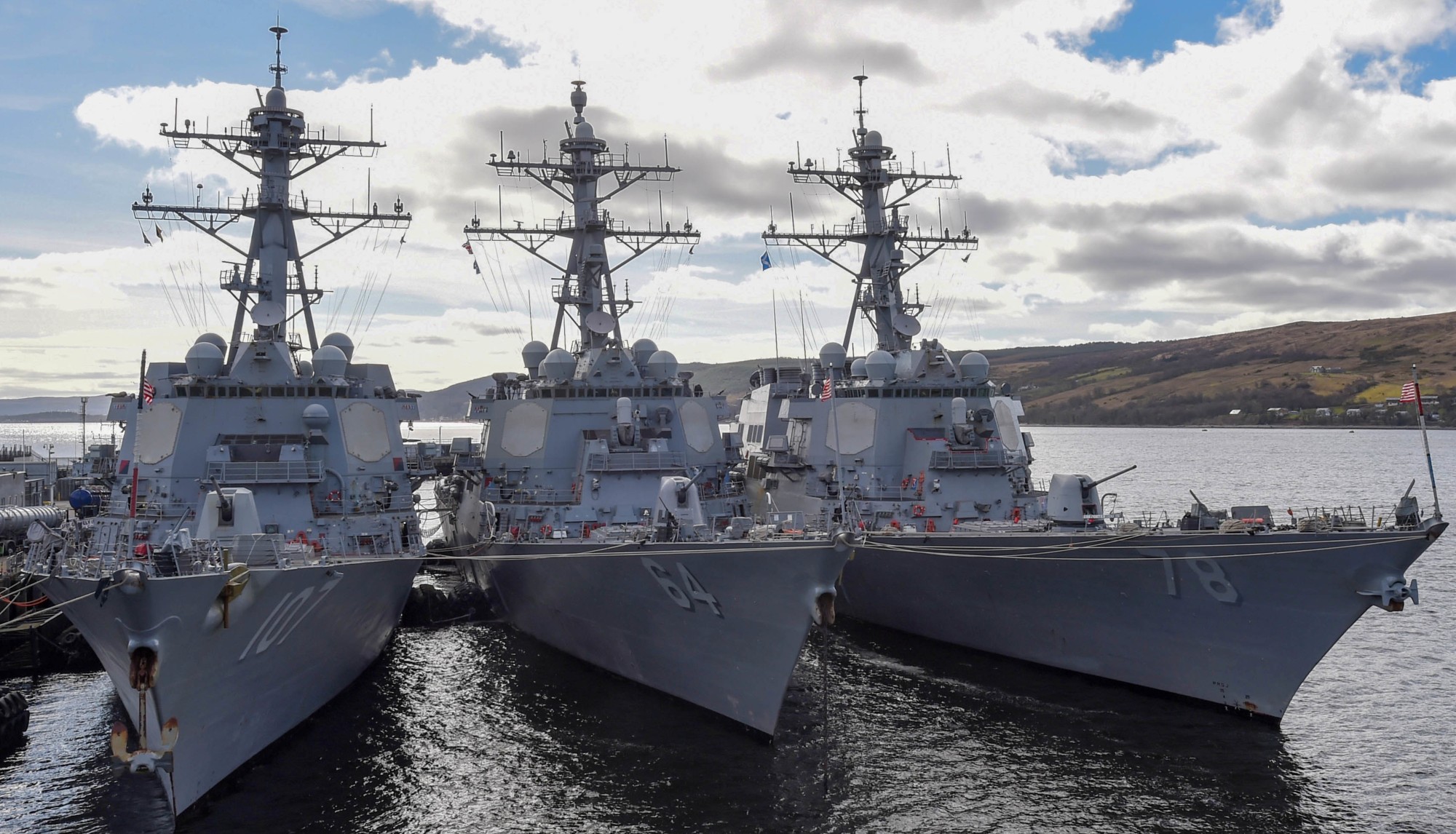 with USS Gravely (DDG 107) and USS Porter (DDG 78) - Faslane, Scotland - March 2019  Mediterranean Sea - October 2018 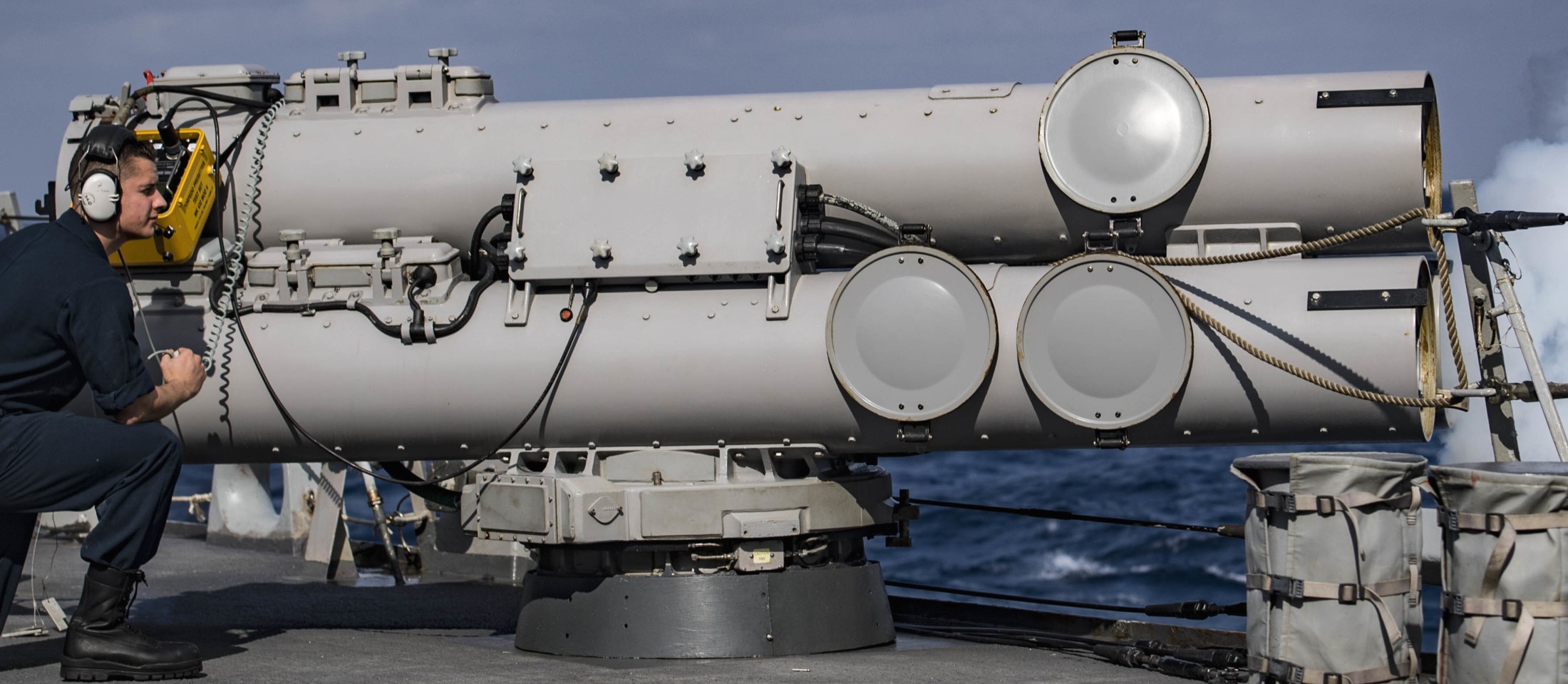 Mk.32 torpedo tubes exercise - Mediterranean Sea - October 2018 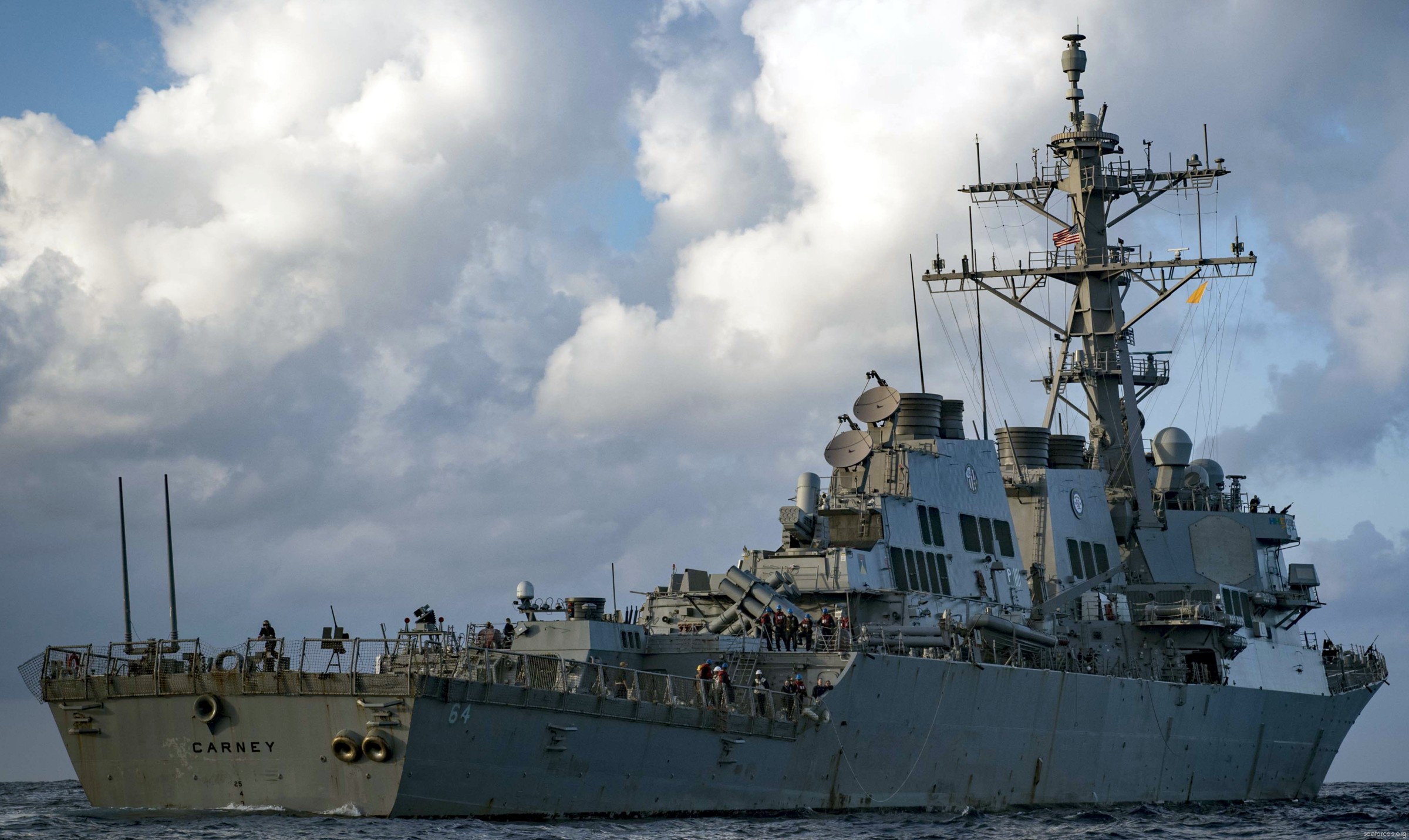 Mediterranean Sea - September 2018 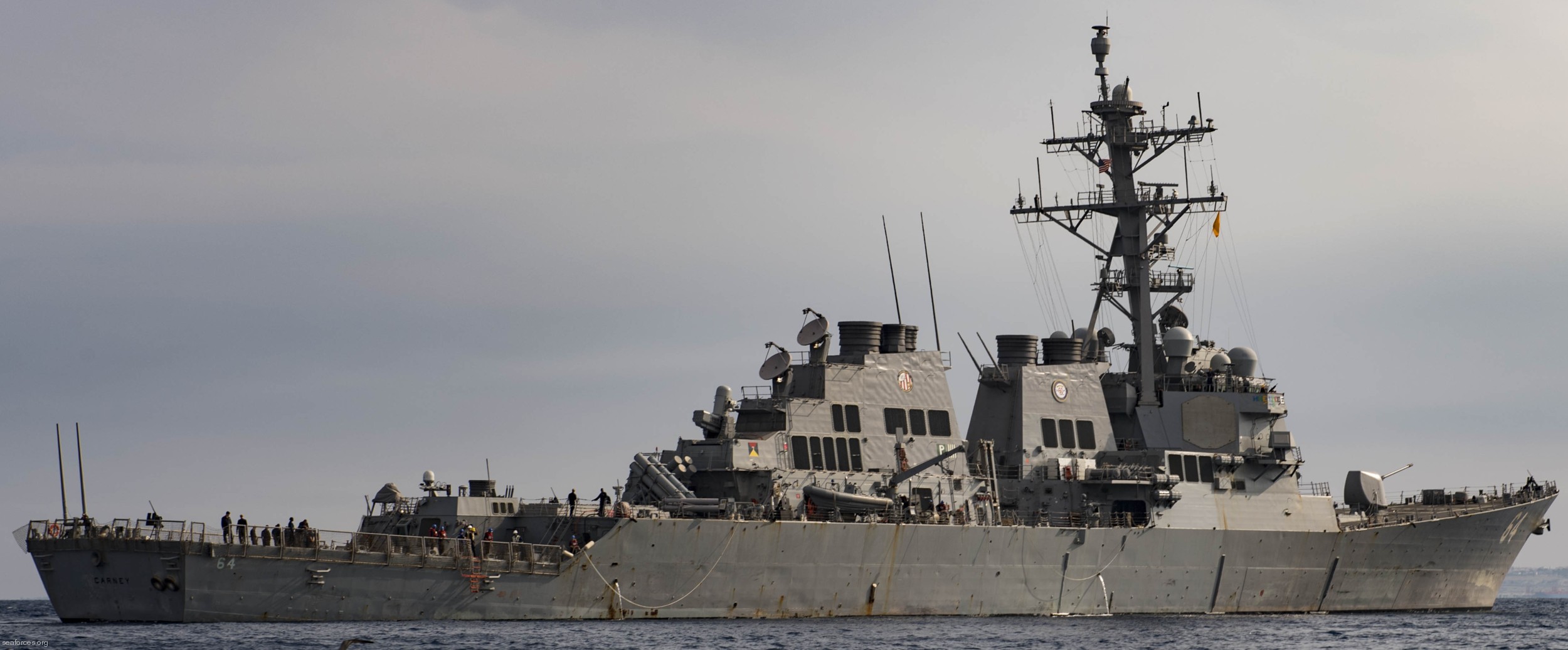 Mediterranean Sea - September 2018 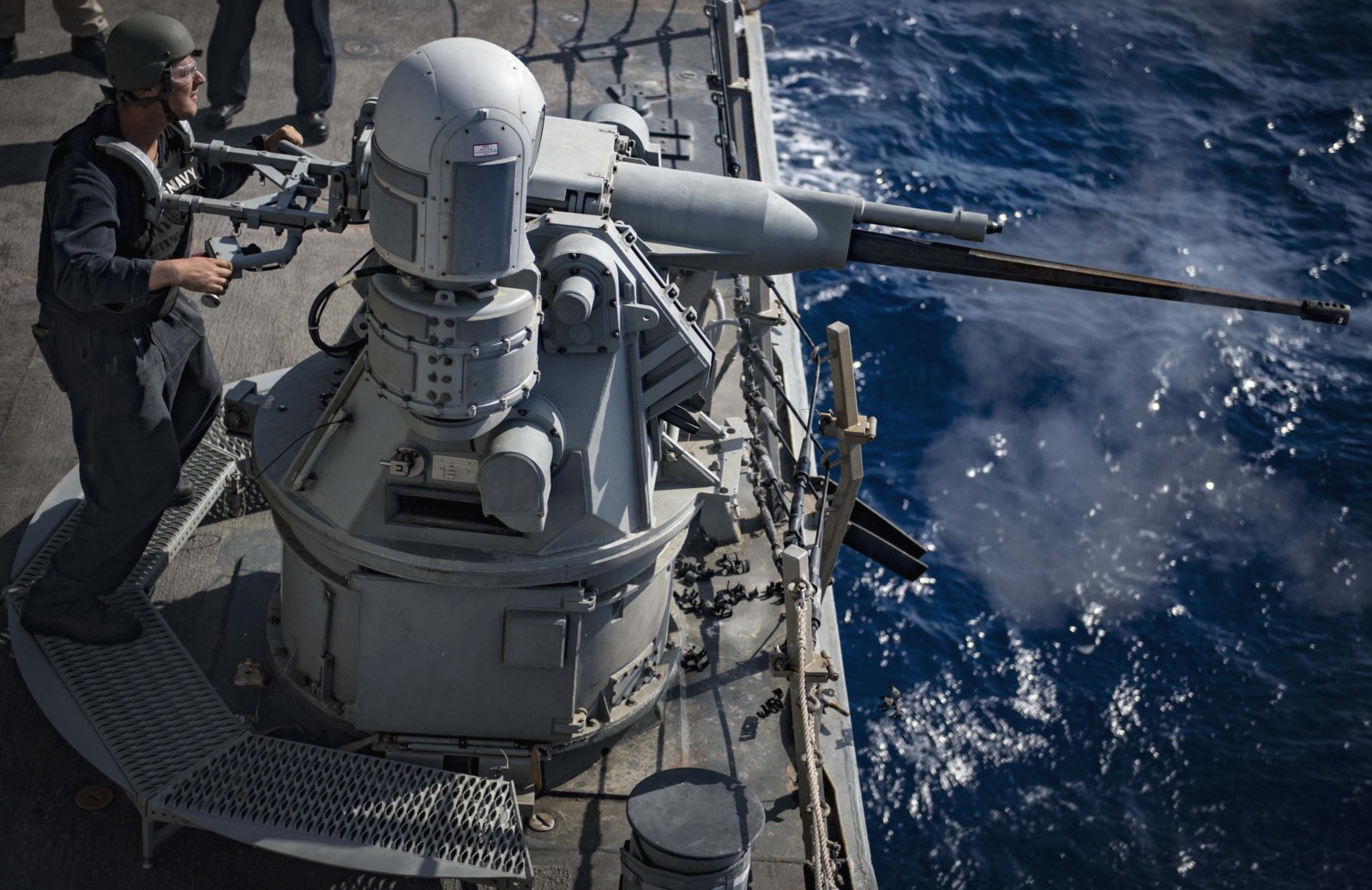 Mk.38 Mod.2 machine gun system fire exercise in manual use - Mediterranean Sea - September 2018 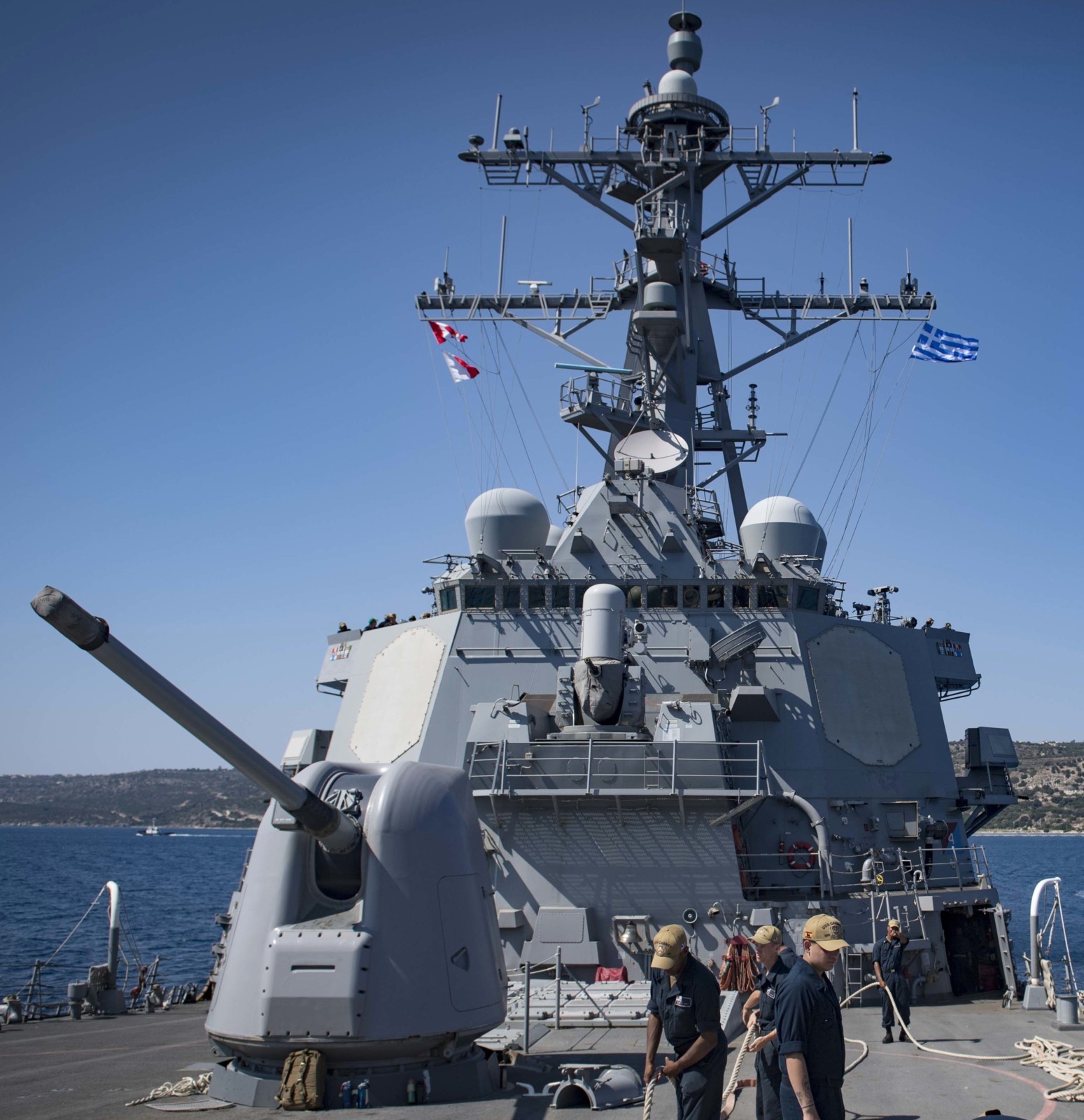 Naval Support Activity Souda Bay, Crete, Greece - September 2018  Black Sea - August 2018 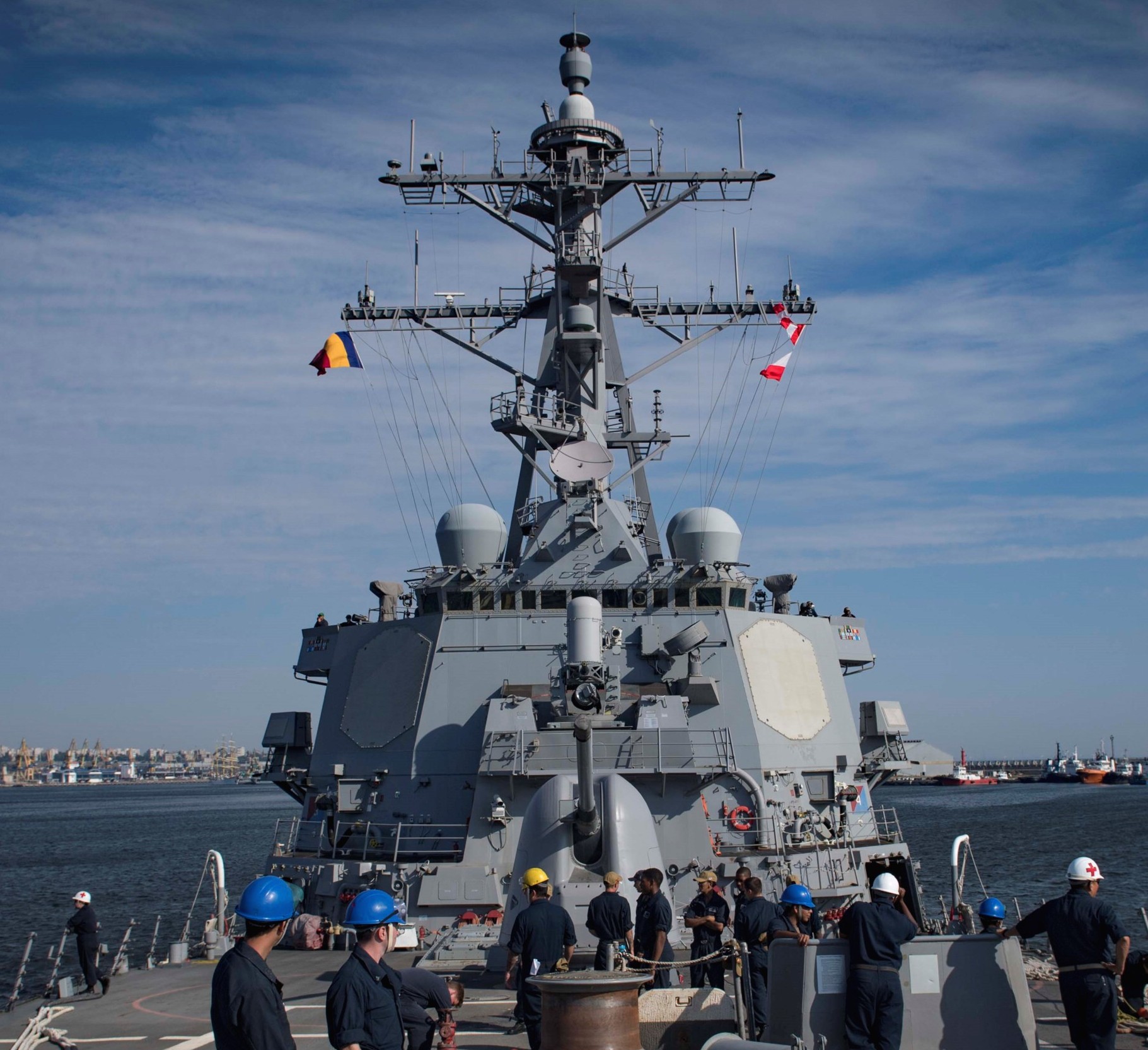 Constanta, Romania - August 2018  Mediterranean Sea - August 2018 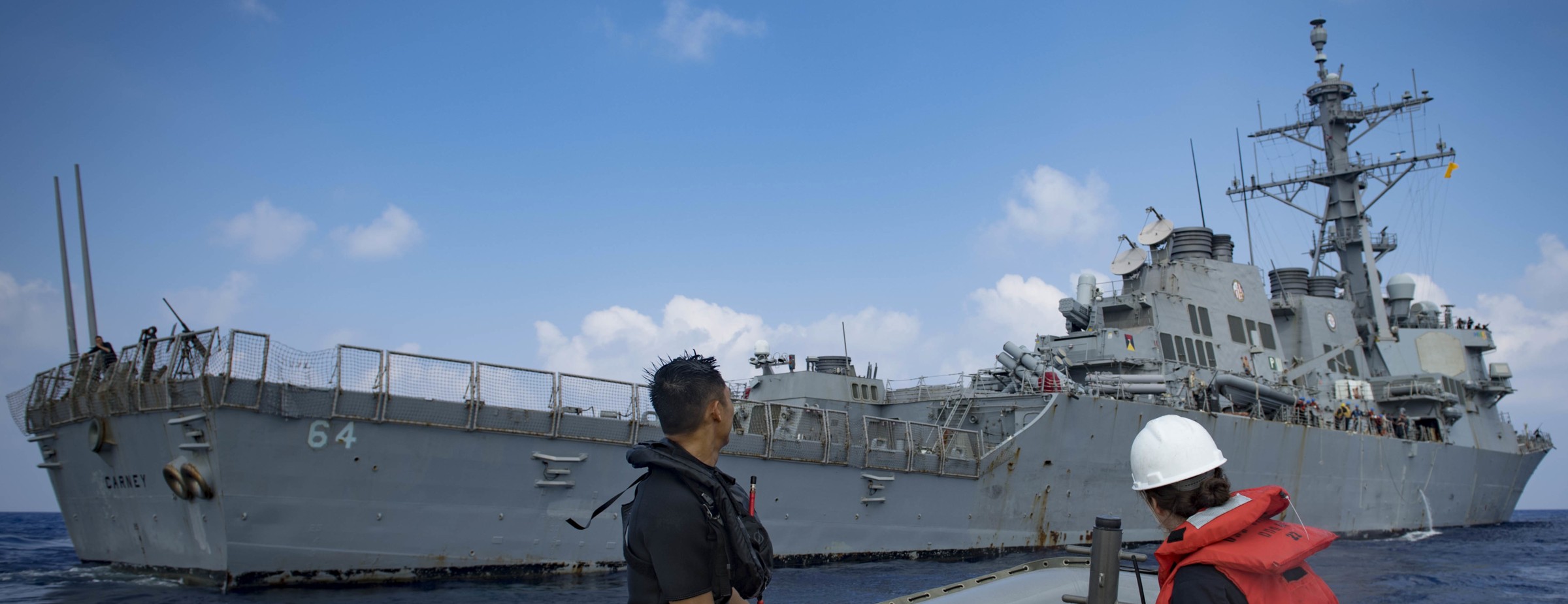 Mediterranean Sea - August 2018 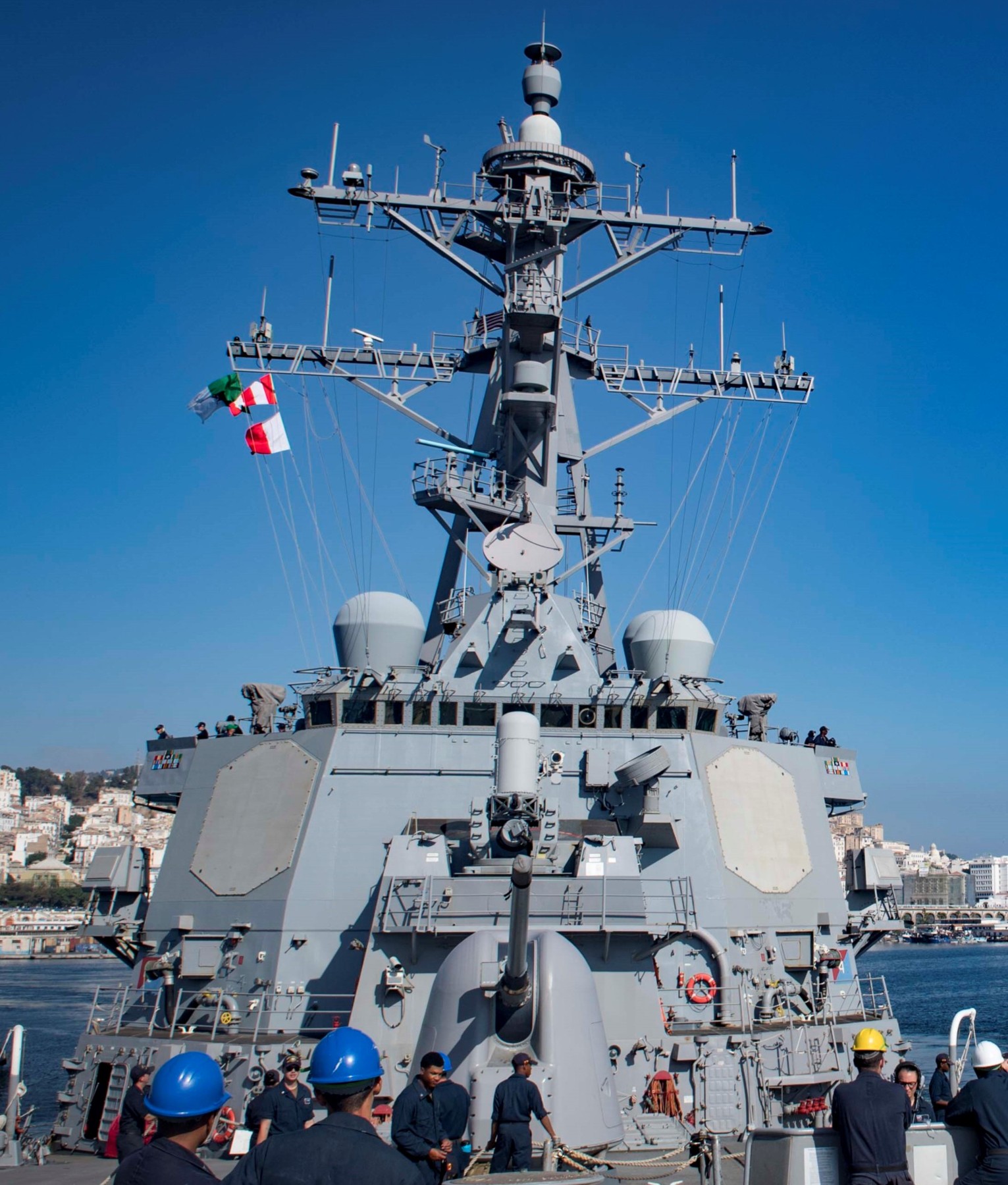 Algiers, Algeria - July 2018 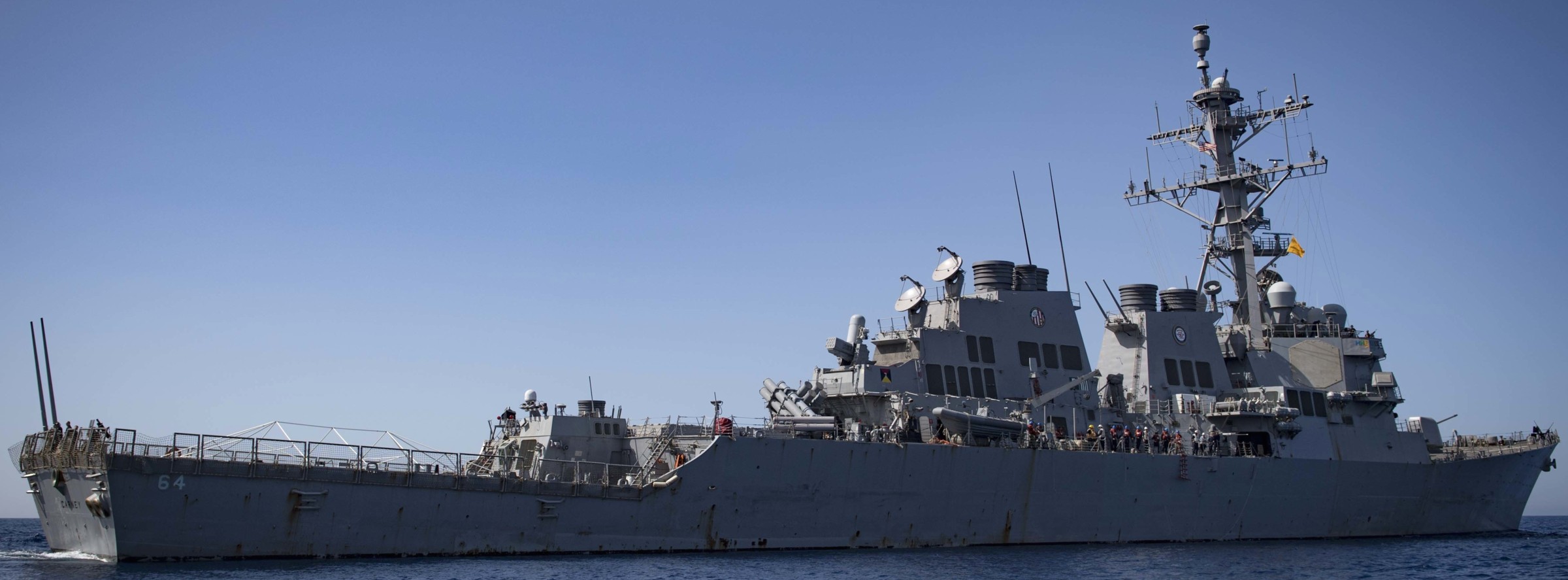 Mediterranean Sea - July 2018 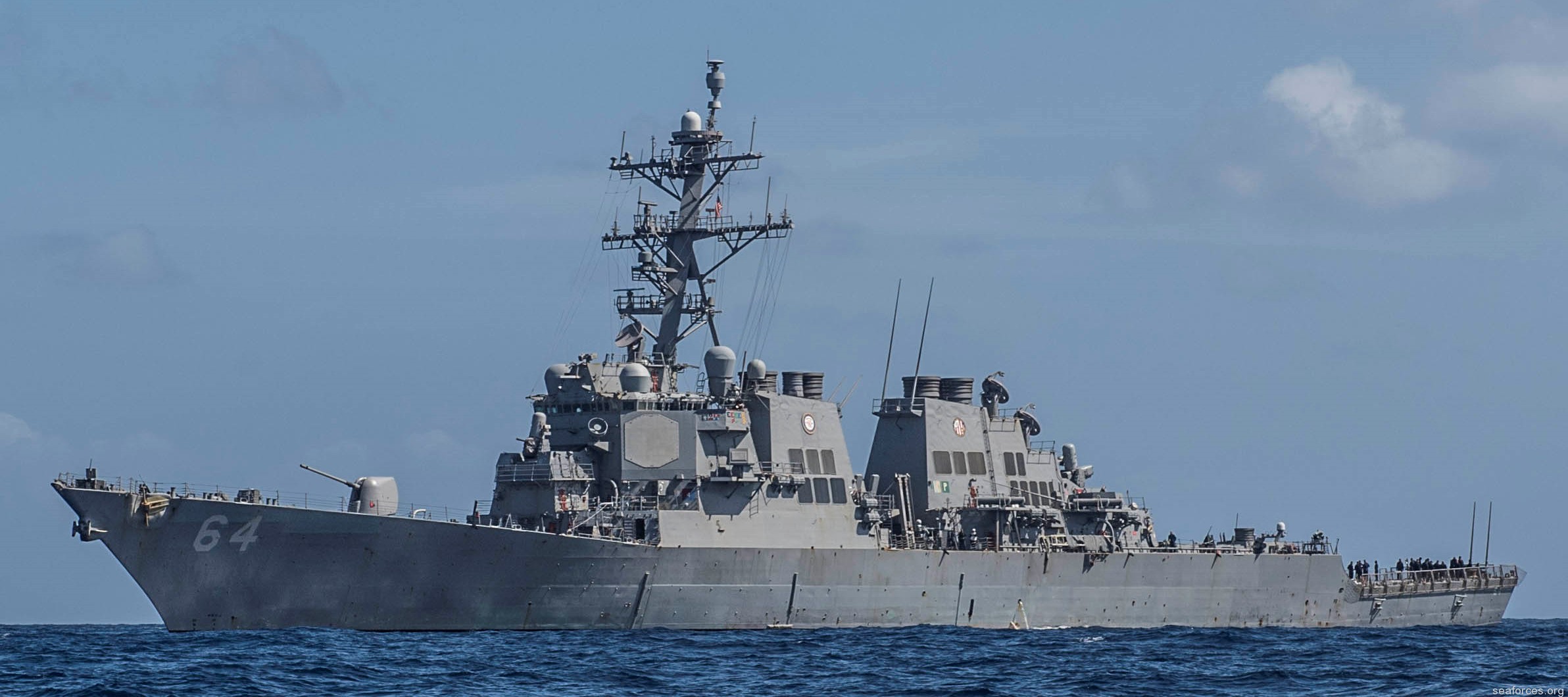 Mediterranean Sea - March 2018 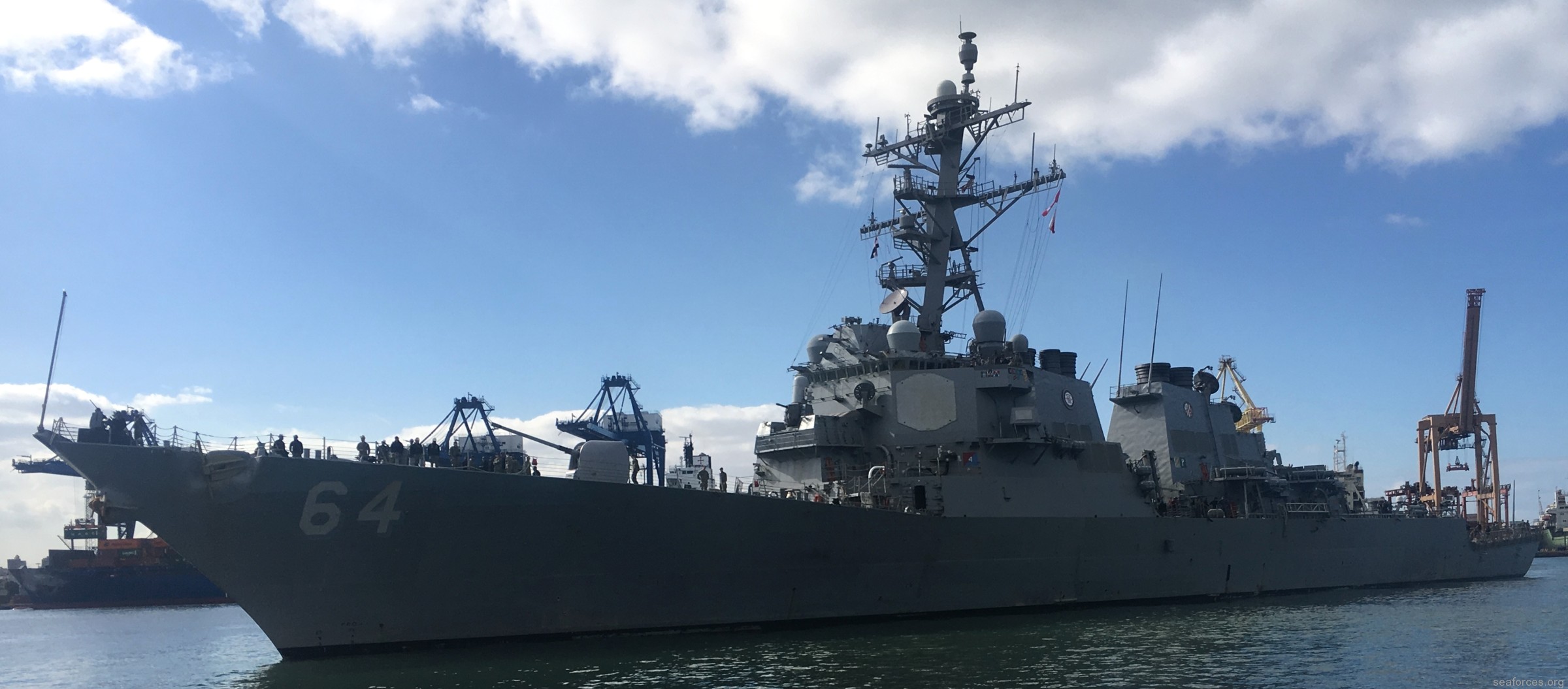 Alexandria, Egypt - January 2018 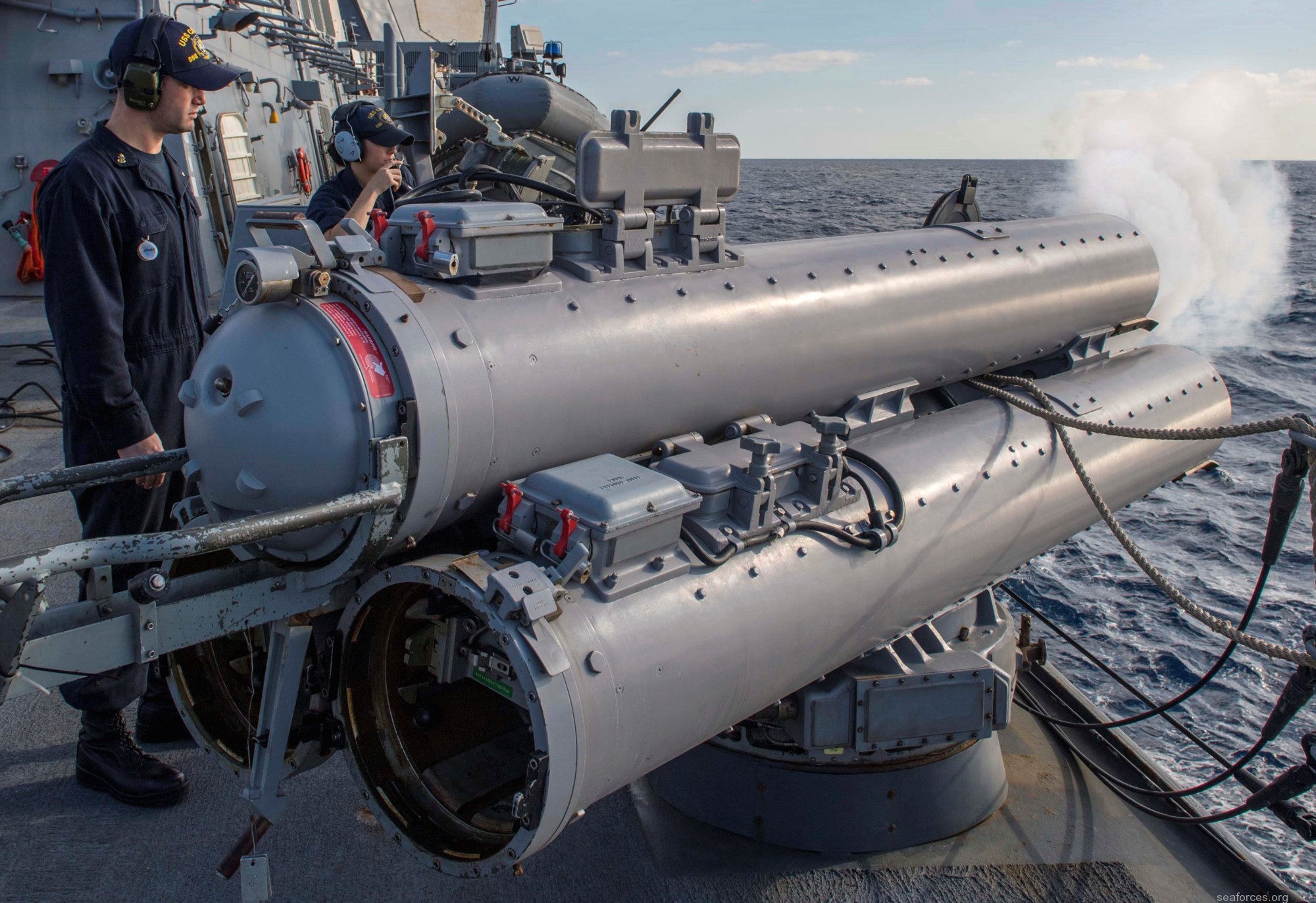 Mk.32 Mod.15 surface vessel torpedo tubes (SVTT) exercise - Mediterranean Sea - January 2018 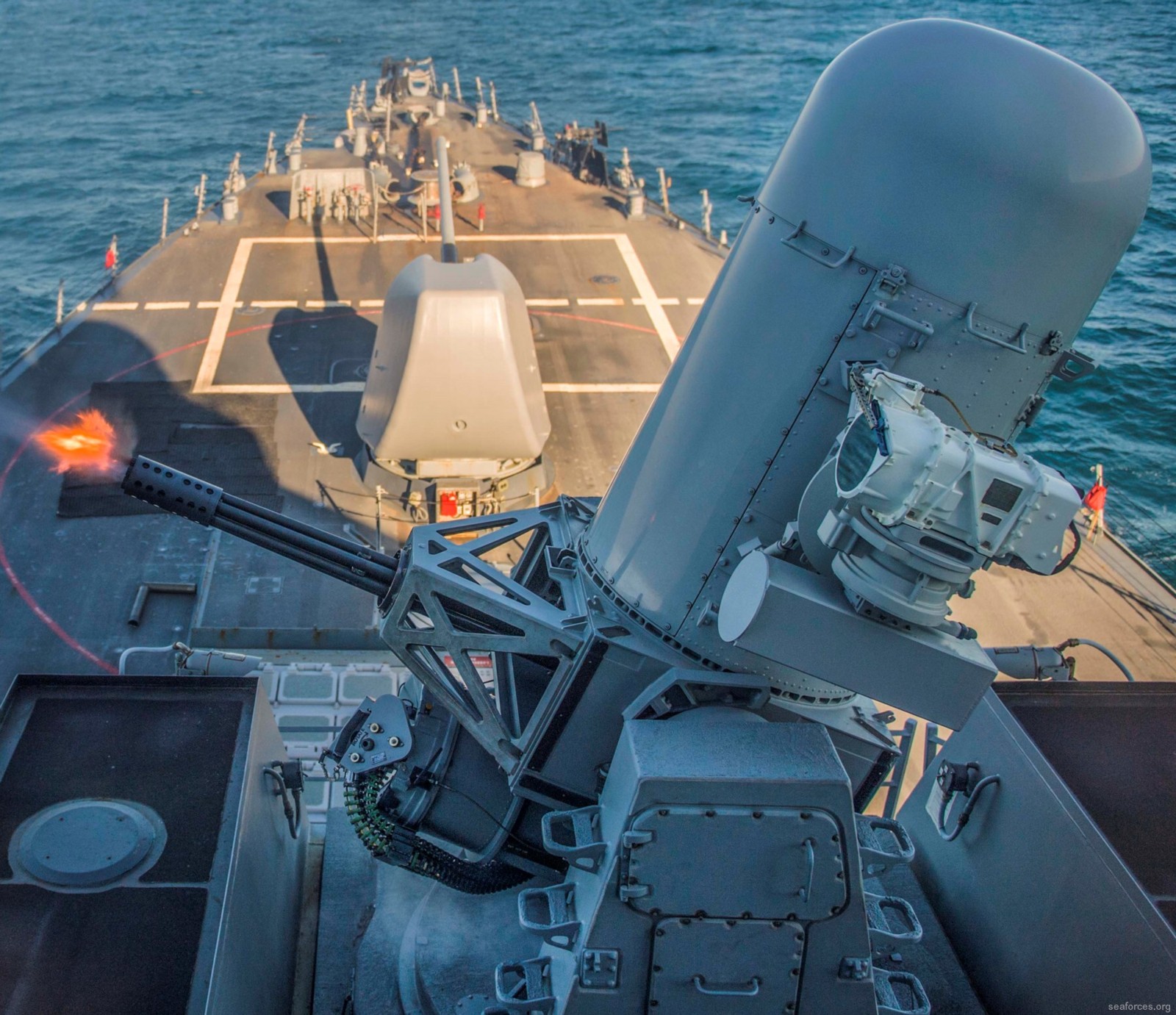 Mk.15 Phalanx CIWS fire exercise - Black Sea - January 2018 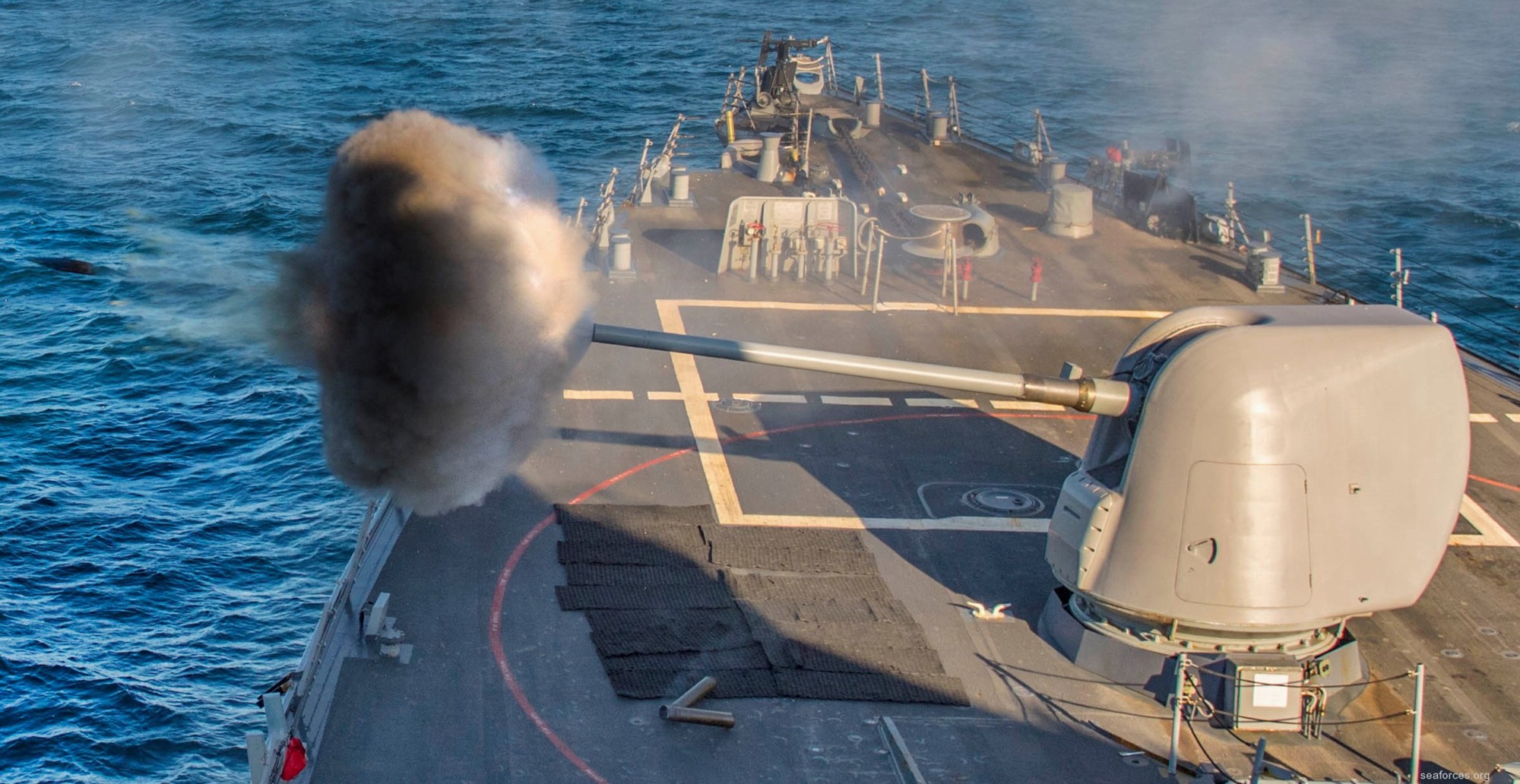 Mk.45 Mod.2 (5"/54-caliber) gun fire exercise - Black Sea - January 2018 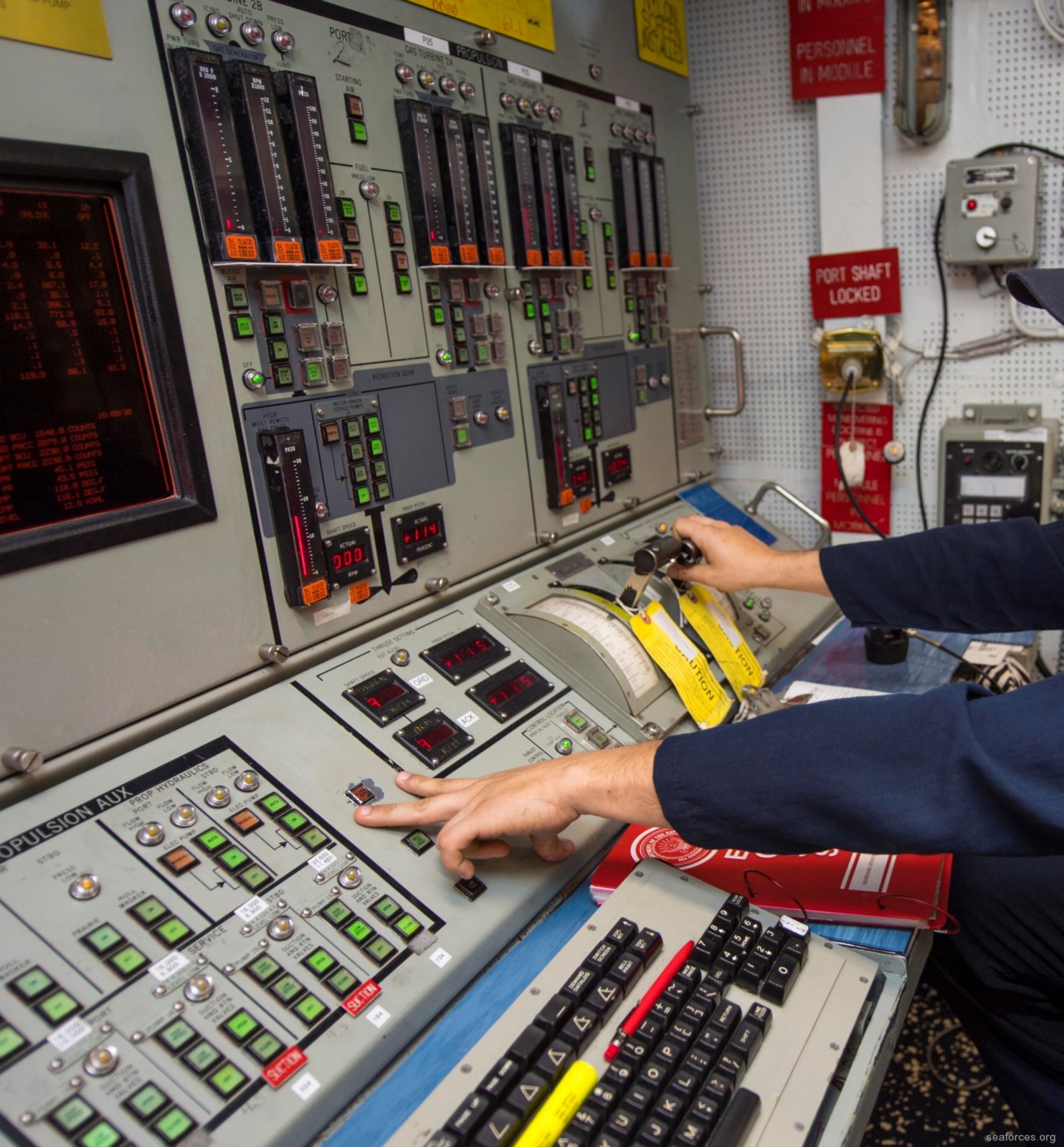 propulsion auxiliary control console in the central control station - Aegean Sea - January 2018 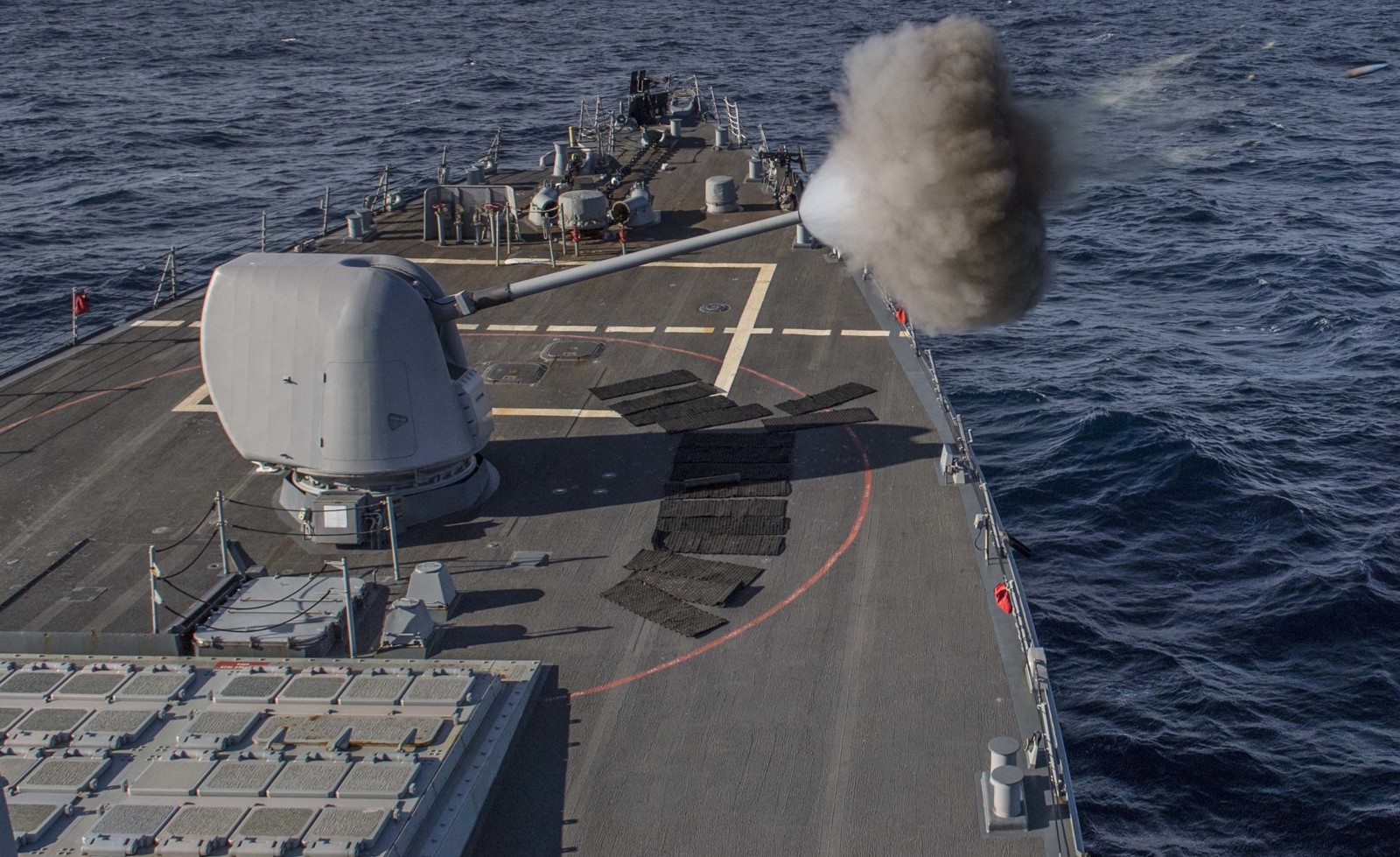 Mk.45 Mod.2 (5"/54-caliber) gun fire exercise - Mediterranean Sea - December 2017 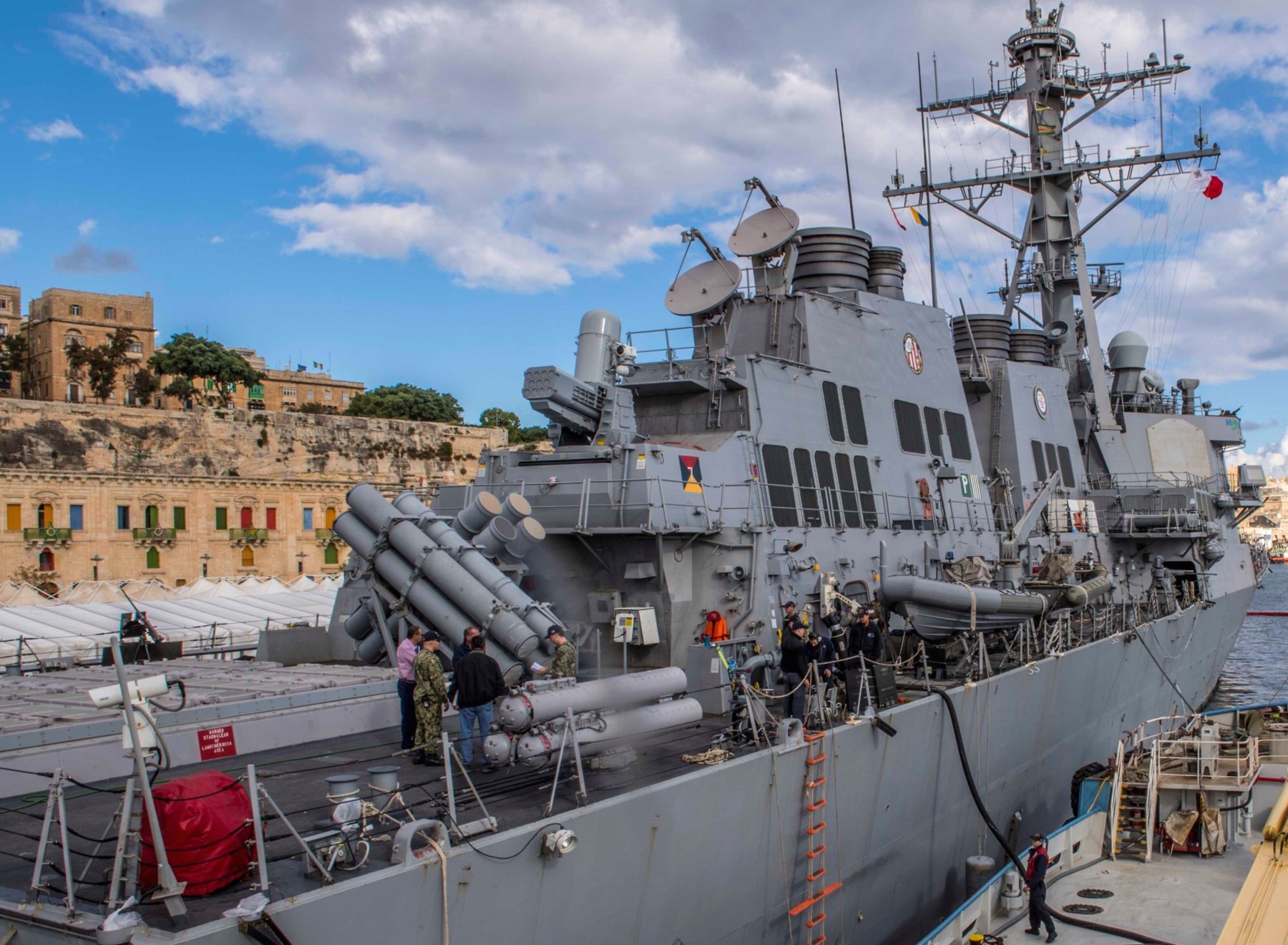 Valletta, Malta - December 2017 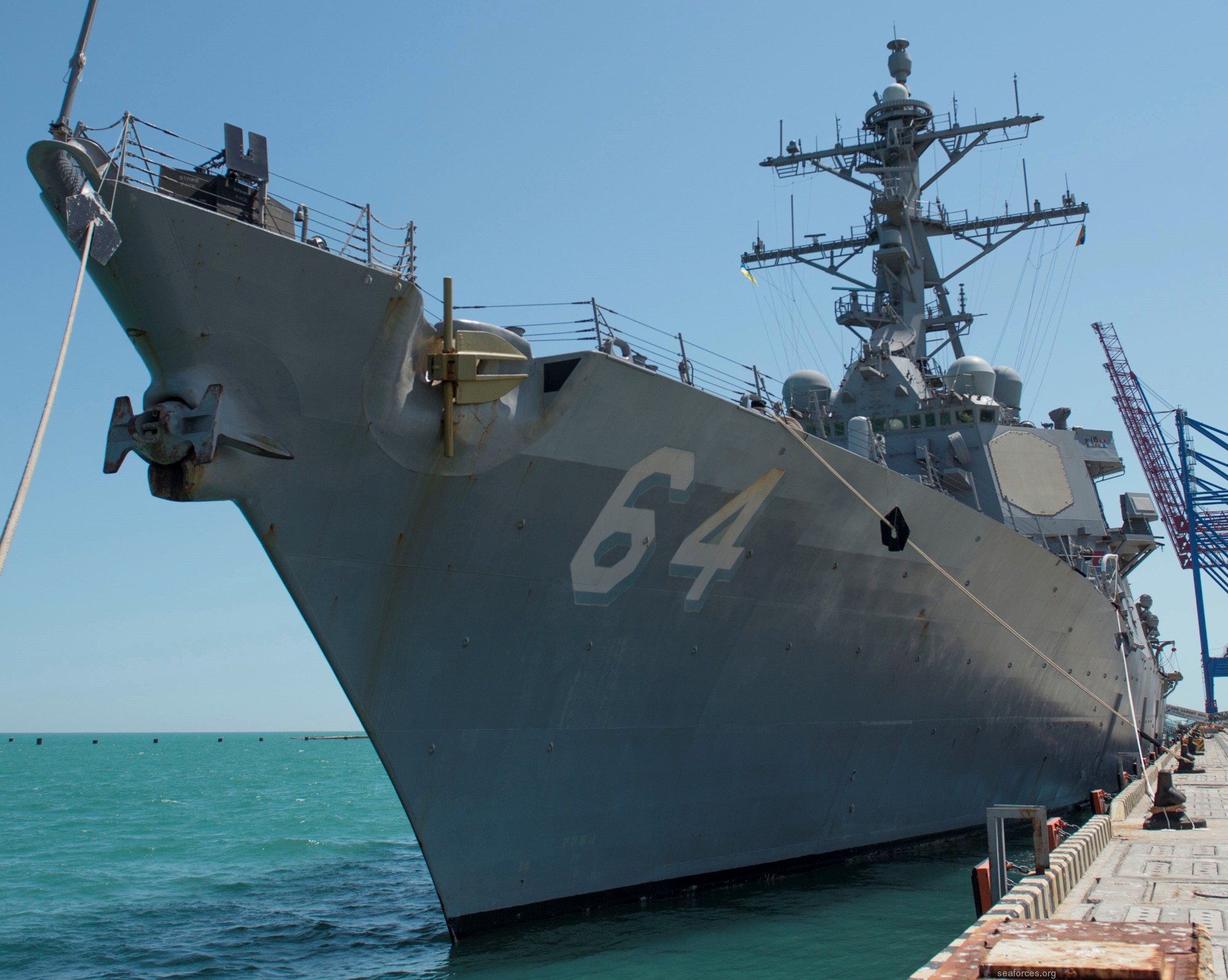 Odessa, Ukraine - July 2017 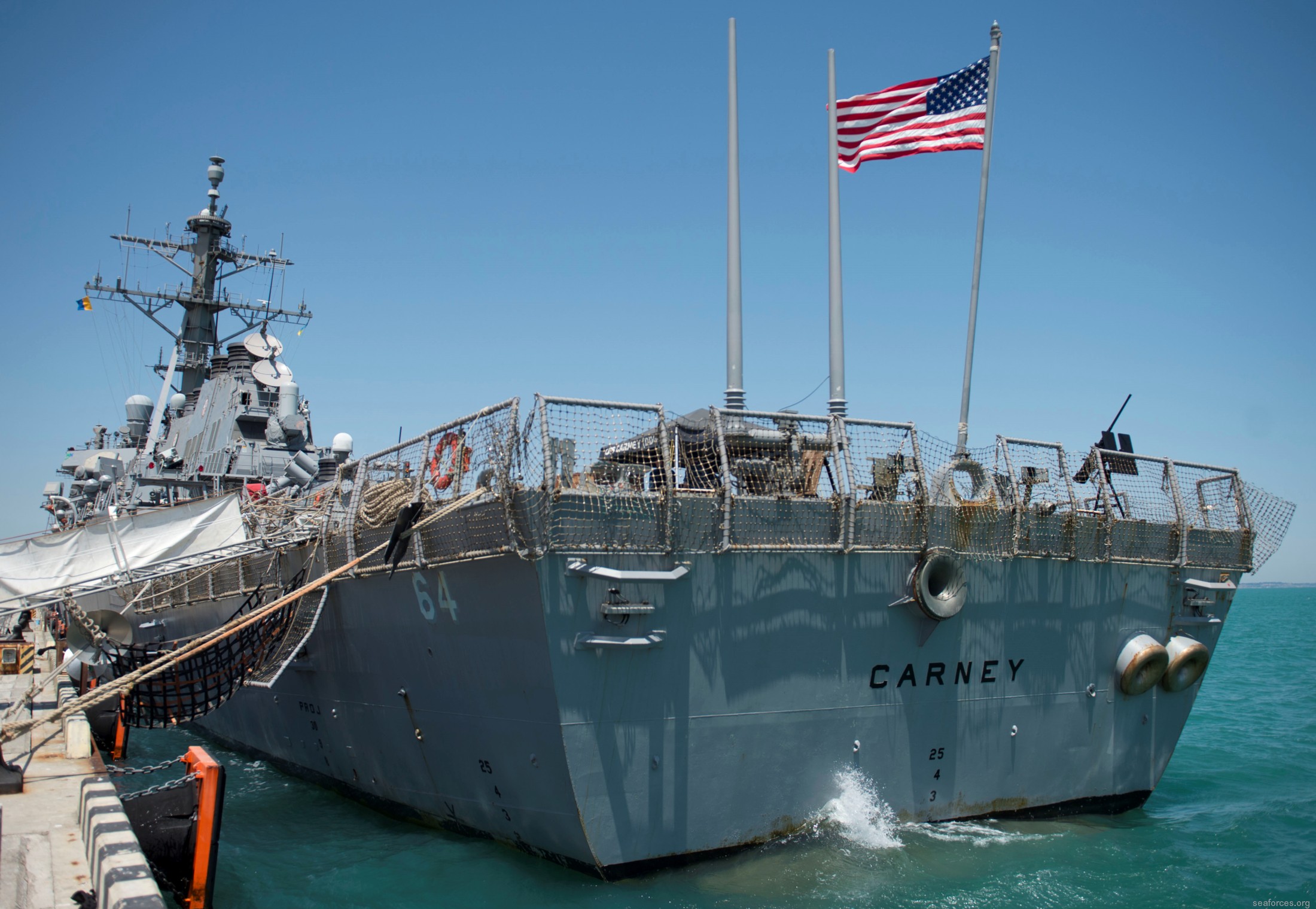 Odessa, Ukraine - July 2017  Odessa, Ukraine - July 2017 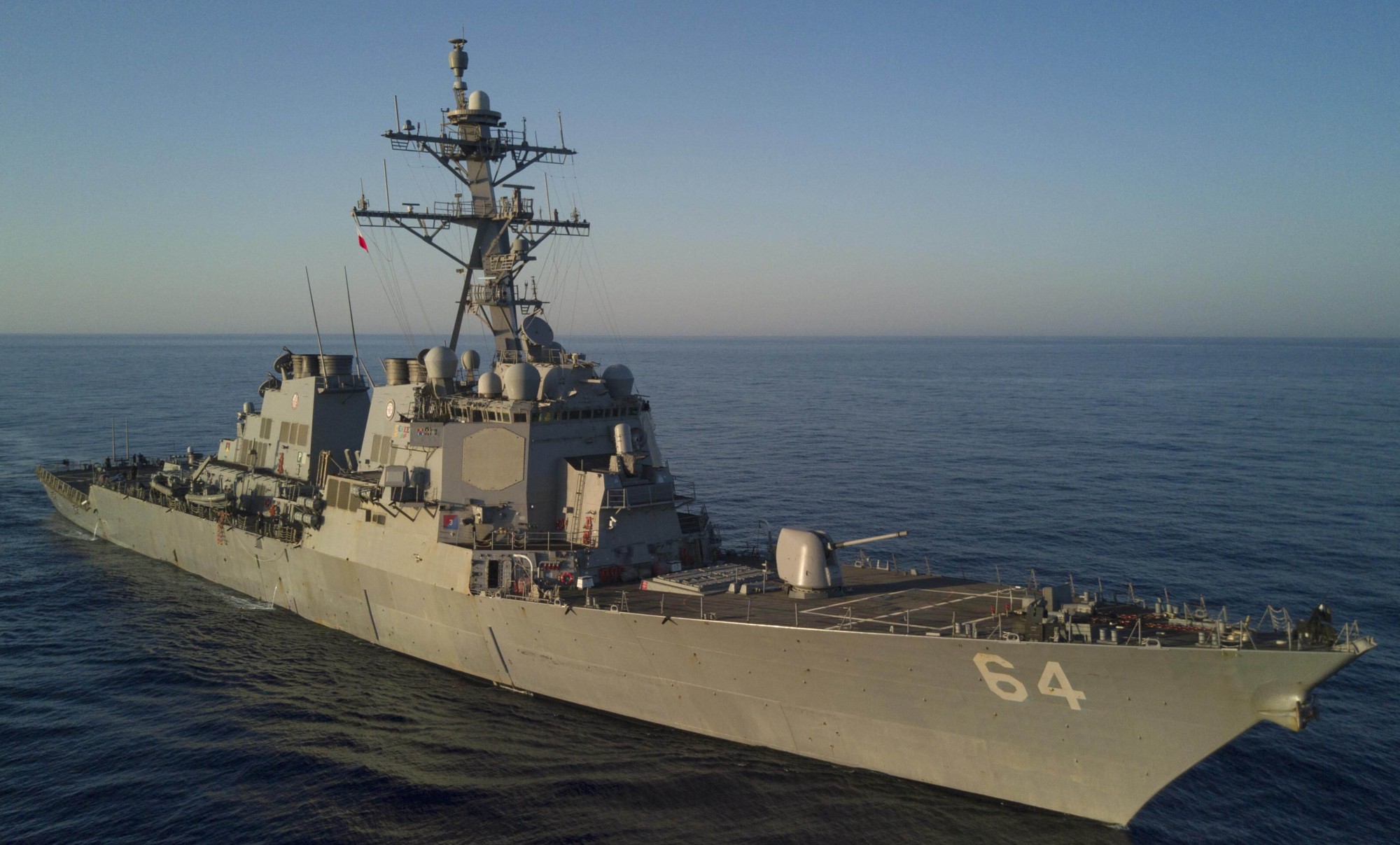 Mediterranean Sea - July 2017 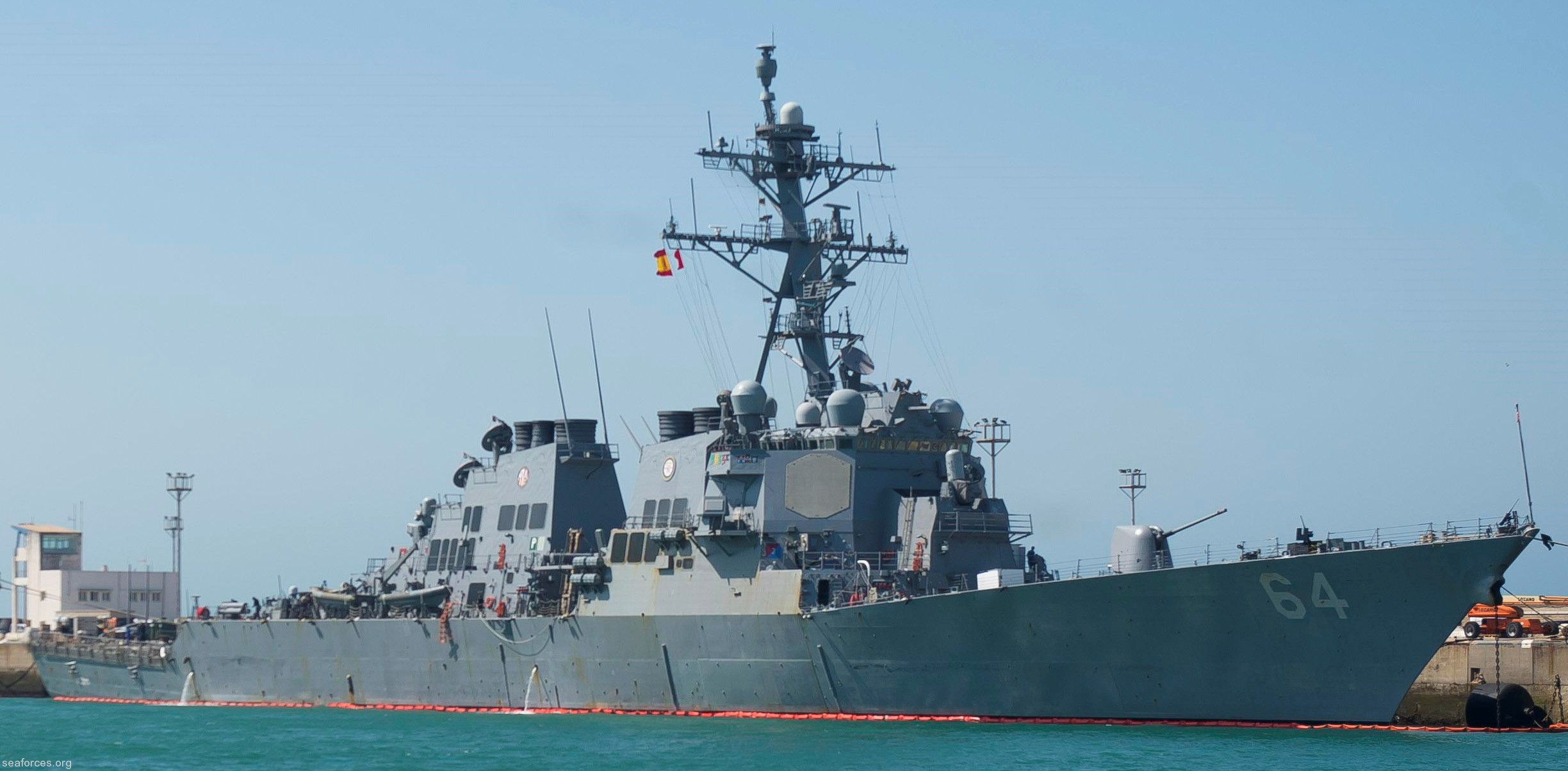 Naval Station Rota, Spain - June 2017 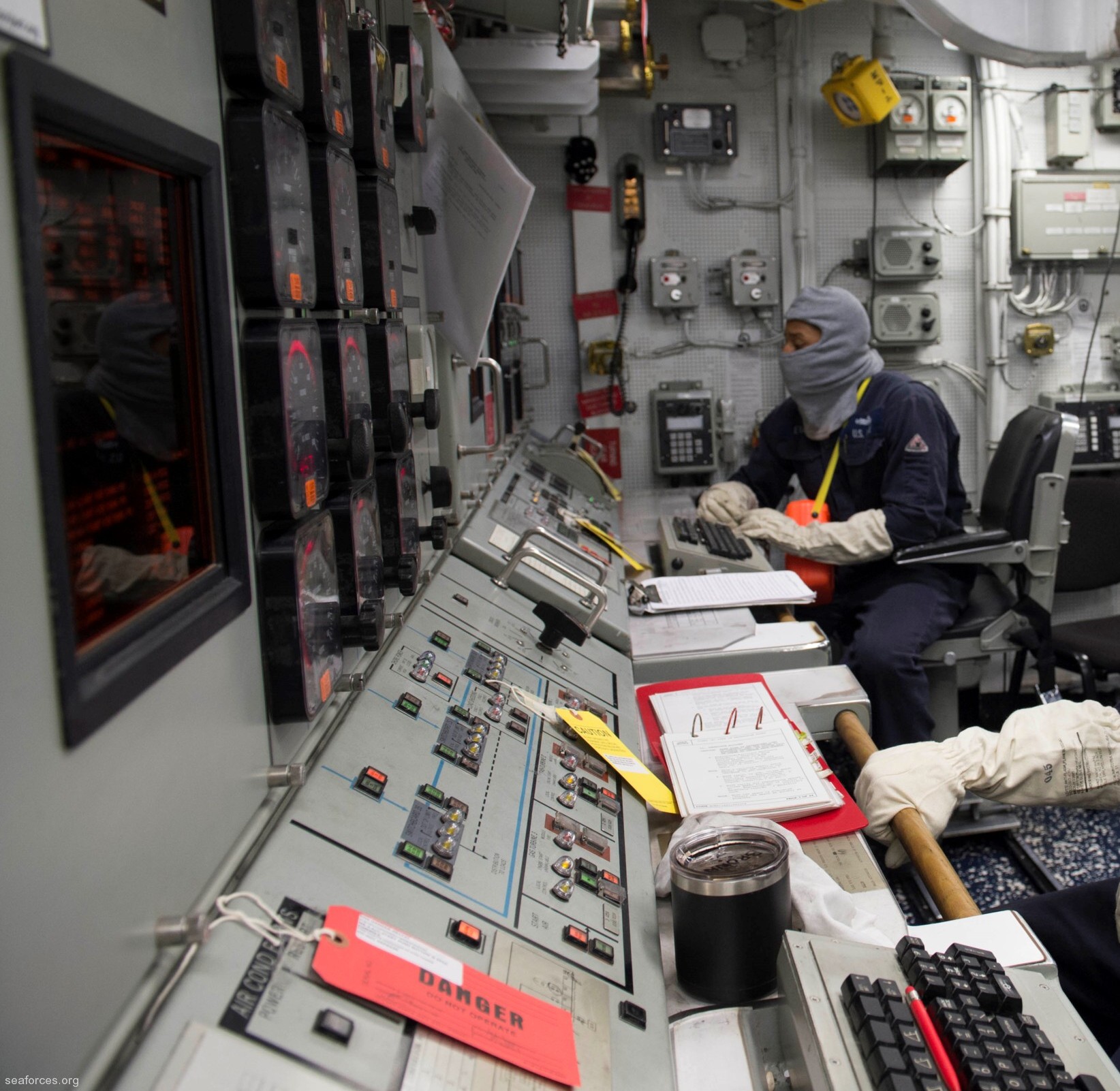 central control station - Baltic Sea - May 2017 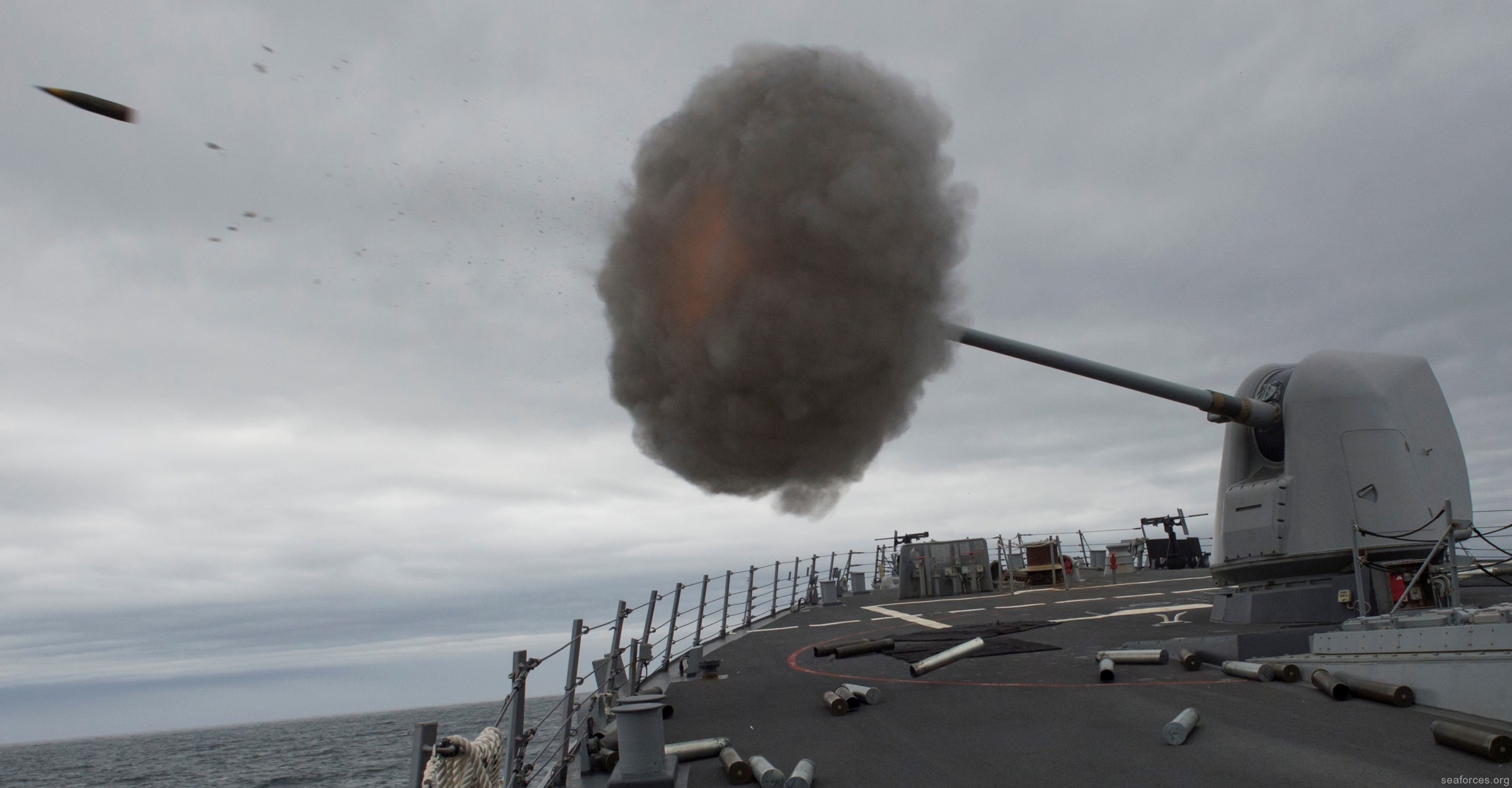 Mk.45 Mod.2 (5"/54-caliber) gun fire exercise - off Scotland - April 2017 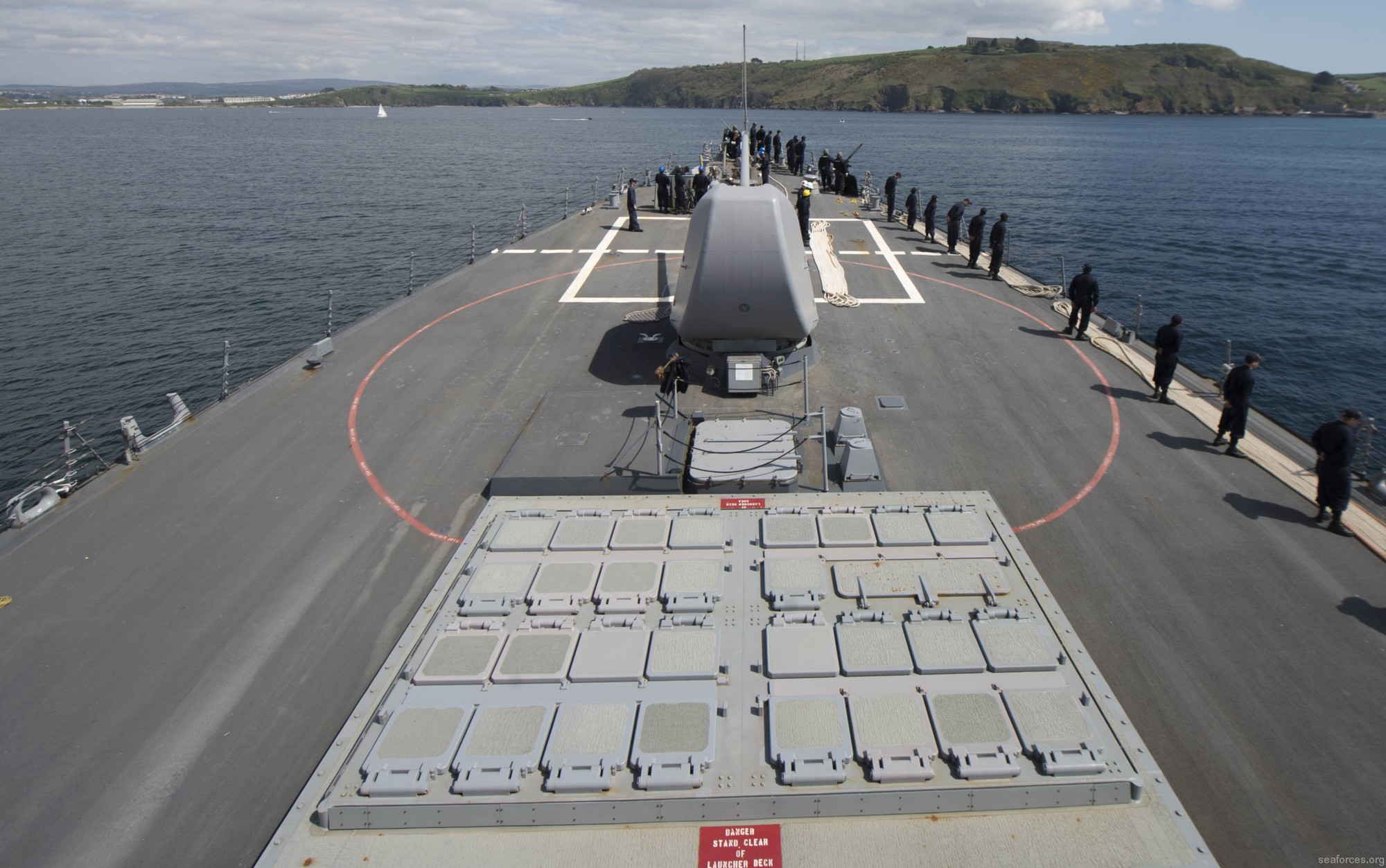 Plymouth, UK - April 2017 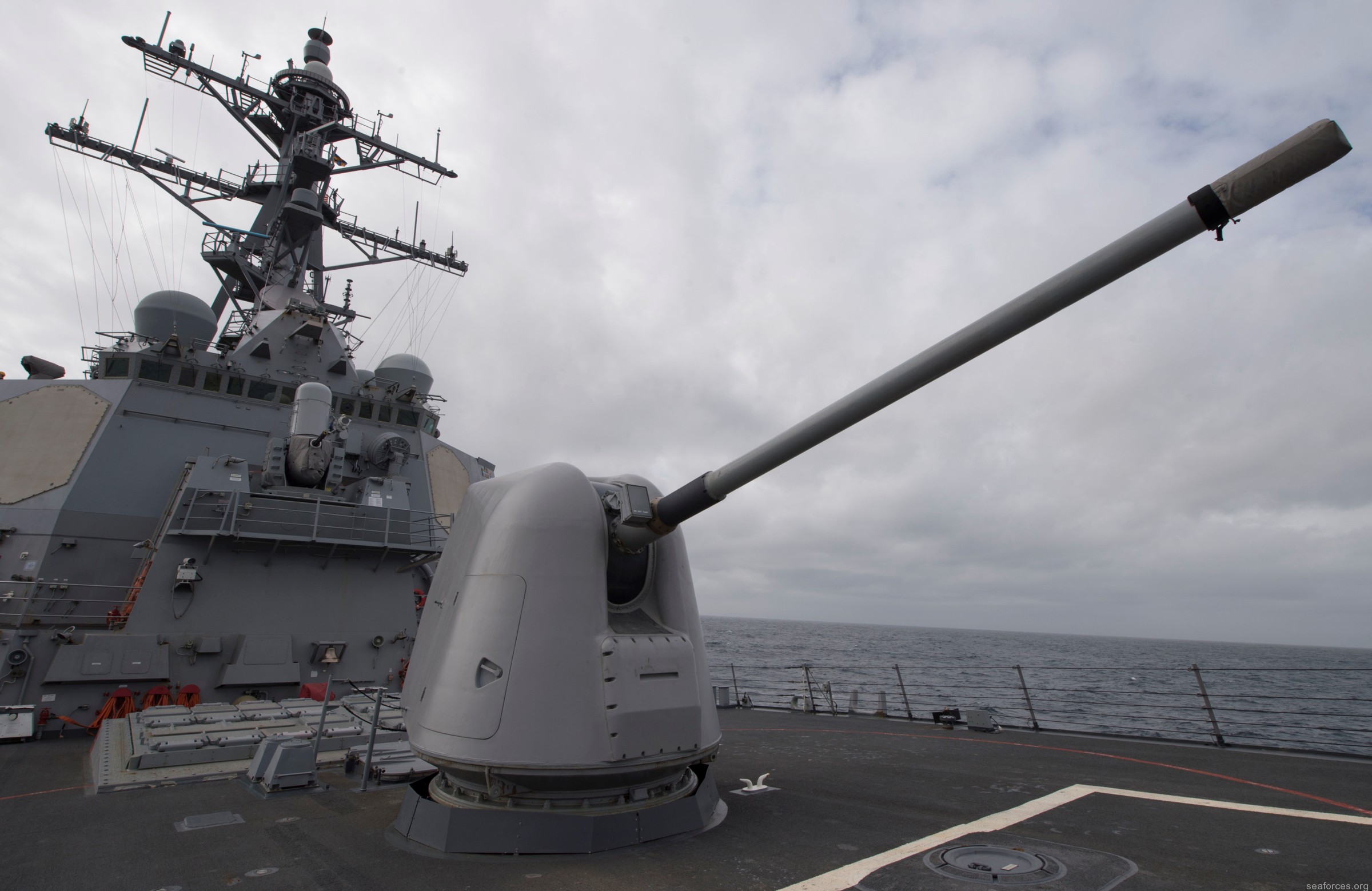 Mk.45 Mod.2 (5"/54-caliber) - March 2017  Naval Station Rota, Spain - February 2017 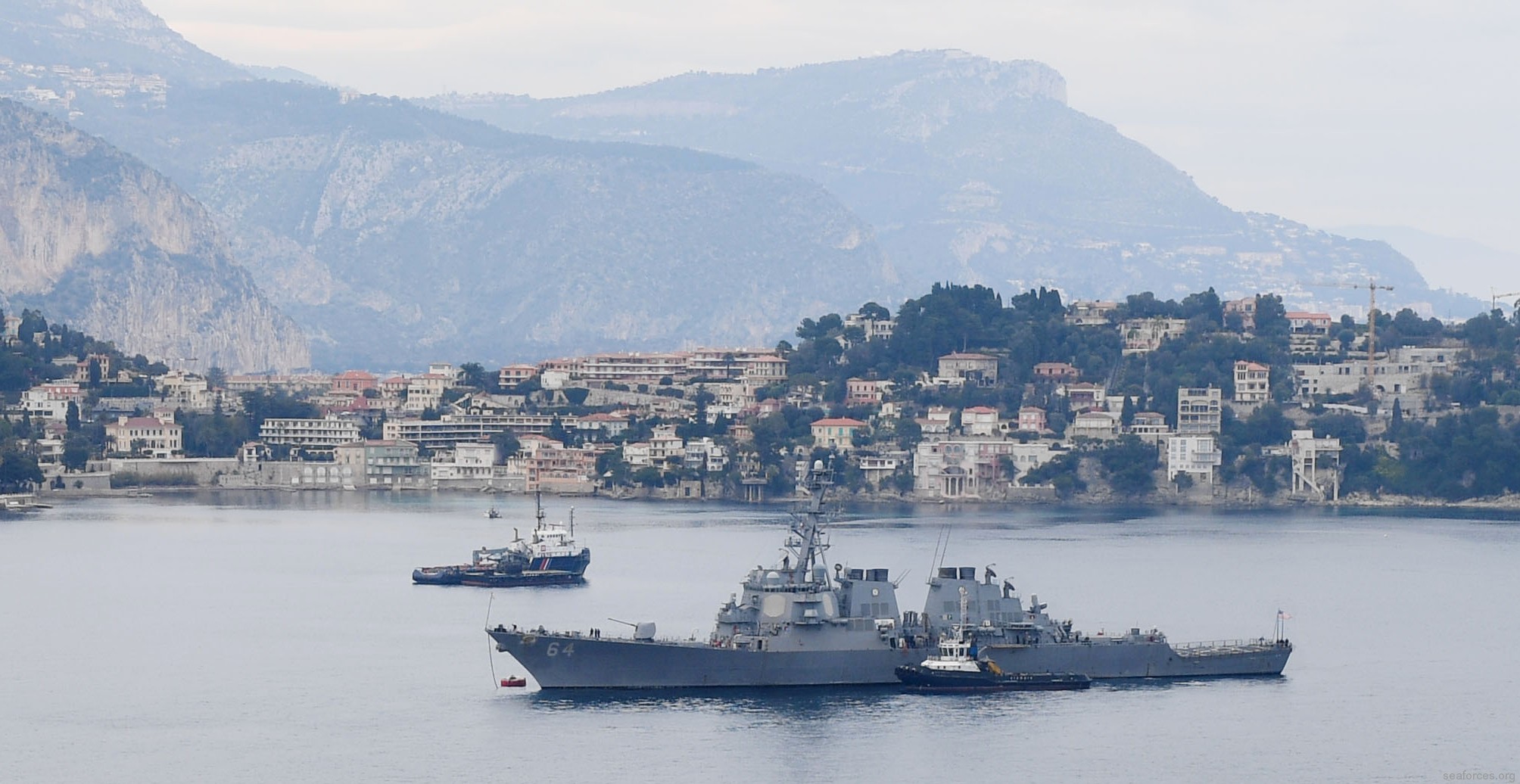 Villefranche sur Mer, France - January 2017 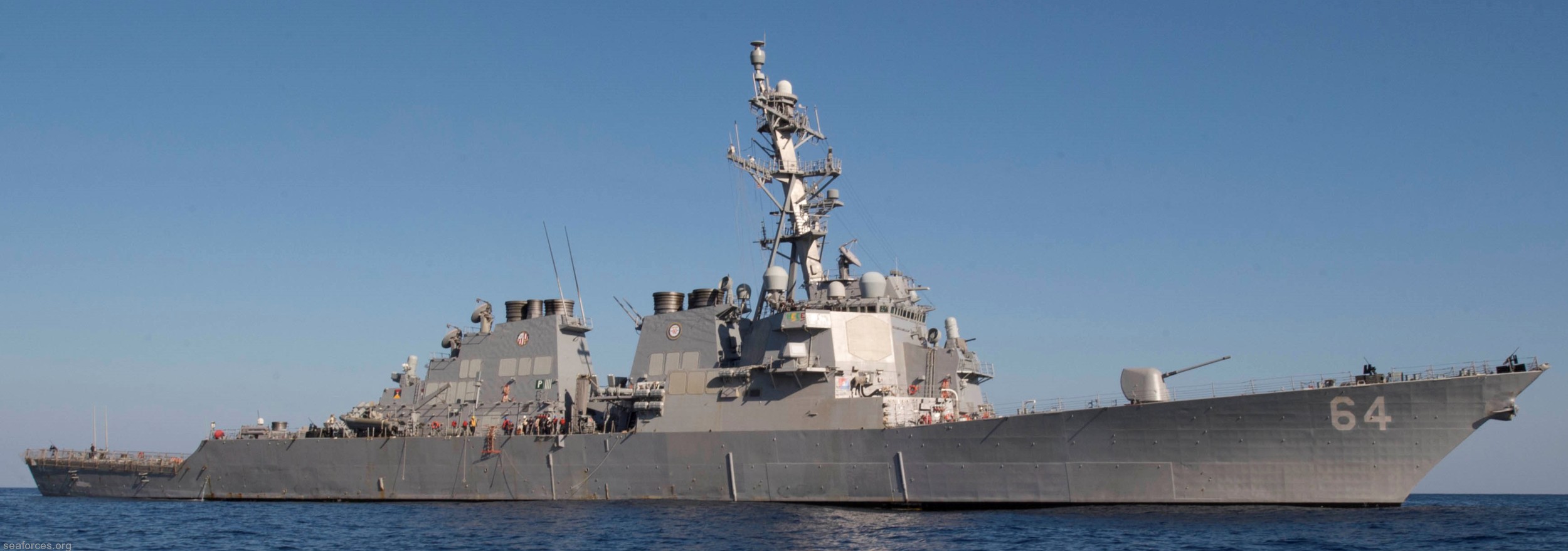 Mediterranean Sea - November 2016 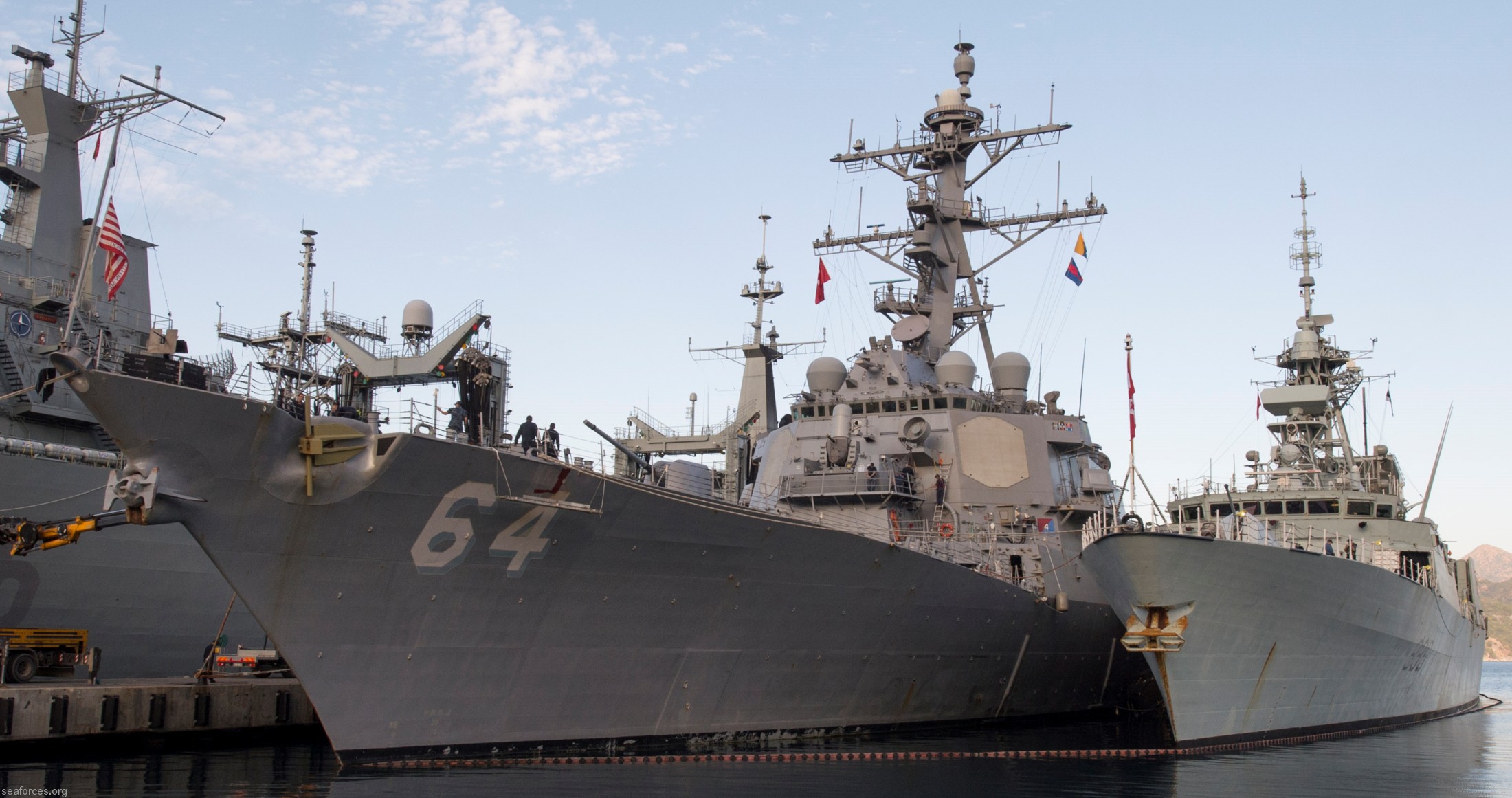 Aksaz, Turkey - November 2016 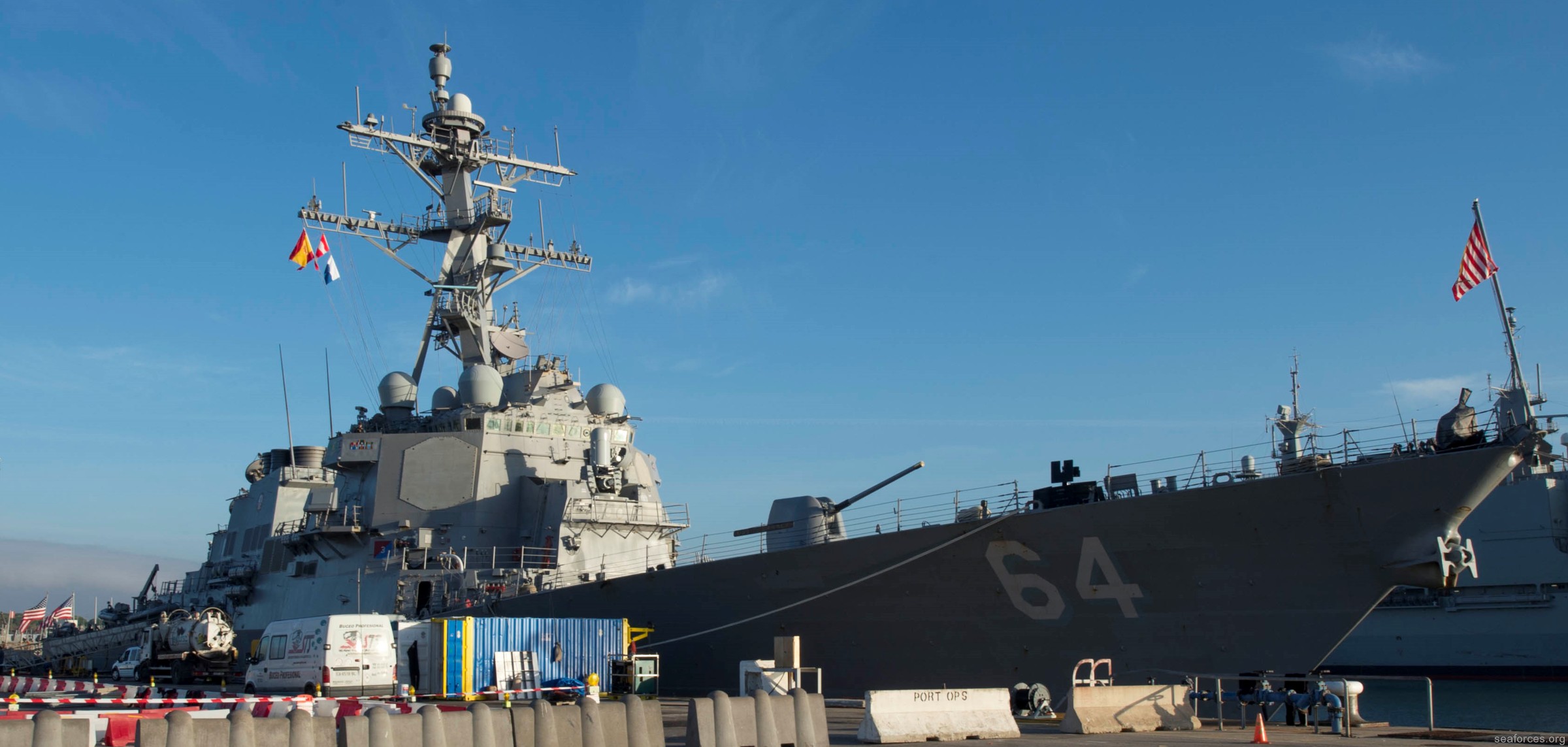 Naval Station Rota, Spain - October 2016 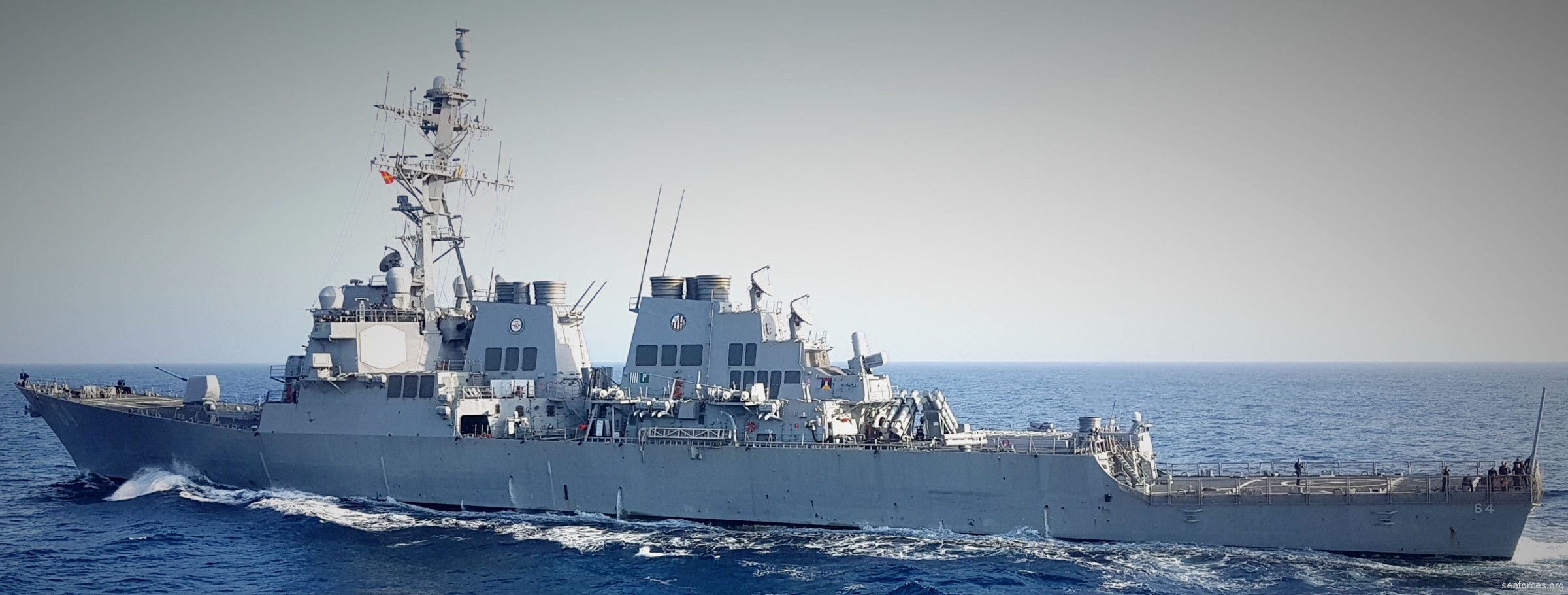 Mediterranean Sea - October 2016 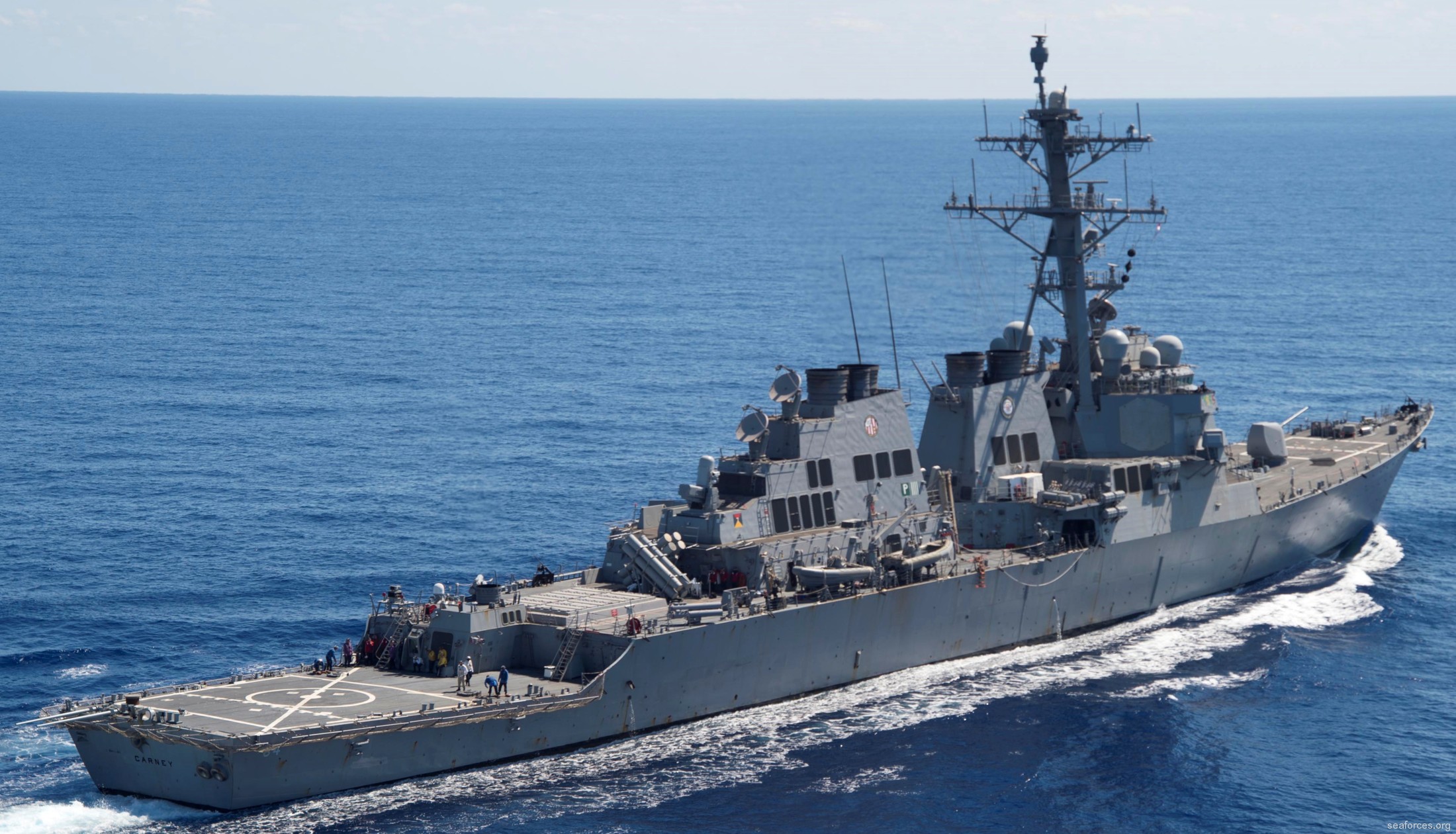 Mediterranean Sea - September 2016 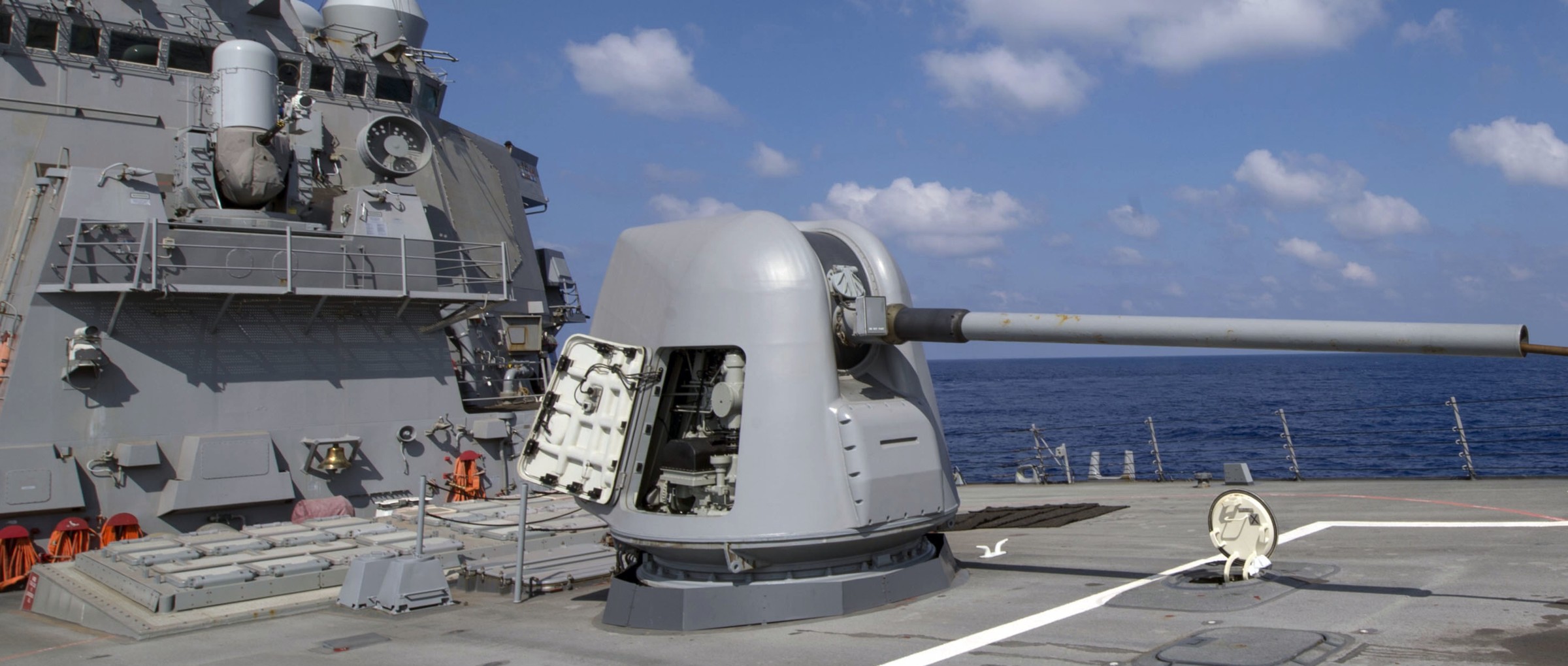 Mk.45 gun maintenance - Mediterranean Sea - September 2016 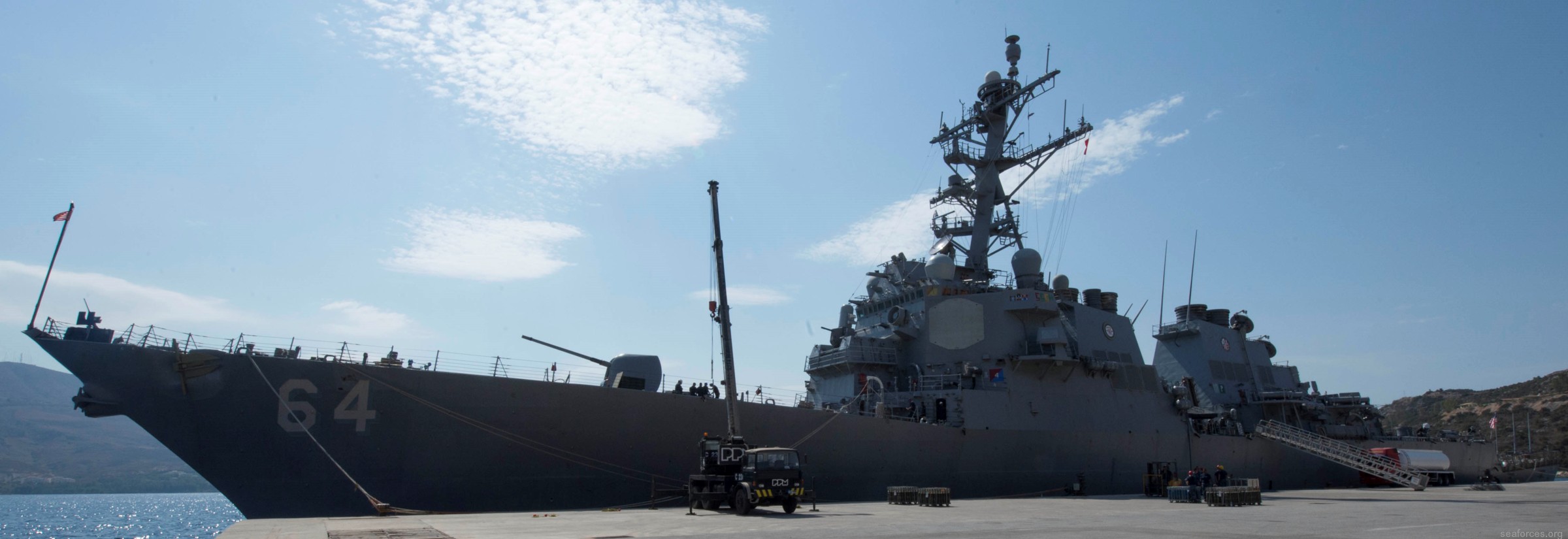 Souda Bay, Crete, Greece - September 2016 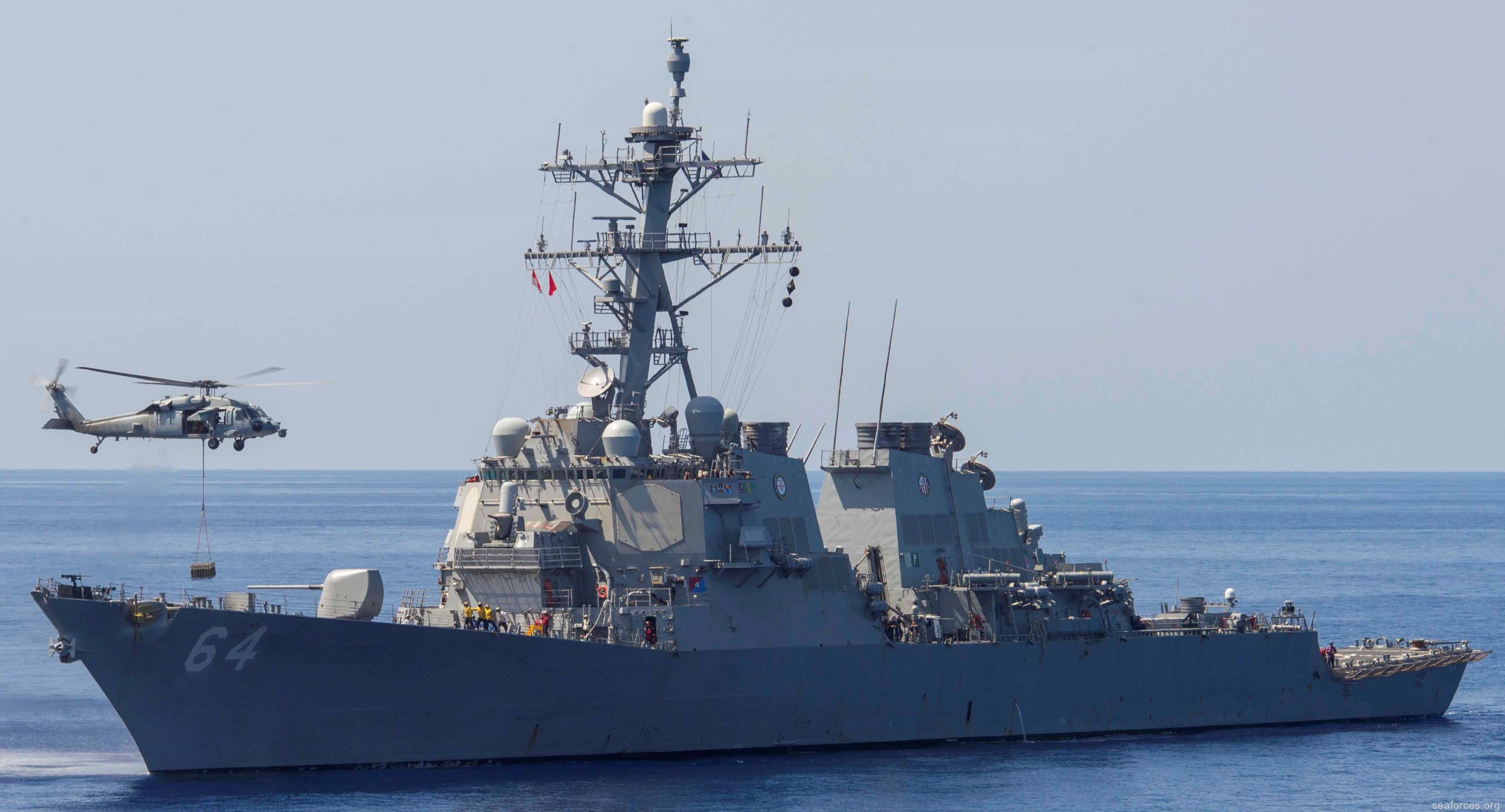 Mediterranean Sea - September 2016 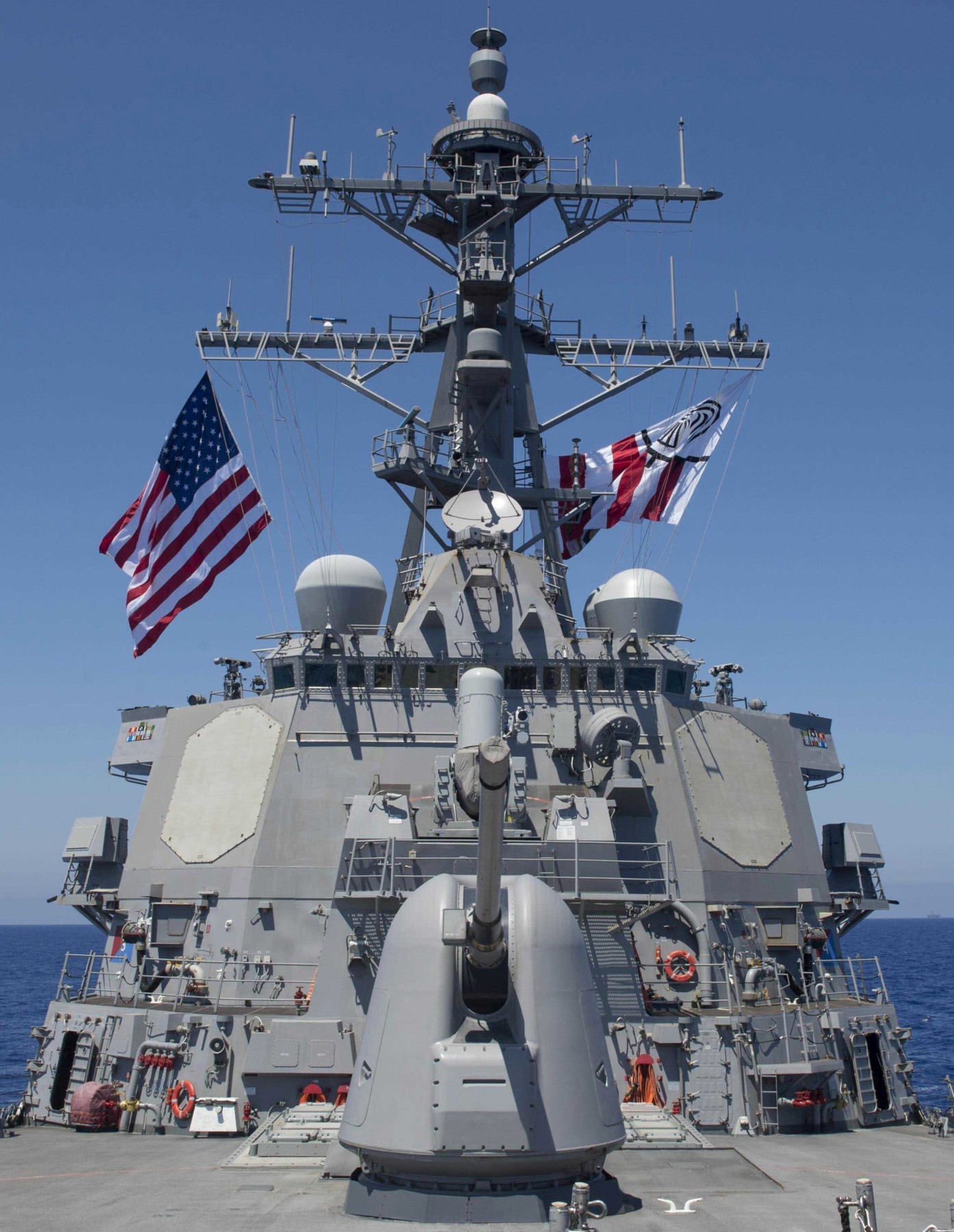 Mediterranean Sea - August 2016  Mediterranean Sea - August 2016  Mk.15 Mod.31 SeaRAM (CIWS) and Mk.141 tube-launcher for RGM-84 Harpoon SSM - Mediterranean Sea - August 2016 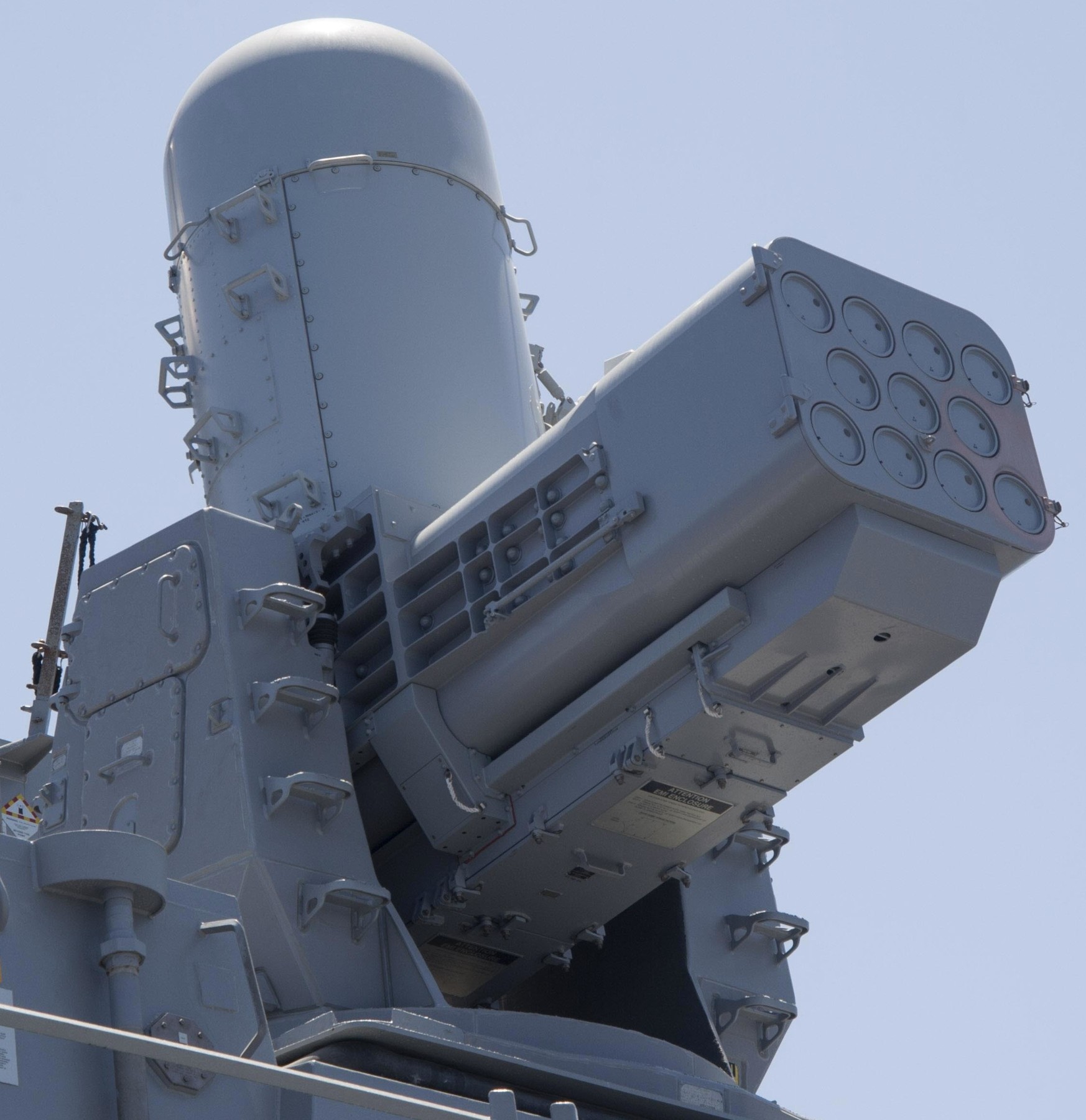 Mk.15 Mod.31 SeaRAM close-in weapon system (CIWS) - Mediterranean Sea - August 2016 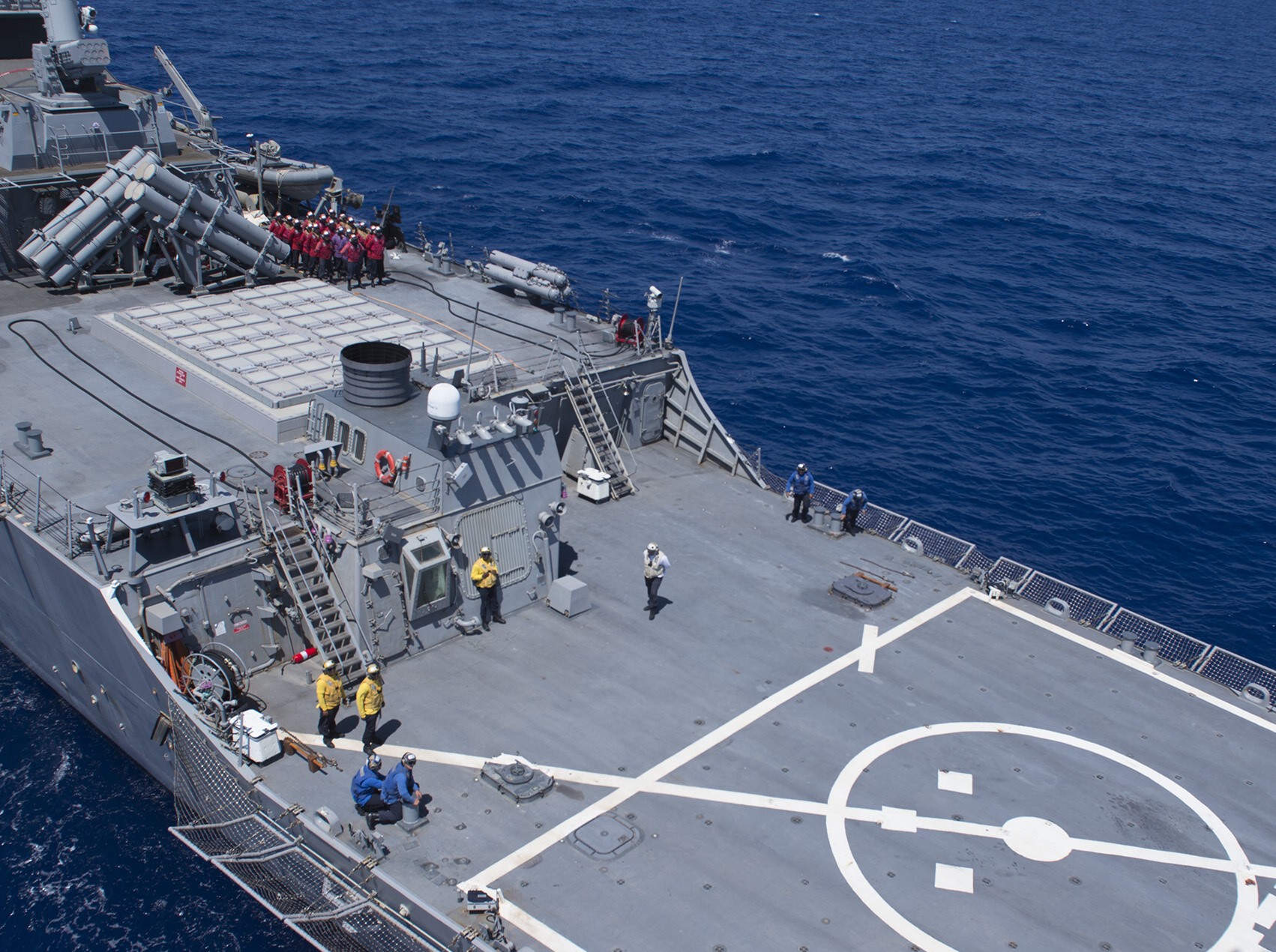 Mediterranean Sea - July 2016 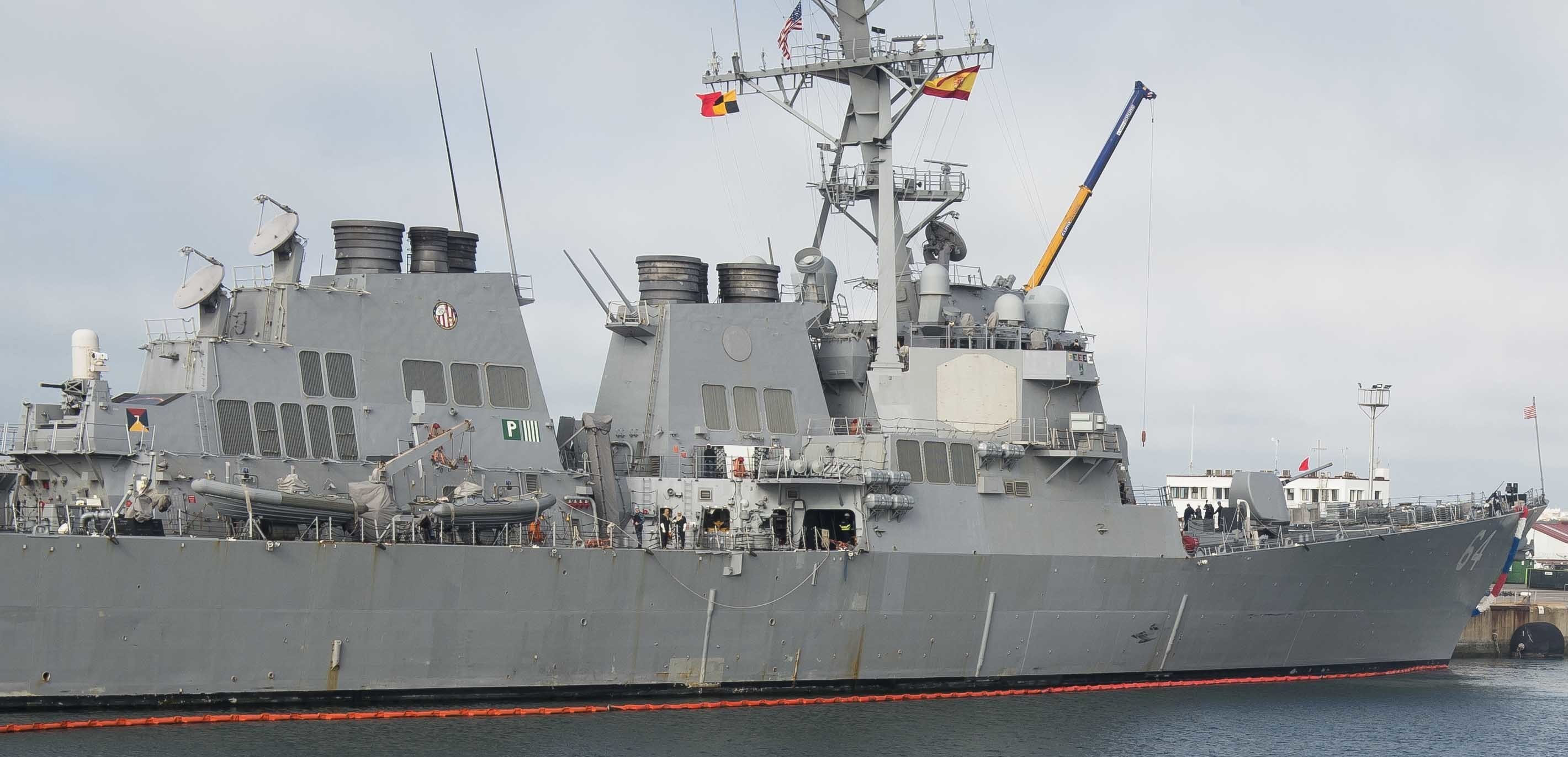 Naval Station Rota, Spain - March 2016  Naval Support Acvtivity Souda Bay, Crete, Greece - February 2016 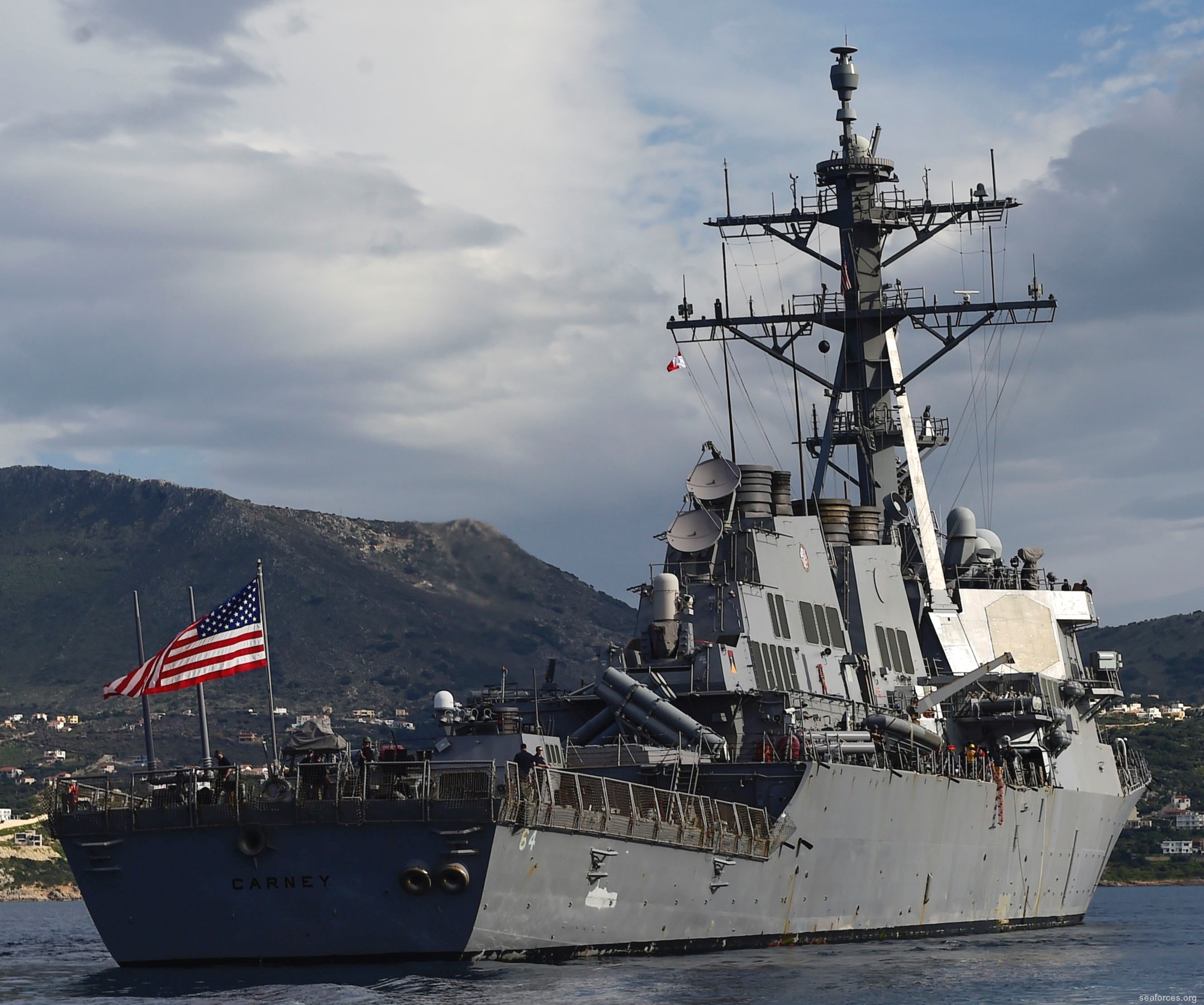 Naval Support Acvtivity Souda Bay, Crete, Greece - February 2016 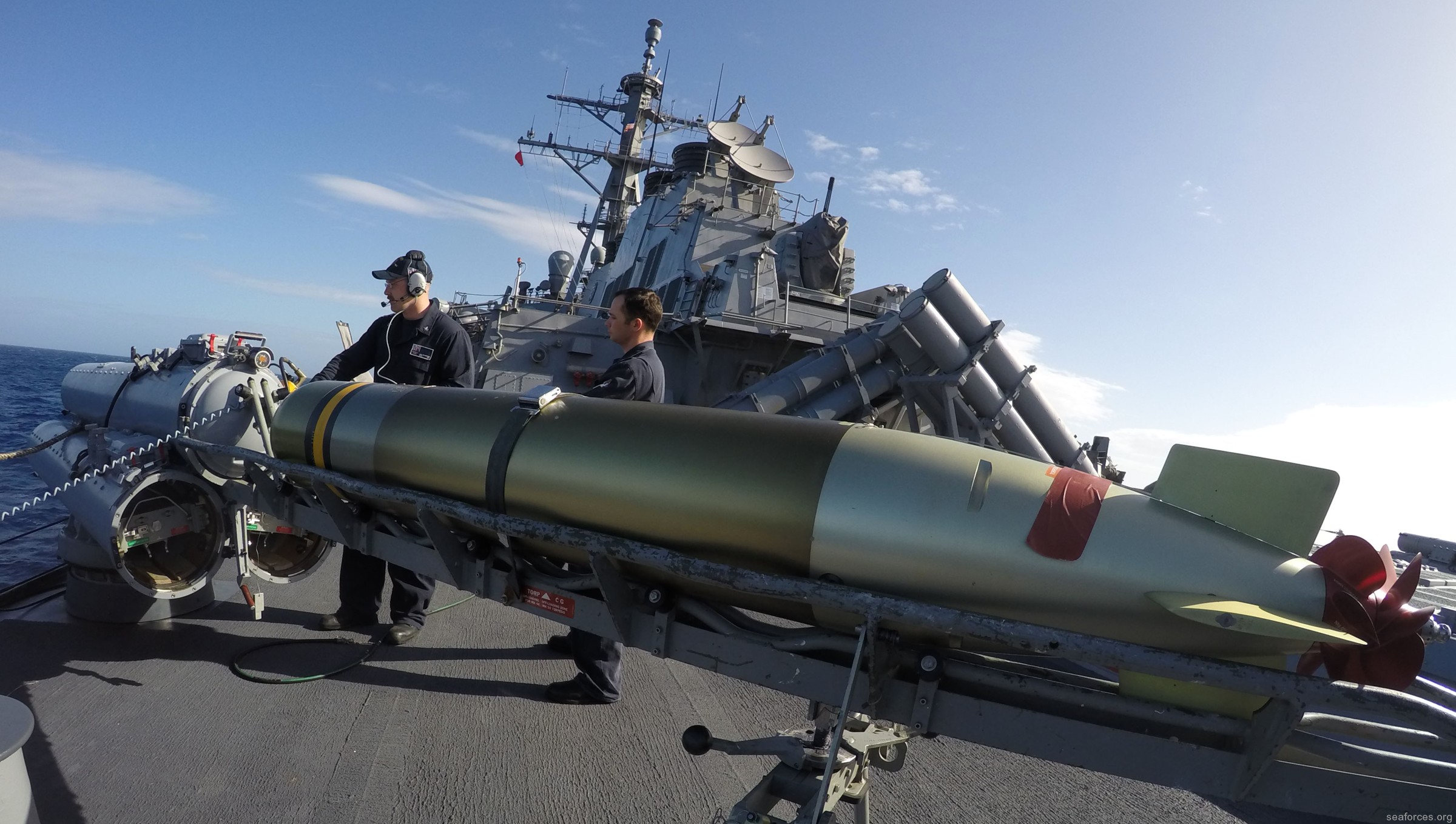 a Mk.46 torpedo was loaded into the Mk.32 torpedo tubes - February 2016  Souda Bay, Crete, Greece - February 2016 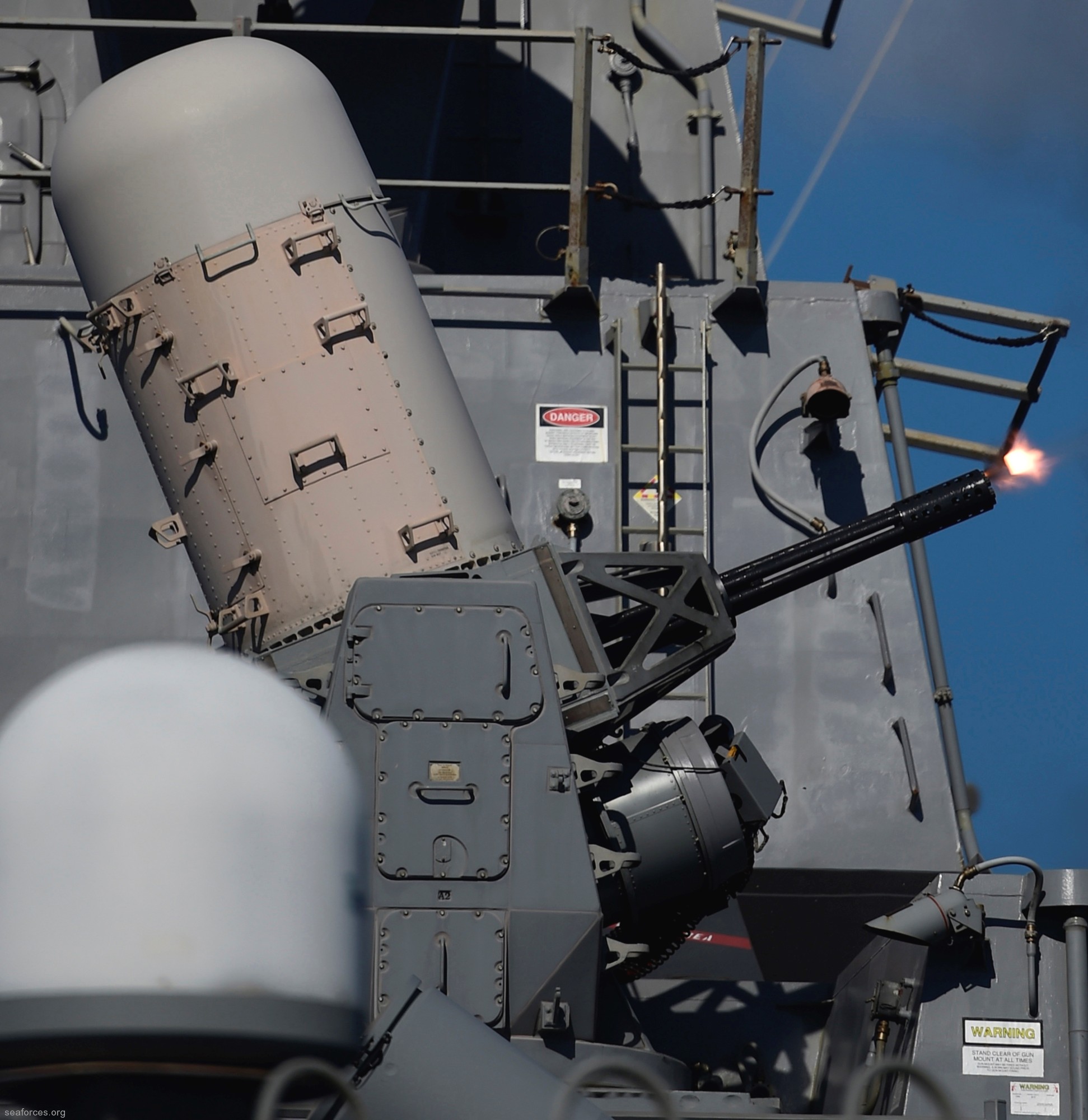 Mk.15 Phalanx CIWS fire exercise - Mediterranean Sea - January 2016 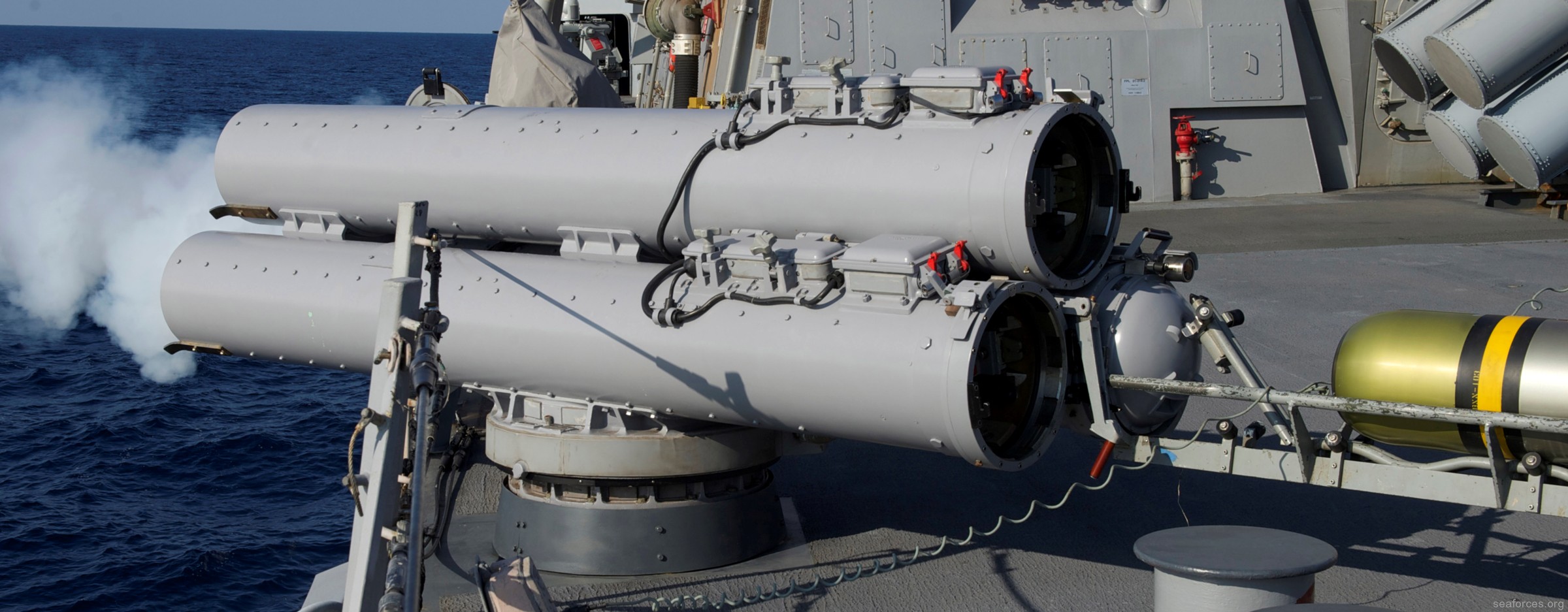 Mk.32 surface vessel torpedo tubes (SVTT) training - Mediterranean Sea - December 2015 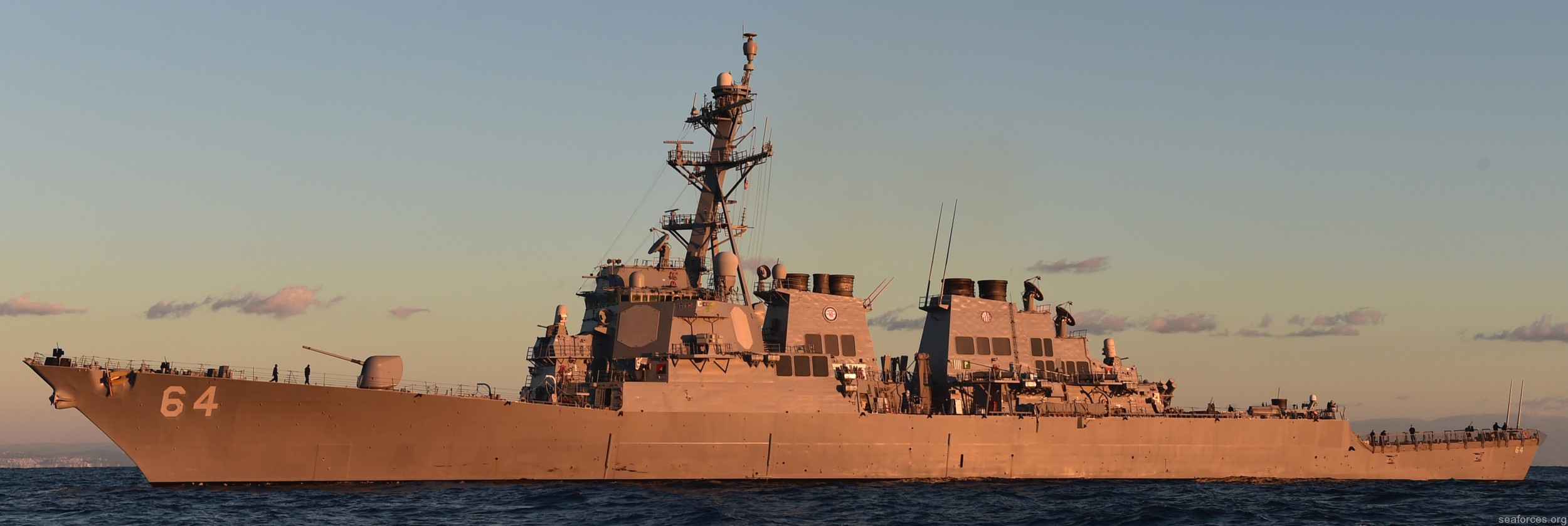 Mediterranean Sea - December 2015 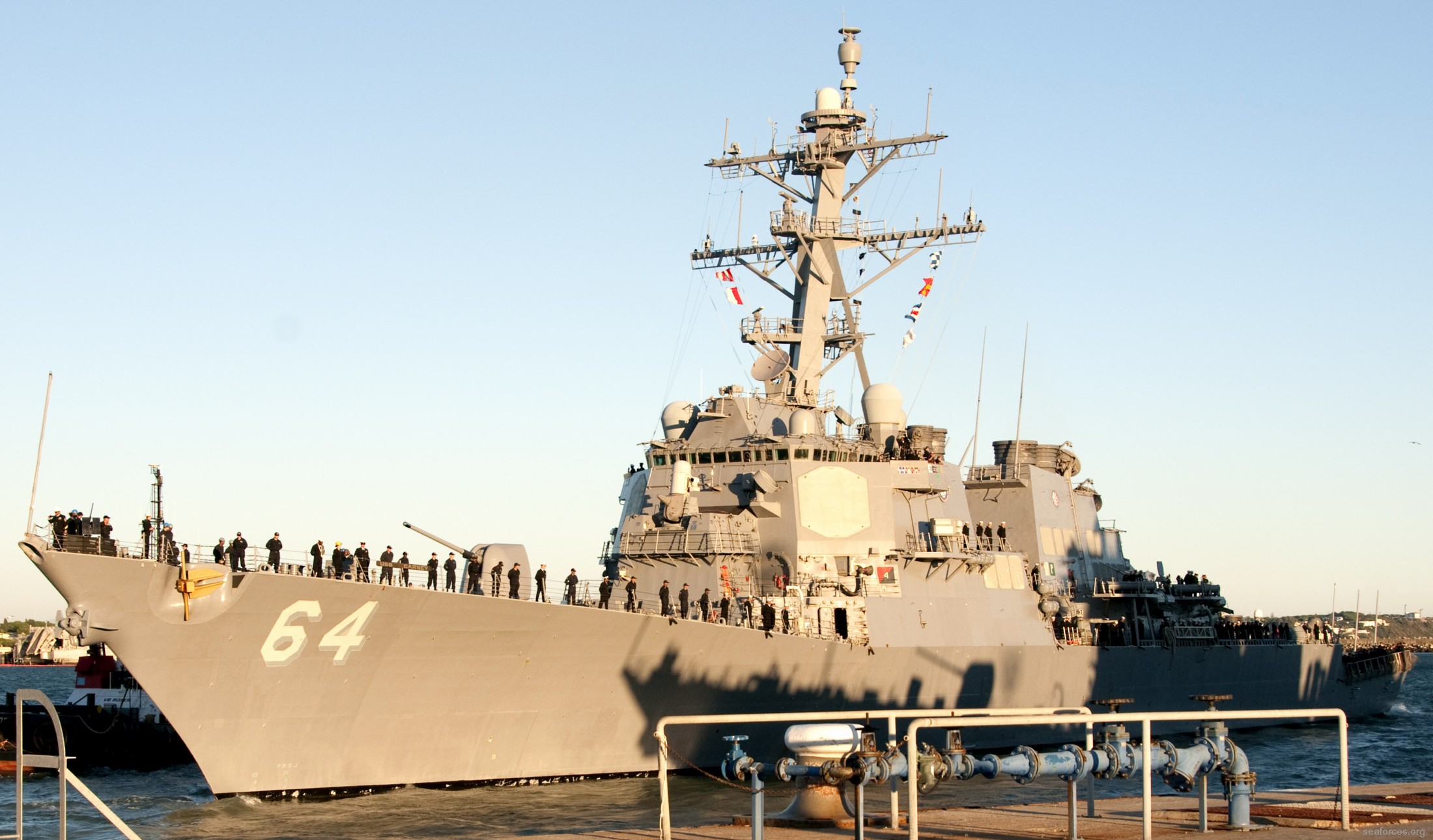 Naval Station Rota, Spain - November 2015 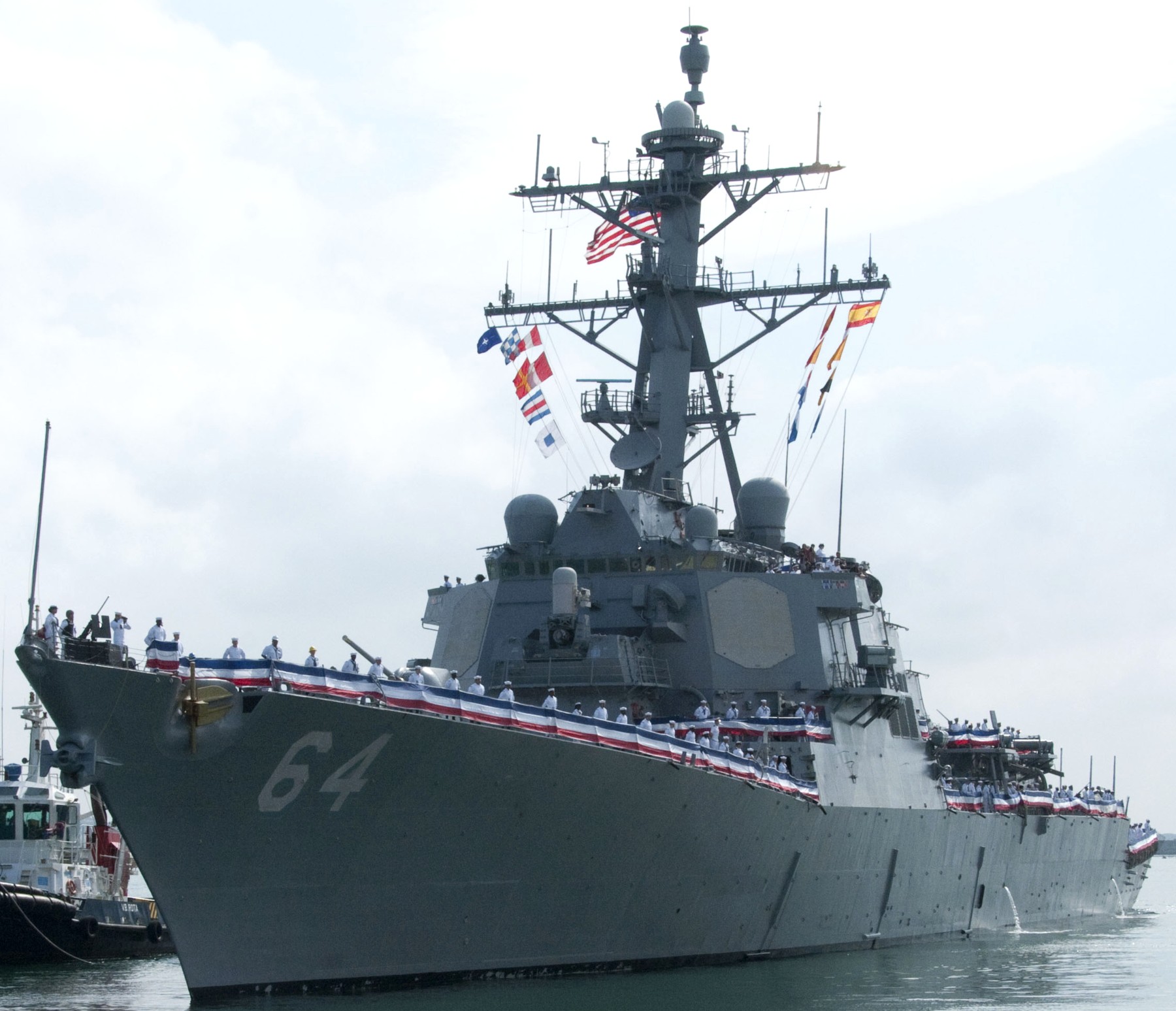 arriving at Naval Station Rota, Spain - September 25, 2015 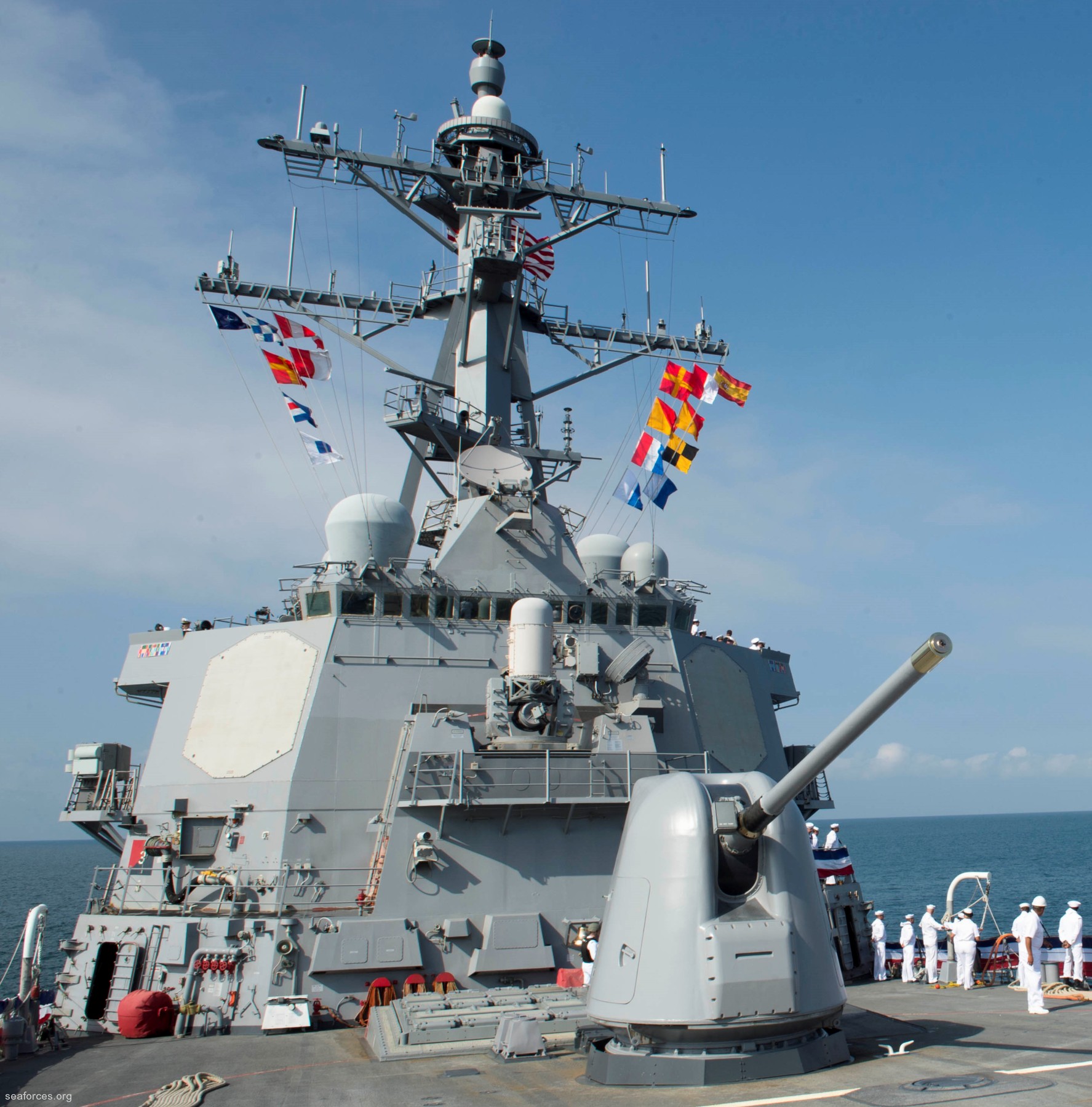 arriving at Naval Station Rota, Spain - September 25, 2015 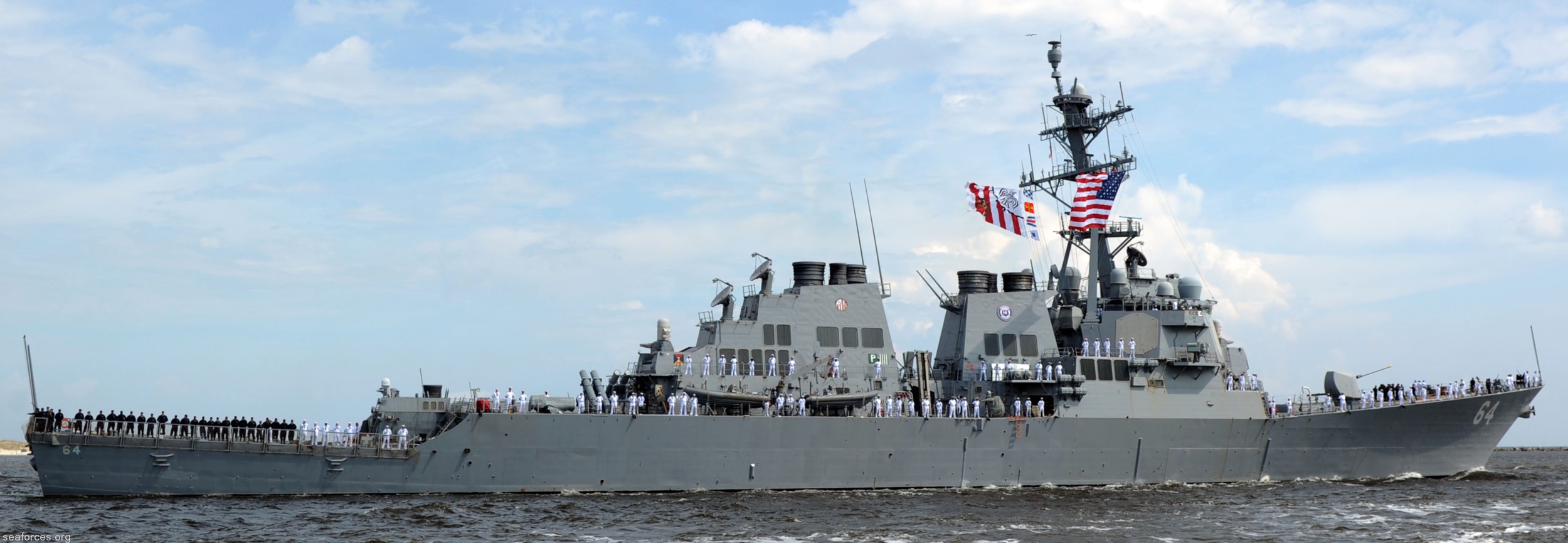 departing Naval Station Mayport, Florida for the new homeport of Rota, Spain - September 6, 2015 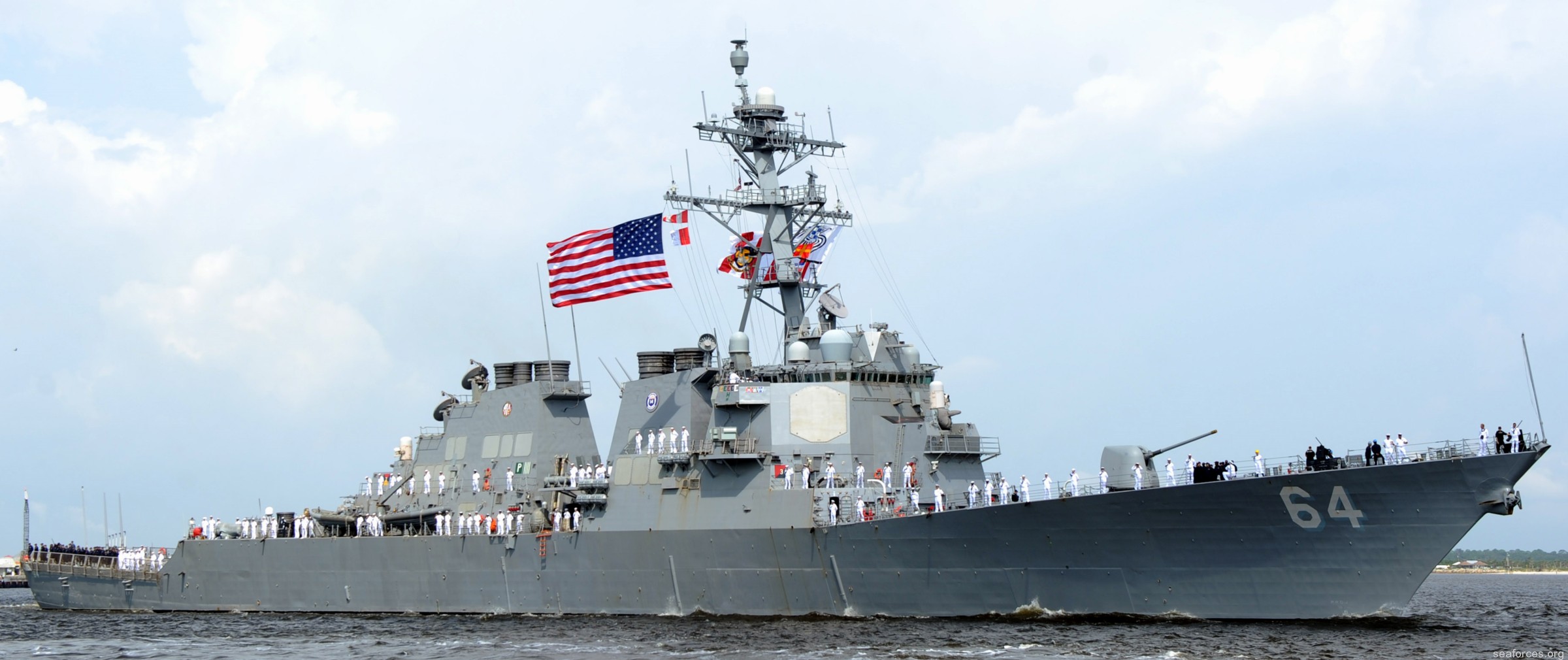 departing Naval Station Mayport, Florida for her new homeport of Rota, Spain - September 6, 2015 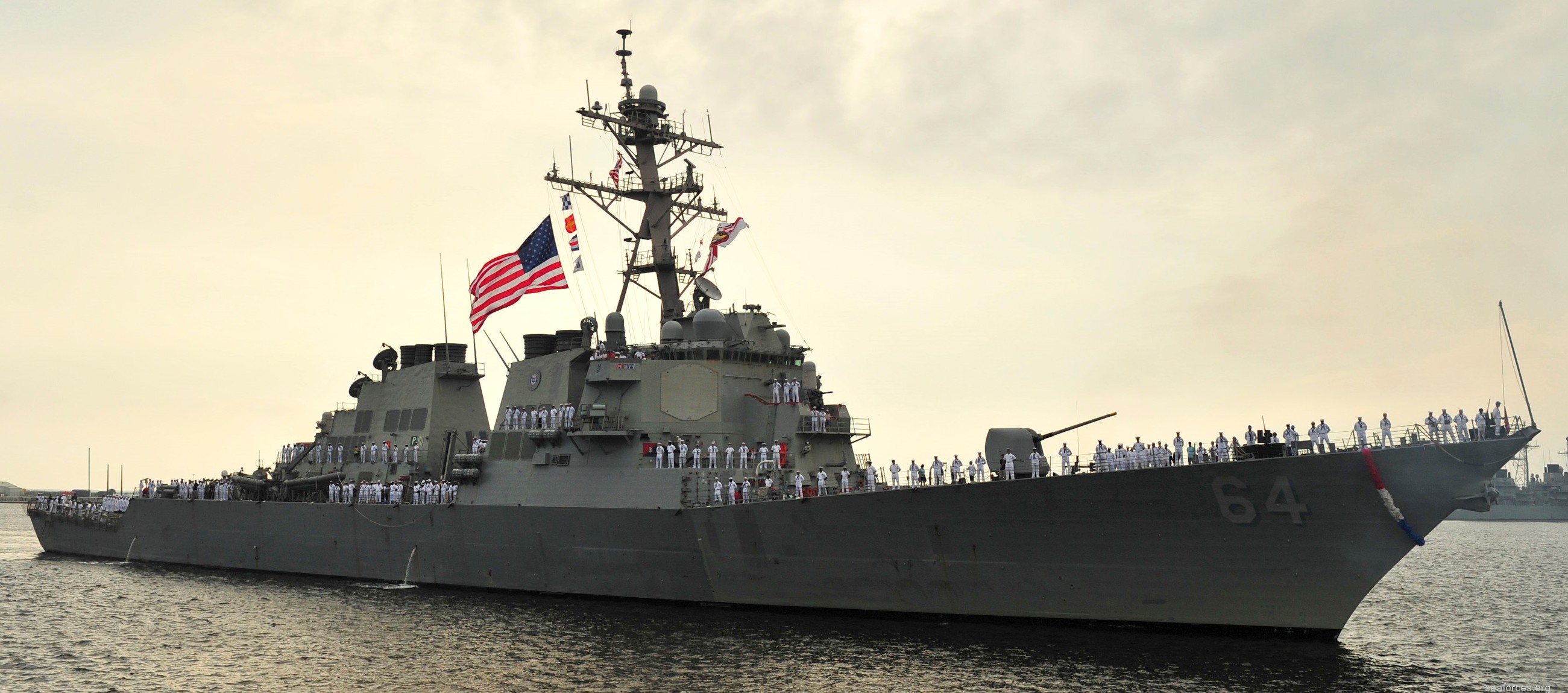 returning to Naval Station Mayport, Florida - May 2014  underway replenishment - Atlantic Ocean - July 2010 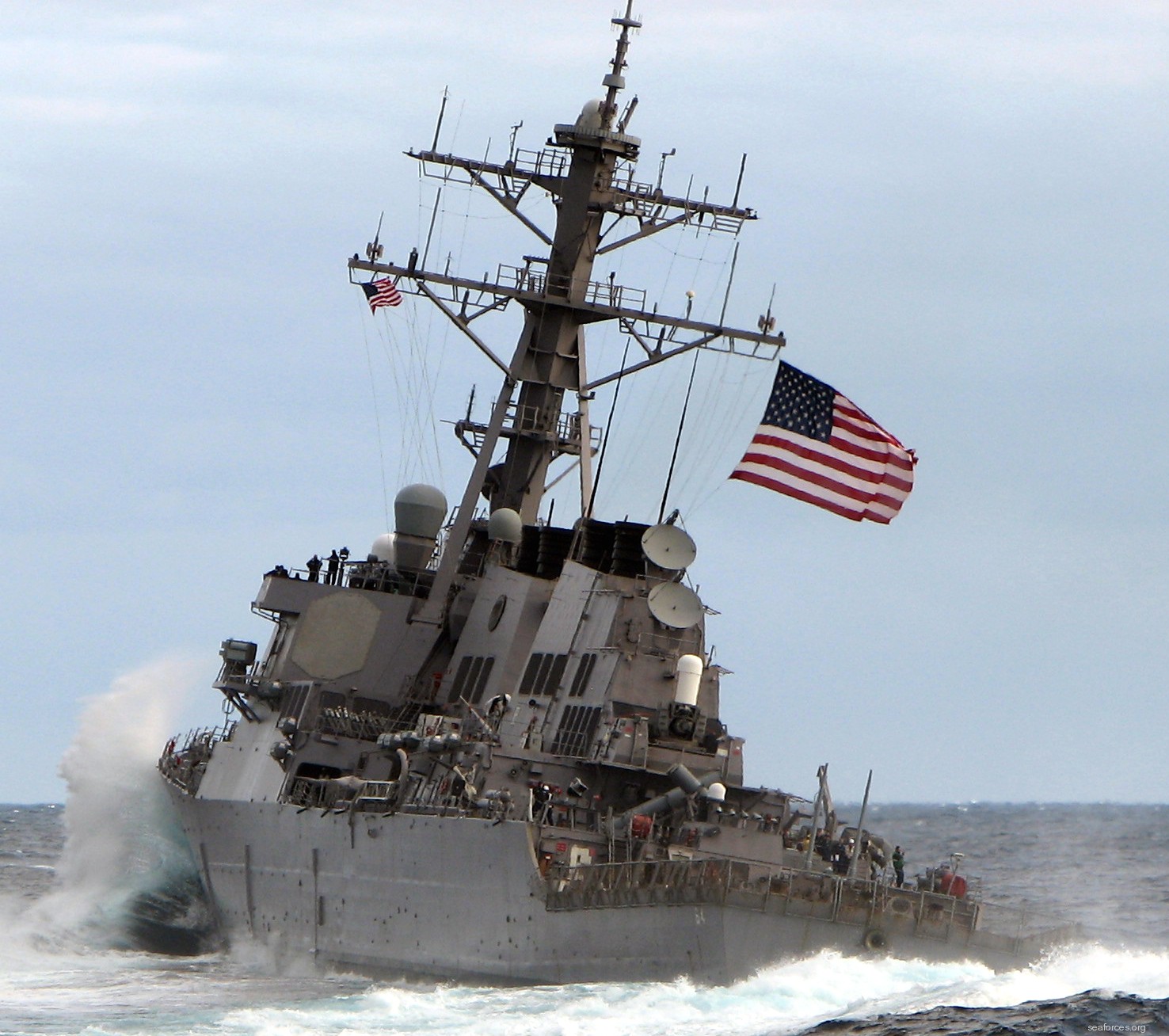 Mediterranean Sea - January 2010 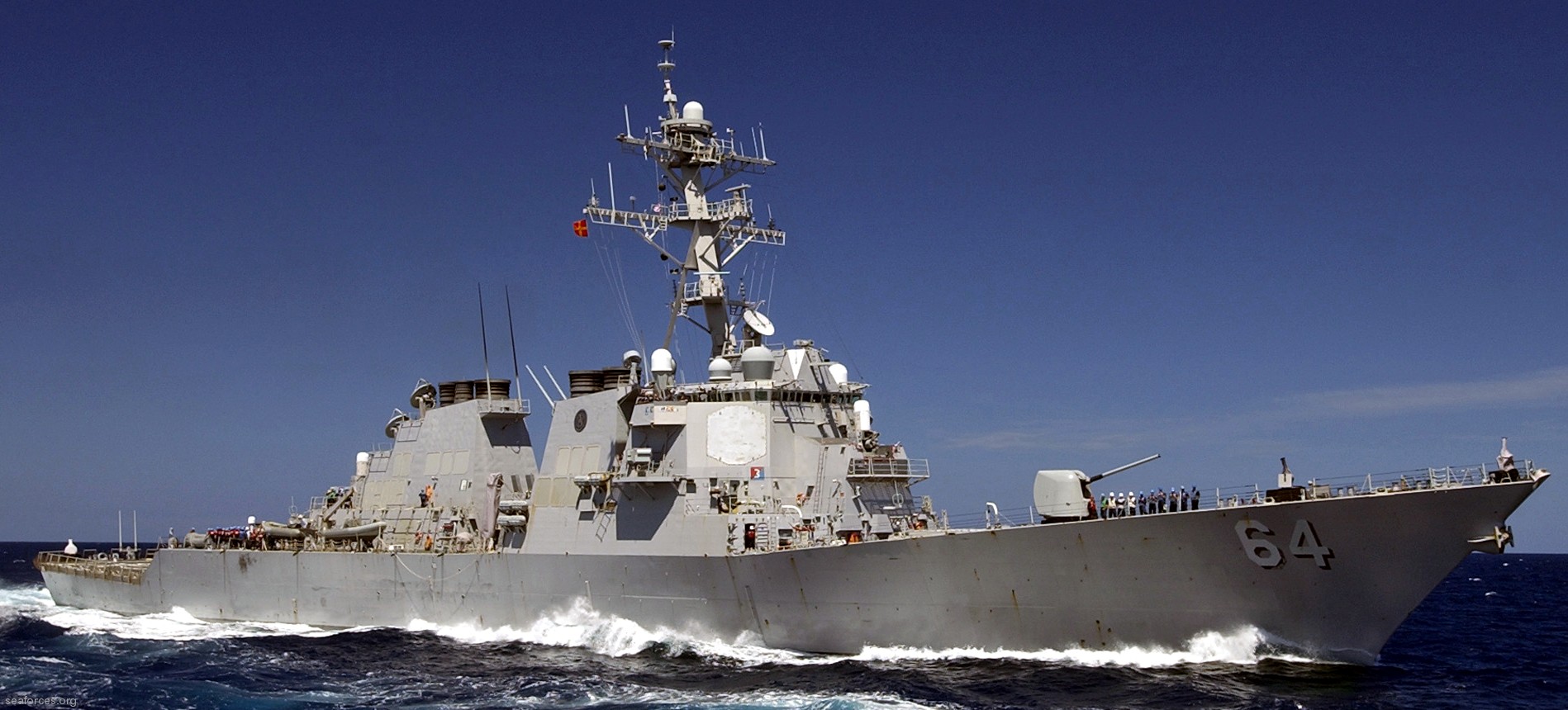 Caribbean Sea - April 2007 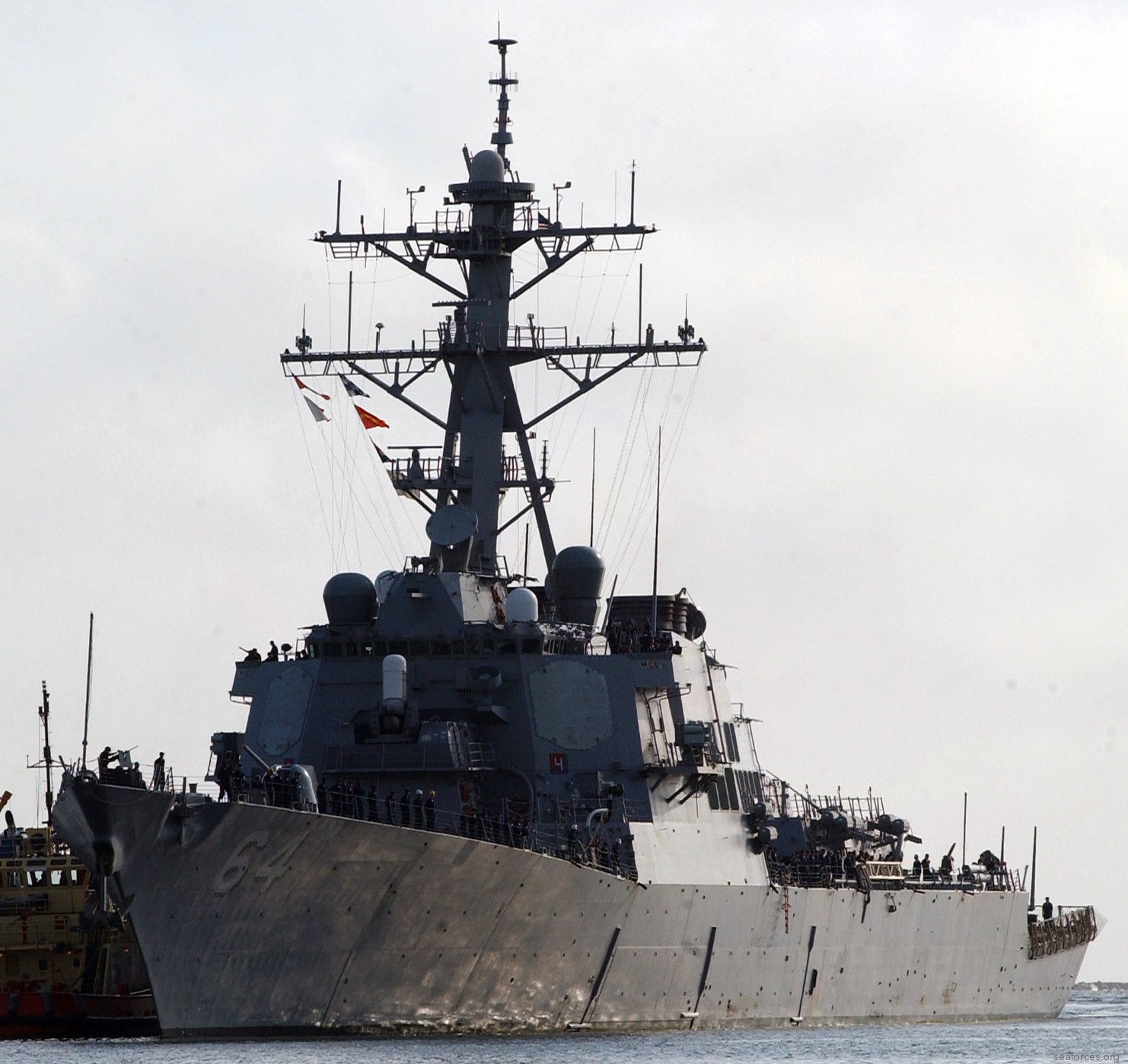 returning to Naval Station Mayport, Florida - September 2006 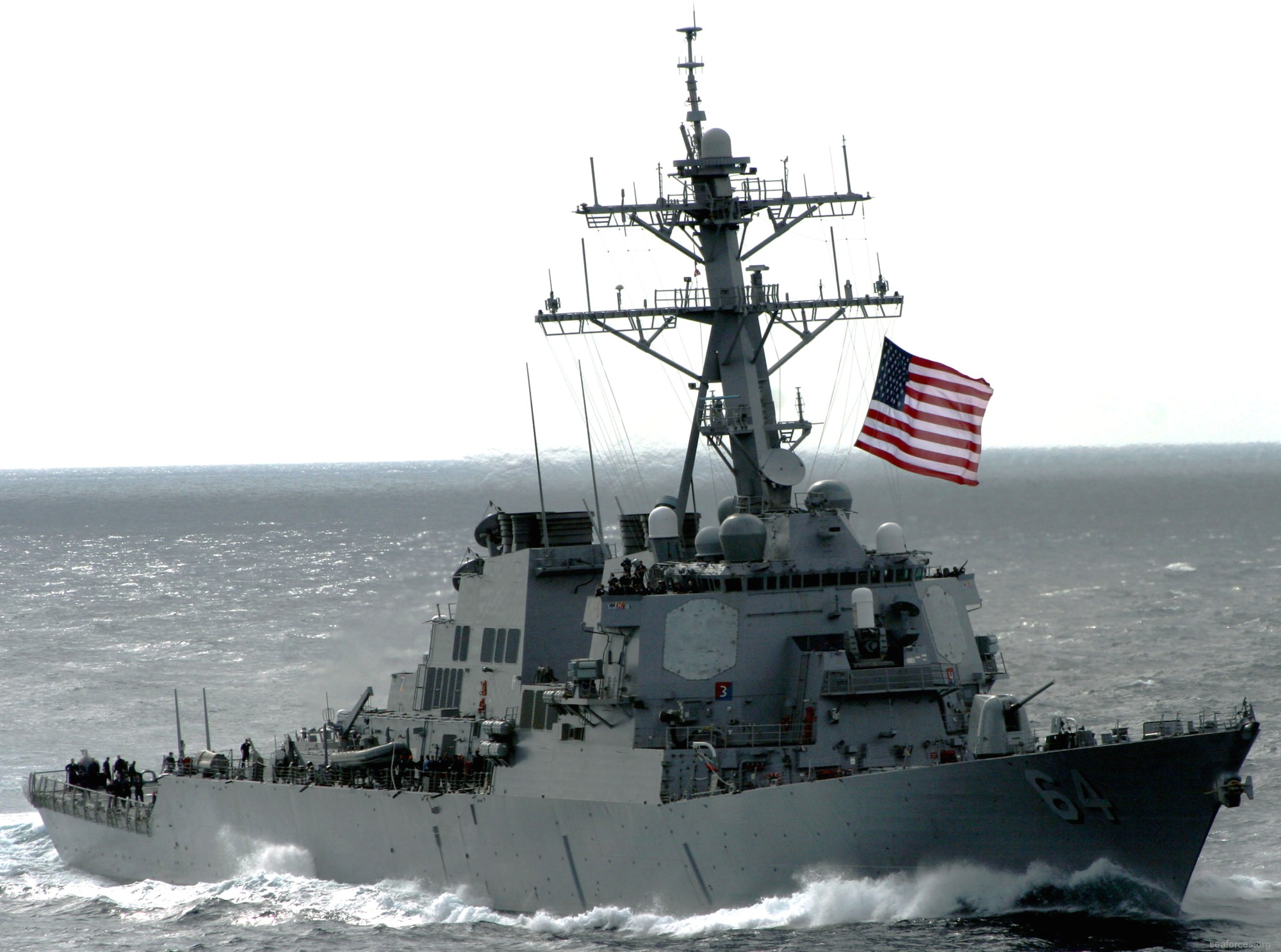 Atlantic Ocean - January 2006 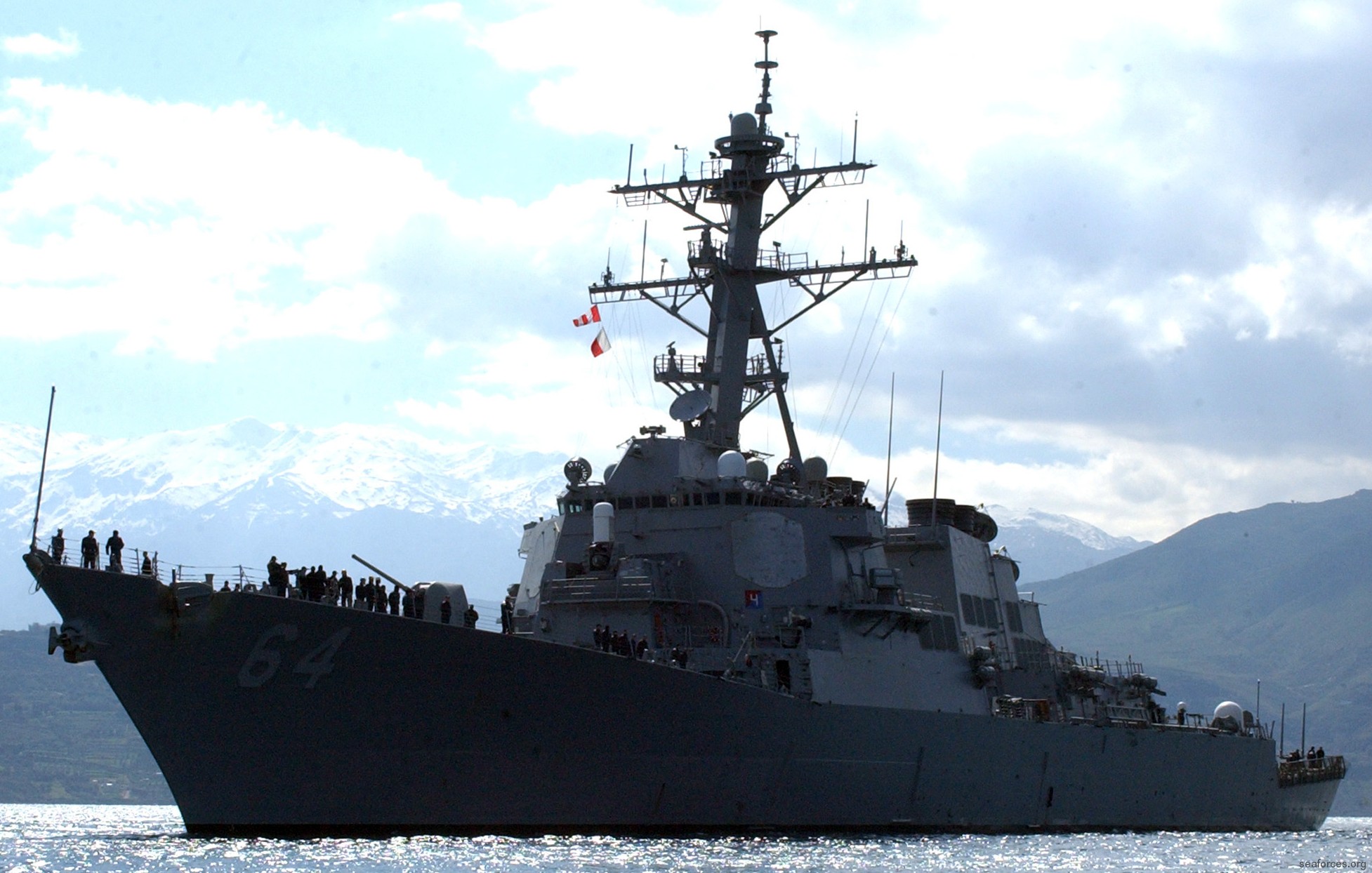 Souda Bay, Crete, Greece - March 2005 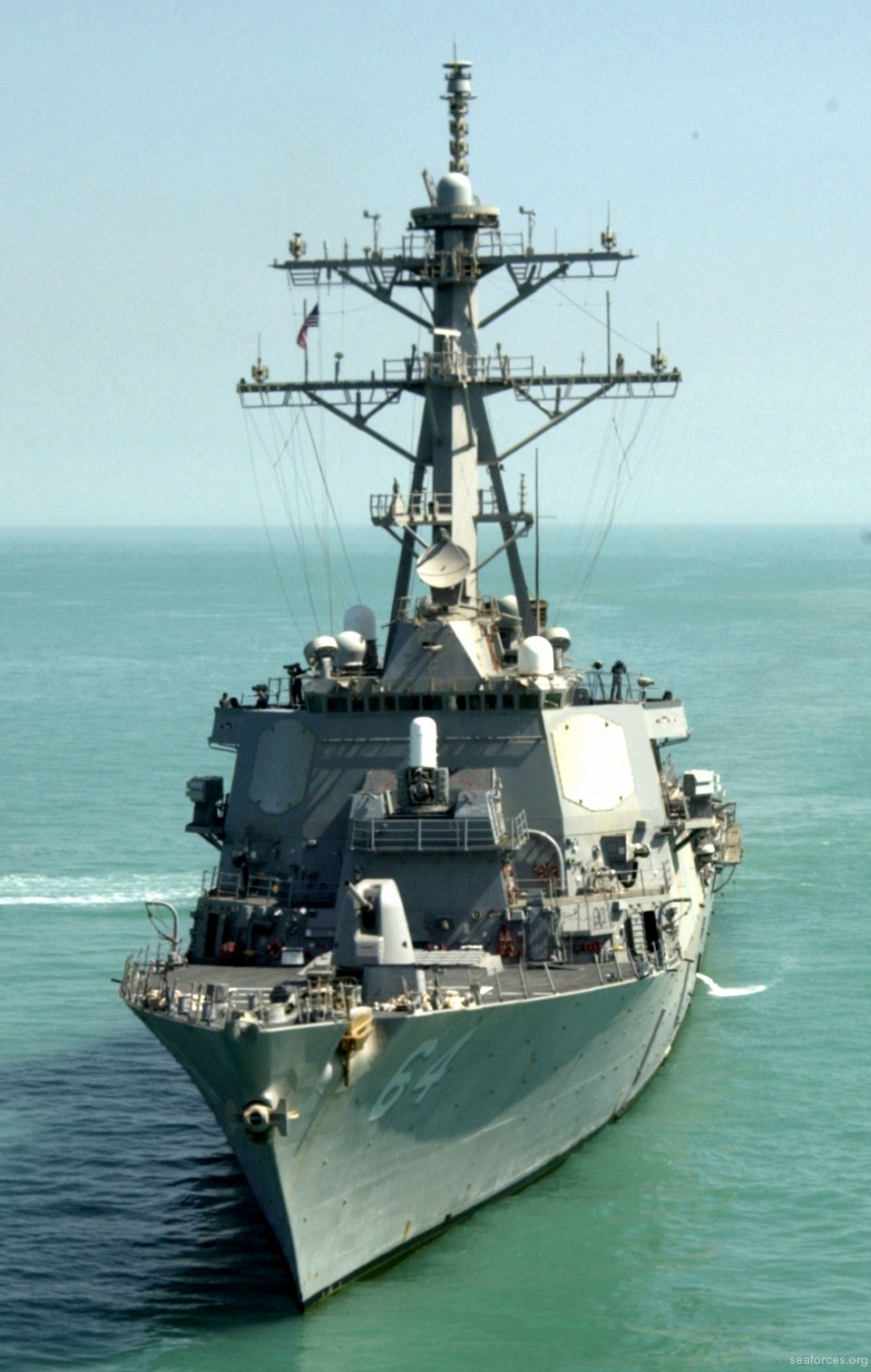 Arabian Gulf - August 2002 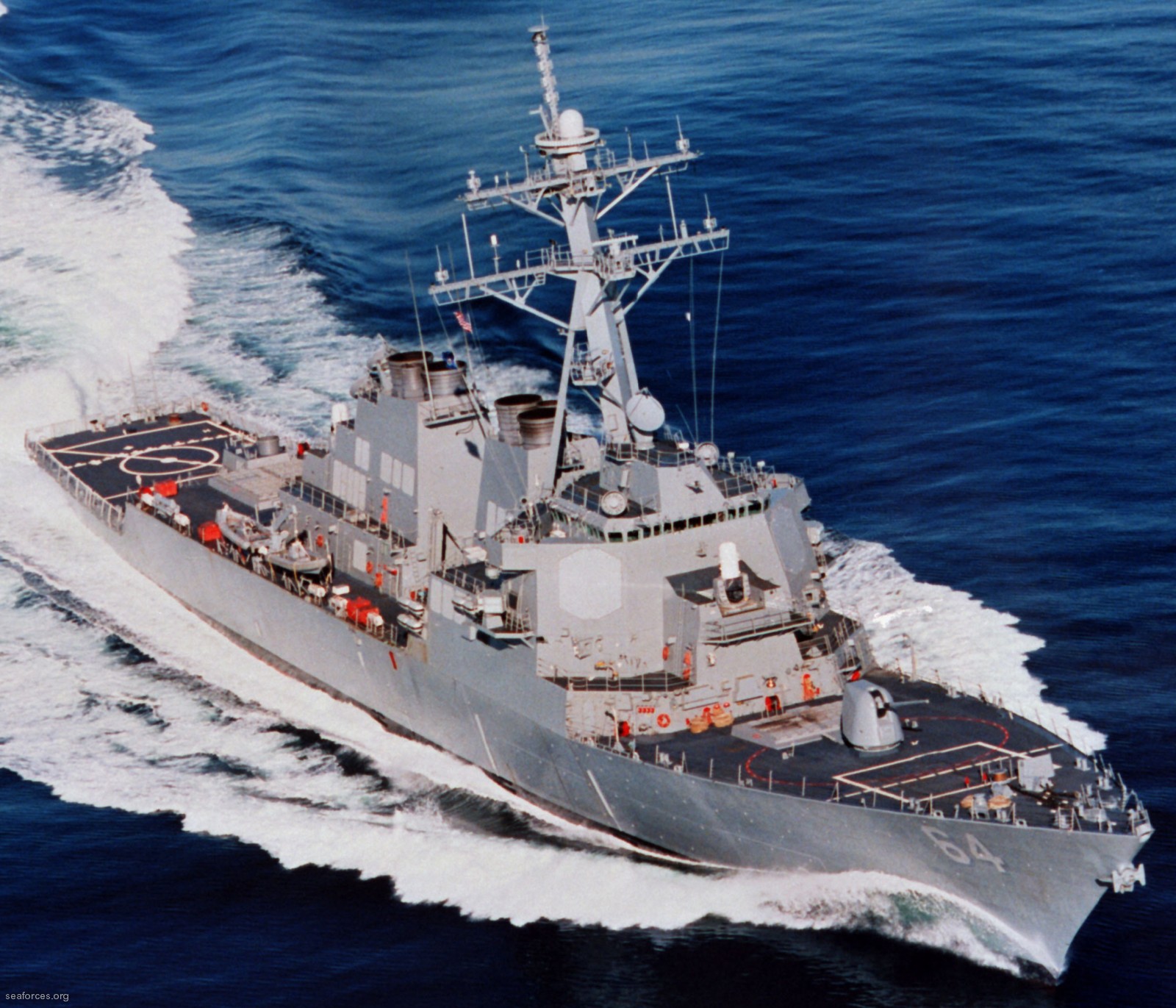 sea trials - October 1995  sea trials - October 1995 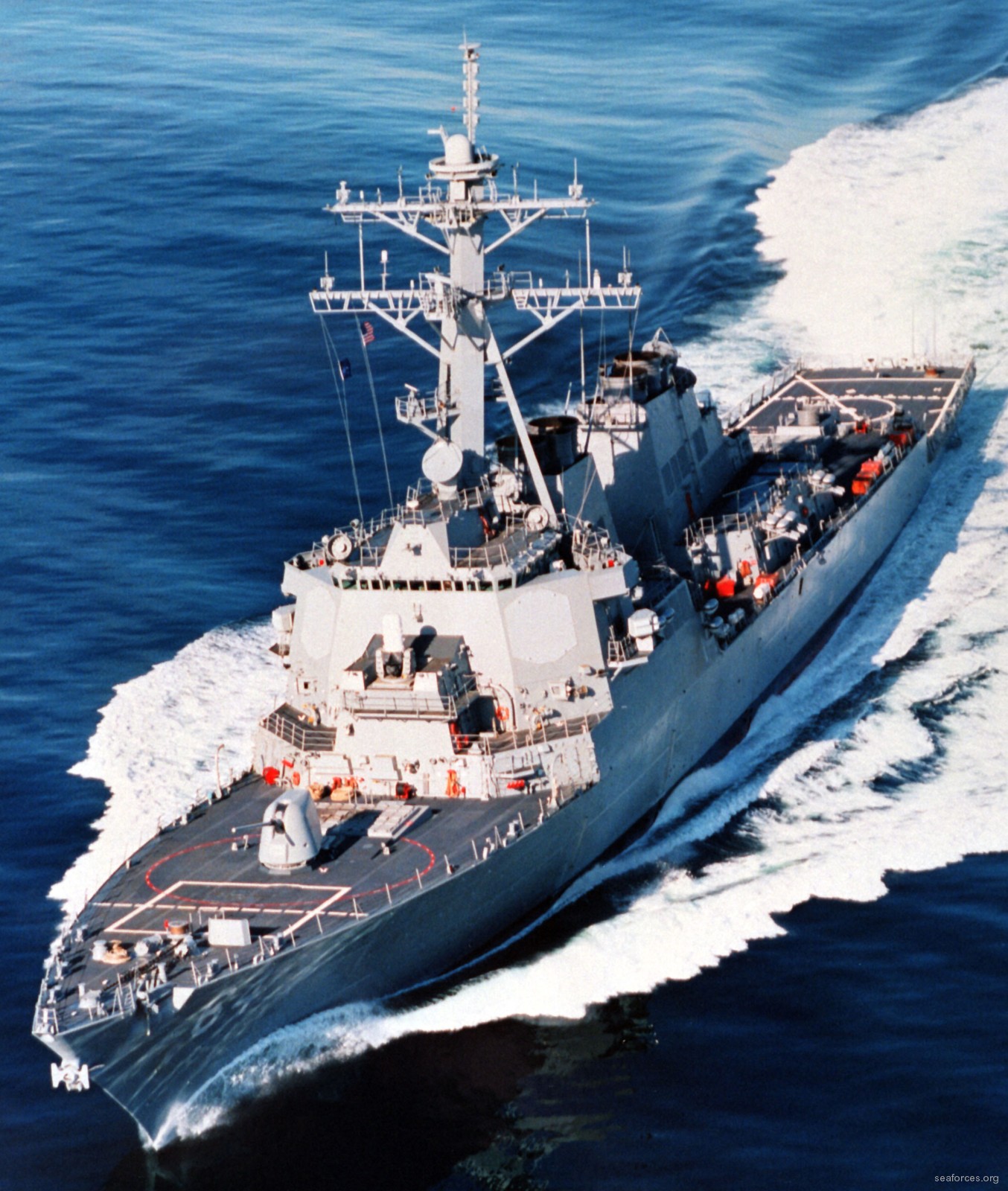 sea trials - October 1995 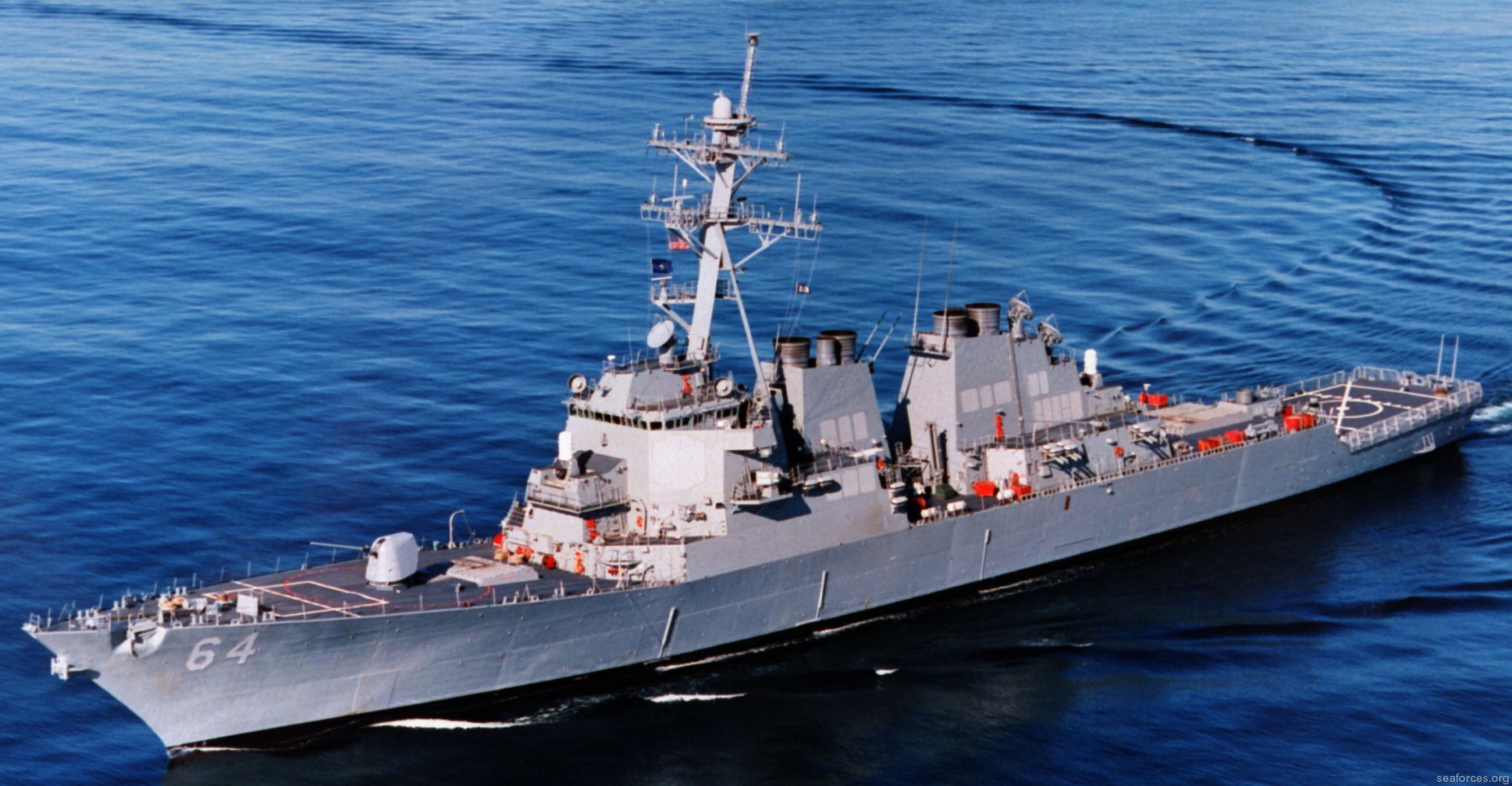 sea trials - October 1995 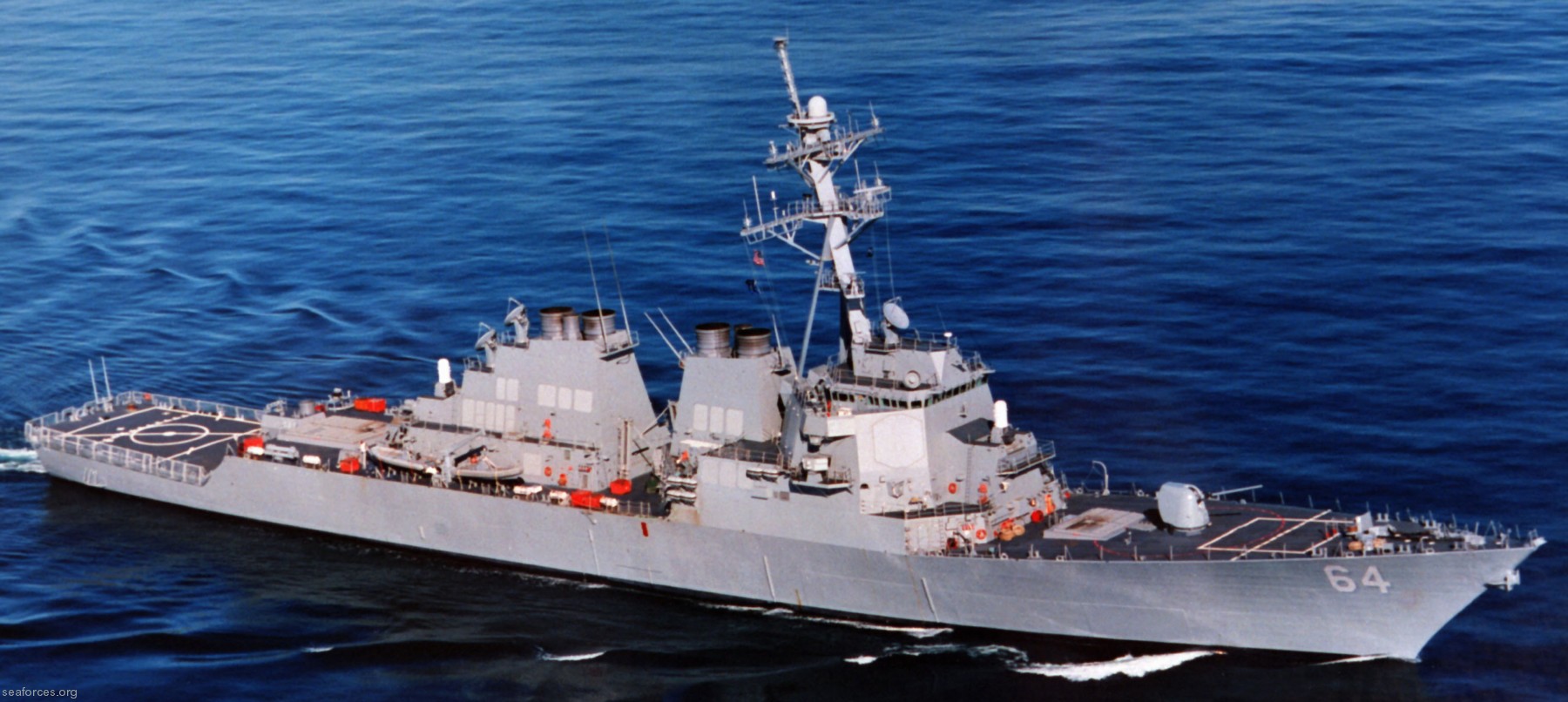 sea trials - October 1995 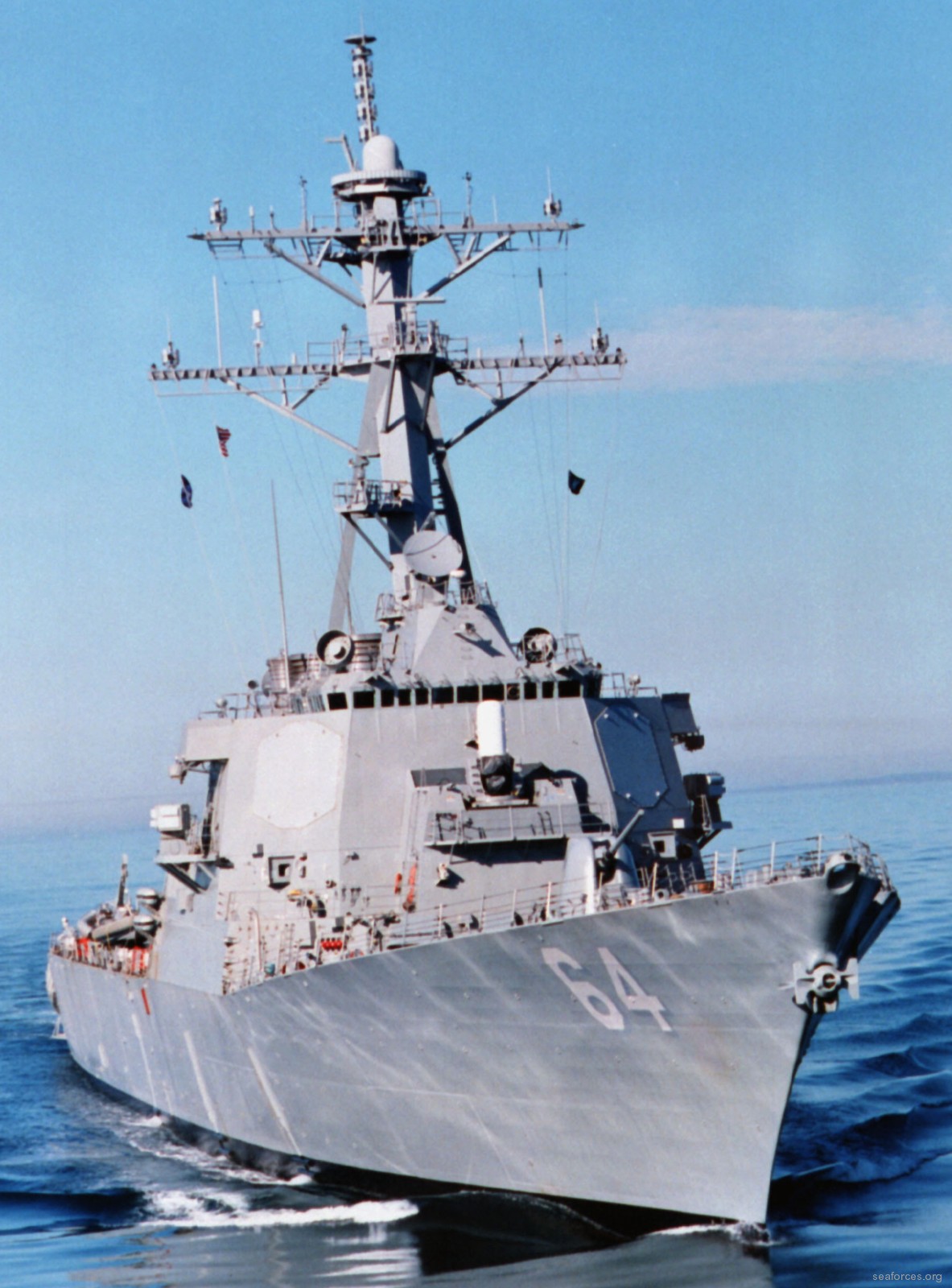 sea trials - October 1995 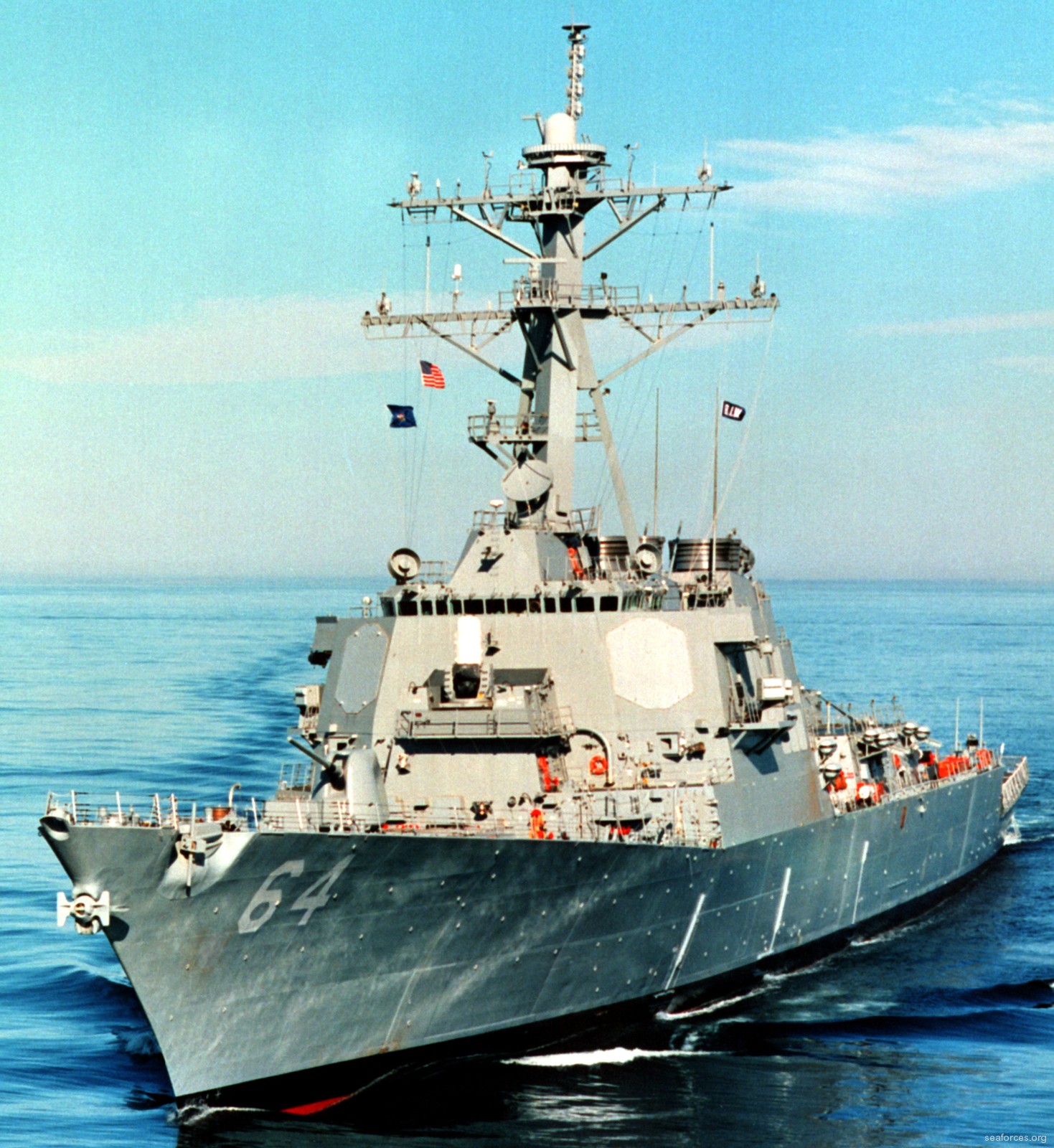 sea trials - October 1995 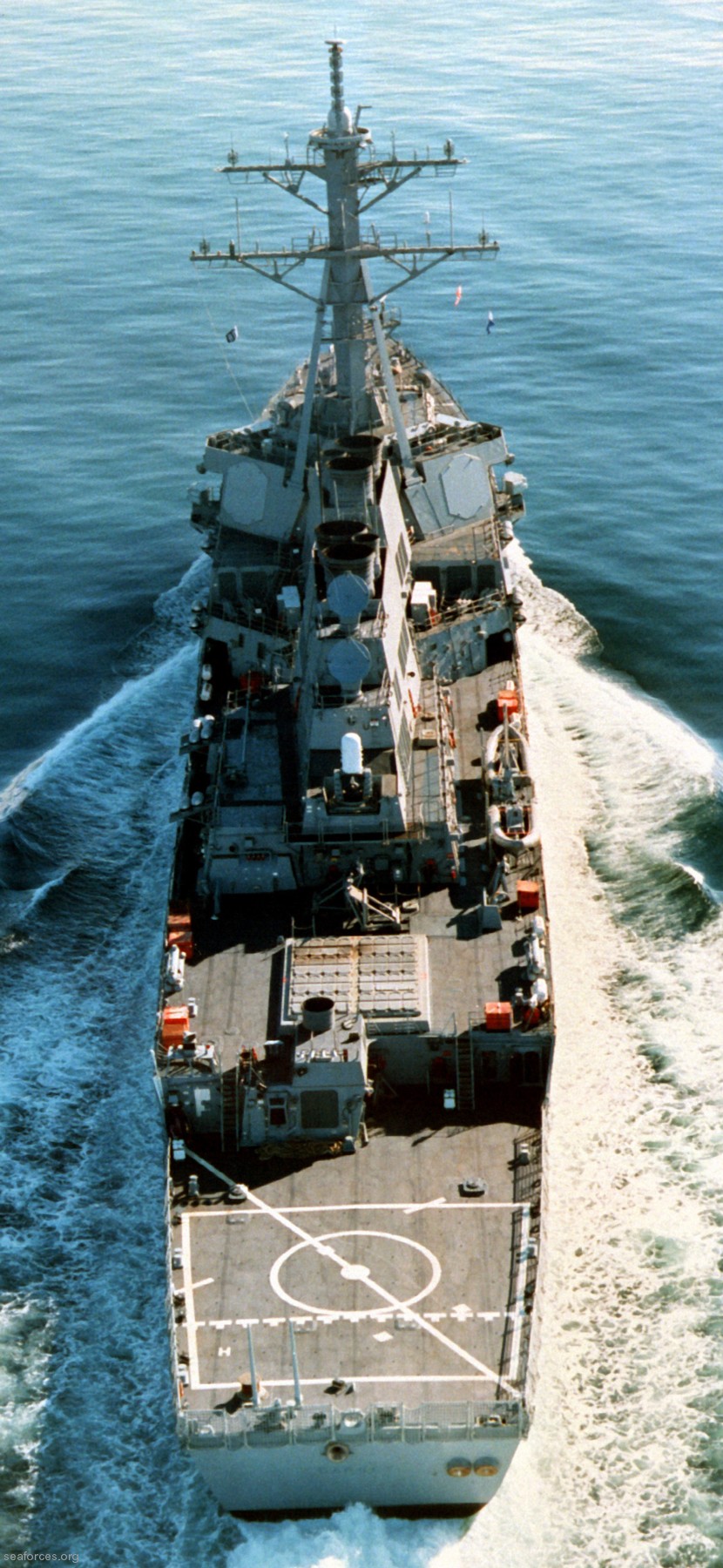 sea trials - October 1995 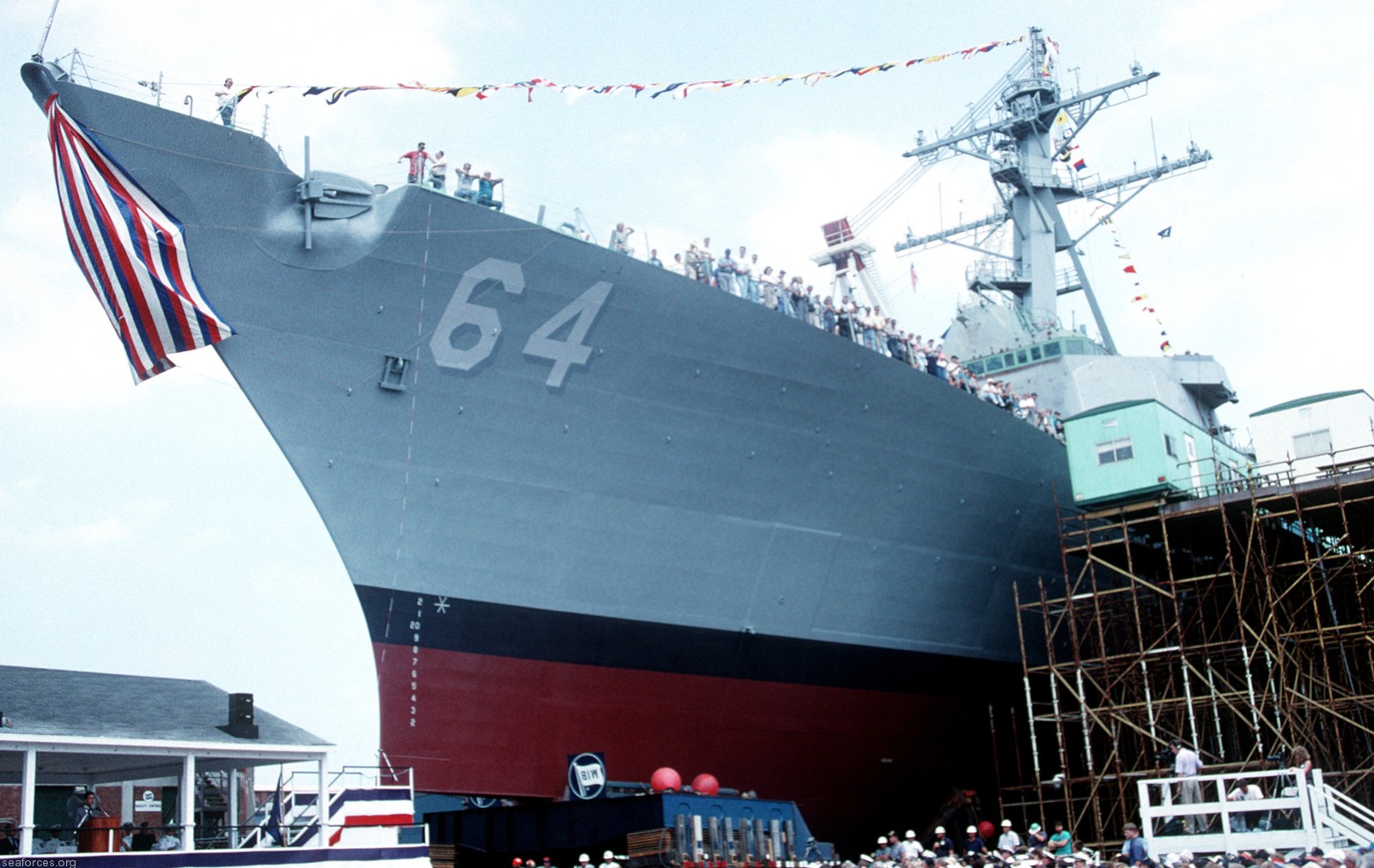 christening & launching ceremony at Bath Iron Works, Bath, Maine - July 23, 1994 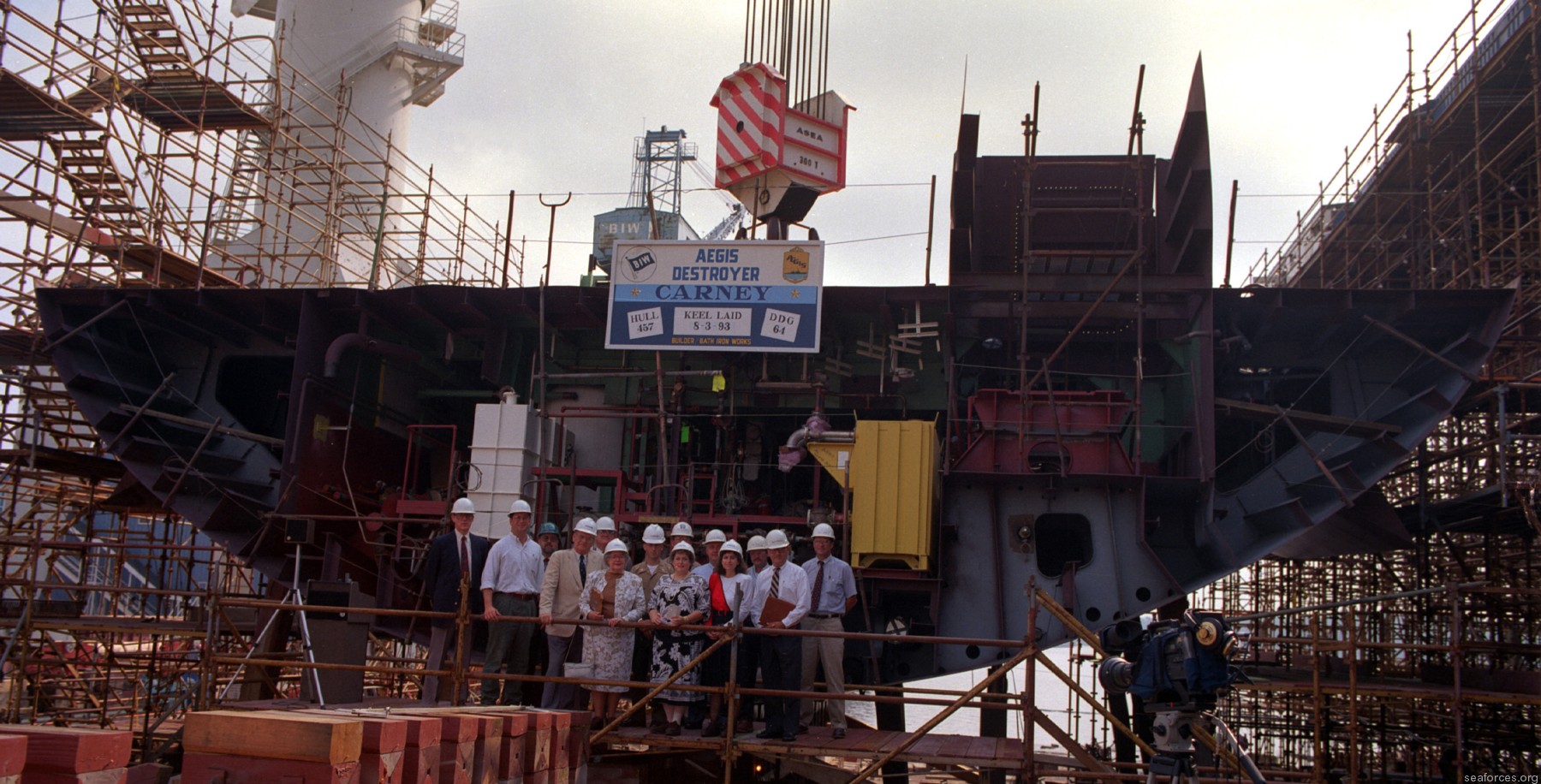 keel laying ceremony at Bath Iron Works, Bath, Maine - August 3, 1993 |
||
|
USS
Carney (DDG 64) Carney was assigned to Destroyer Squadron 14 prior to commissioning. Carney transferred to Destroyer Squadron 24 in September 1998. Her first deployment was to the Mediterranean Sea in 1997 and 1998 as part of the USS George Washington battle group. In 1999 Carney deployed again to the Mediterranean setting a milestone as the first United States Navy ship to operate in a bilateral United States-Japan Naval Exercise to be conducted in the Mediterranean Sea. In May 2001 Carney participated in Fleet Week in New York City. In February 2002 Carney operated as part of the USS John F. Kennedy battle group while conducting phase one of technical evaluations of Cooperative Engagement Capability systems in the waters of Puerto Rico. Phase two of these evaluations were then conducted in the Virginia Capes operating area. She deployed to the Mediterranean Sea and the Persian Gulf in 2002 in support of Operation Enduring Freedom. On 10 June 2002 Secretary of Defense Donald Rumsfeld visited the ship in Manama, Bahrain. In December 2003 Carney participated in a Vandel Exercise testing the capability to intercept hostile missiles with the ship’s missiles. On 13 August 2004 Carney put to sea from Naval Station Mayport in order to avoid the effects of Hurricane Charley. In March and April 2007, Carney visited St. Kitts and Nevis, Antigua and Barbuda, St. Lucia and Barbados to show the US's commitment to stability to its regional partners. During a visit to Barbados, Carney hosted a reception. Among the guests were Barbados Prime Minister Owen Arthur. In November 2007 Carney deployed with Carrier Strike Group Ten, led by the aircraft carrier USS Harry S. Truman, to the Middle East, where she carried out Theater Security Operations. She completed a number of multi-national exercises with a number of Middle Eastern countries and returned to Naval Station Mayport on 4 June 2008. In July 2008, Carney was in Philadelphia, Pennsylvania for Fourth of July Celebrations. On September 8, 2009 Carney arrived in New York City to participate in the 400th anniversary of Henry Hudson's arrival. On 12 November 2009, the Missile Defense Agency announced that Carney would be upgraded during fiscal 2012 to RIM-161 Standard Missile 3 (SM-3) capability in order to function as part of the Aegis Ballistic Missile Defense System. On 2 January 2010 Carney departed homeport for a scheduled deployment in the U.S. 5th and 6th Fleet AoR, as part of the Dwight D. Eisenhower carrier strike group. In May, the Carney took a month's sabbatical from CTF 150 and CTF 151 security operations, leaving the International Recommended Transit Corridor (IRTC) to participate in three separate and back-to-back multinational exercise: Arabian Shark 2010, an anti-submarine warfare exercise with Pakistan; Khunjar Haad 2010, an air defense exercise with Oman; and Eagle Salute 2010, a multi-warfare area exercise hosted by Egypt. Returning to Naval Station Mayport on 31 July 2010. On 1 August 2011, Carney departed Naval Station Mayport for a scheduled deployment as part of Standing NATO Maritime Group 1 (SNMG 1). During the deployment, she disrupted four piracy attempts, boarded nine vessels, approached 28 suspected pirate vessels, and disarmed and captured 30 suspected pirates in support of Operation Ocean Shield. On 17 October 2013, Carney departed Naval Station Mayport for a scheduled independent deployment. On May 25 2014, Carney returned to Naval Station Mayport after a seven-month Persian Gulf deployment in support of Maritime Interception Operations (MIO). On 25 September 2015, Carney arrived at its new homeport of Naval Station Rota, Spain, after a 19-day transit from Naval Station Mayport. In July 2016, Carney was called on to support the rescue of nearly 100 migrants whose small inflatable watercraft was adrift in the water. The ship arrived where the migrants were adrift in their vessel and provided aid to them until a rescue ship, MS Aquarius, arrived. In August 2016, Carney took part in Operation Odyssey Lightning, serving as an escort ship to USS Wasp whose aircraft carried out airstrikes on ISIS militants in Libya. Carney also fired illumination rounds from its 5-inch gun to help a U.S.-backed Libyan ground forces fighting ISIS in Sirte. In November 2016, Carney was deployed in Drapetsona port, Greece, to provide air cover for President's Barack Obama visit to Athens. In late March 2017, "Carney" arrived at HMNB Clyde in Scotland in preparation for NATO Exercise Joint Warrior. On 17 February 2018, Carney joined USS Ross (DDG-71) in the Black Sea near Russia for an "unspecified regional proactive presence mission". The move follows increased tensions between Russia and the U.S. after American federal prosecutors announced indictments against 13 Russian citizens for their alleged interference in the 2016 U.S. Presidential campaign. On 27 June 2020, Carney departed Rota, Spain for its homeport shift to Mayport, Florida. On 8 October 2023, the day after the Hamas attack on Israel, U.S. Secretary of Defense Lloyd Austin directed the Gerald R. Ford carrier strike group to the Eastern Mediterranean in response. Along with the carrier, the group includes the cruiser Normandy, and the destroyers Carney, Ramage, Roosevelt and Thomas Hudner. From then until December 2023, the destroyer was at the forefront of operations to destroy Houthi drones and missiles in the Red Sea, as commercial vessels repeatedly came under attack by the Iran-allied Houthi militants in Yemen. On 19 October 2023, Carney intercepted three cruise missiles and eight drones fired by Houthi militants in Yemen. Although the targets were uncertain, the missiles and drones were shot down because they were headed north along the Red Sea in the direction of Israel amid rising tensions in the region during the Gaza war. It was subsequently reported that Carney actually encountered a larger and more sustained barrage than was previously known on that day, shooting down four cruise missiles and 15 drones over a period of nine hours. On 29 November 2023, Carney shot down a KAS-04 drone launched from a Houthi-controlled area of Yemen in the Red Sea. On 3 December 2023, Carney and civilian-owned commercial ships were attacked in international waters in the southern Red Sea, with anti-ship ballistic missiles fired from Yemen by Iranian-backed Houthi rebels. Missiles struck three commercial ships, while Carney shot down three drones in self-defense during the hours-long assault. The United States Central Command said in a statement: "We ... have every reason to believe that these attacks, while launched by the Houthis in Yemen, are fully enabled by Iran." On 16 December 2023 while operating in the Red Sea, Carney successfully shot down a barrage of 14 unmanned aerial system (UAS) one-way attack drones launched from Houthi-controlled areas of Yemen. Vice Admiral Brad Cooper, head of U.S. 5th Fleet, subsequently visited the ship and presented combat medals to five sailors for their "exceptional performance" in the engagement. Cooper also recognized the whole crew of the Carney with the Navy's Combat Action Ribbon, which is awarded when a sailor has “rendered satisfactory performance under enemy fire while actively participating in a ground or surface combat engagement".Carney’s commanding officer, Commander Jeremy Robertson, and another sailor received Navy Commendation Medals from Cooper, and Robertson received a Bronze Star, while three other crew members received Navy and Marine Corps Achievement Medals. On 13 January 2024, Carney conducted follow-on action by firing Tomahawk cruise missiles at Houthi rebels in Yemen a day after the main strike package. Later, Carney and other coalition ships responded to a strike by the Houthis on the British oil tanker MV Marlin Luanda on 26 January 2024. She arrived on scene a few hours after INS Visakhapatnam to render firefighting aid. On 26 January 2024, Carney shot down an anti-ship ballistic missile fired by the Houthis in the Gulf of Aden. On 30 January 2024, Carney reportedly shot down an anti-ship ballistic missile fired by the Houthis in the Gulf of Aden with an SM-6 missile, marking the first publicly acknowledged SM-6 combat intercept by the DOD. On 5 March 2024, Carney shot down one anti-ship ballistic missile and three one-way attack unmanned aerial systems launched by the Houthis in the Red Sea. On 13-14 April 2024, Carney and USS Arleigh Burke shot down at least six Iranian ballistic missiles during the 2024 Iranian strikes in Israel. Carney returned to Naval Station Mayport on 20 May 2024 after a seven-month deployment and fifty-one Houthi Engagements. During the course of her deployment, Carney participated in the second most amount of combat of any U.S. Naval ship since World War II. source: wikipedia |
||
|
Admiral Robert Bostwick Carney (March 26, 1895 - June 25,
1990): Admiral Robert Bostwick Carney, United States Navy, (Retired) was born in Vallejo, California, on 26 March 1895, the son of Lieutenant Commander Robert Emmett Carney, United States Navy, who was retired in that rank, and Mrs. Bertha V.H. (Bostwick) Carney. He attended Central High School, Philadelphia, Pennsylvania, before his appointment to the United States Naval Academy at Annapolis, Maryland, by President William Howard Taft in 1912. While a midshipman, he participated in swimming and boxing. He was graduated, with credit, and commissioned Ensign in June 1916. Upon graduation in 1916, he joined the USS New Hampshire, serving in that Battleship until October of that year, when he joined the USS Dixie. He continued to serve in the Dixie, based at Queenstown, Ireland, after the United States entered World War I, until July 1917, when he transferred to the USS Fanning, attached to the Force commanded by Admiral Sir Lewis Bayly, Royal Navy. He was serving as her Gunnery and Torpedo Officer when the Fanning sank the German U-58 on 17 November 1917, and brought her crew into Queenstown as prisoners. Later, Admiral Carney, then a Lieutenant, was commended for his handling of the Fanning as Officer of the Deck in an encounter with a submarine off the coast of France. Between the wars, he commanded several destroyers and a Naval Transport Service ship, served as Gunnery Officer of a cruiser, Executive Officer of a battleship and acquired staff experience in the Fleet. Ashore, he served in the Navy Department in the Division of Fleet Training and in the Shore Establishment Division of the Secretary of the Navy's office. While in the last-named duty, he assisted in the general coordination of the Navy's small craft program, which included the design, construction, and operation of types built especially for military use (motor torpedo boats and submarine chasers), and the mobilizing of privately owned craft and their operators for use in the plan for defense. During this tour of duty, he also served as Naval Aide to His Royal Highness, the Crown Prince of Norway, during the latter's visit to the United States 27 June - 6 July 1939. In February 1941, Admiral (then Commander) Carney was recalled from duty in the Pacific Fleet to assist in organizing, equipping, and training of a special Surface-Air Force, having as its mission the protection of shipping against submarine and air attack. This force became fully involved in convoy escort prior to the Japanese attack on Pearl Harbor. From September 1941 until April 1942, this Force, under its Commander, the late Vice Admiral Arthur L. Bristol, Jr., established the remarkable record of escorting over 2,600 ships on the ocean lanes with a loss of only six ships. As Operations Officer and, later, Chief of Staff to Admiral Bristol, Admiral Carney (then a Captain) was awarded the Distinguished Service Medal for his contributions to anti-submarine warfare. The citation accompanying the award states, in part, "With remarkable and distinctive skill (he) prepared all operational plans preceding and during belligerent operations of the Force..." From 15 October 1942 until July 1943, he commanded the cruiser USS Denver, and was twice decorated for engagements in the Solomon Islands campaign. He was awarded the Legion of Merit with "V" (Combat Distinguishing Device) "for exceptionally meritorious conduct...in action against enemy Japanese forces...March 5-6 , 1943...participating in vital missions in this area of intense activity, (he) skillfully directed the carefully planned operations of his ship in various actions, including the occupations of the Russell Islands." He earned the Bronze Star Medal with Combat "V" for "meritorious service as Commanding Officer of the USS Denver, attached to a Task Group of the THIRD Fleet, during operations against the enemy Japanese-held Islands of Kolombangara, Shortland, and Bougainville, in the Solomons area, the night of July 29, 1943. Proceeding through unfamiliar waters, (he) took advantage of adverse weather to lay a large quantity of explosive mines along the sea lanes extensively used by the enemy and, in addition delivered a smashing bombardment against Japanese shore installations on these islands..." On 26 July 1943, he was promoted to Rear Admiral and became Chief of Staff to Admiral William F. Halsey, Jr., Commander, South Pacific Force, which included all ground, sea, and air forces in the South Pacific area. While in this assignment, Rear Admiral Carney was awarded his second Distinguished Service Medal for contributions which he made in the field of over-all strategy and the organizing of the logistic support of the Allied Forces in the South Pacific, the citation stating, in part: "displaying sound judgment and distinctive tactical ability, (he) conceived and correlated the many offensive operations carried out in the Solomon Islands and Bismarck Archipelago Areas. Through his comprehensive knowledge of logistics and his expert planning, he enabled our Forces to exert their greatest strength against the enemy and administer a series of crushing defeats on the Japanese..." When Admiral Halsey assumed command of the THIRD Fleet in the Central Pacific in June 1944, Rear Admiral Carney accompanied him as Chief of Staff. He took part in the Palau, Leyte, Lingayen, and Okinawa campaigns and in the attack on Formosa, in the China Sea; against the Japanese homeland and the Second battle of the Philippine Sea. During this period, he earned the Navy Cross, the United States Navy's ranking decoration, and his third Distinguished Service Medal, the citations for these mentioning accomplishments in tactics and unfailing ability to achieve tactical surprise. These read, in part: The Navy Cross: "In operations against enemy Japanese forces during the Battle for Leyte Gulf, from October 23 to 26, 1944...(He) rendered invaluable assistance in formulating the plans for a series of combat operations in which Task Forces of the THIRD Fleet engaged capital ships of the Japanese Fleet, waging devastating attacks on major Japanese combatant and carrier task forces in the vicinity on Mindora, the Sulu Sea, and areas northeast of Luzon and off the Central Philippines..." The Gold Star in lieu of a Third Distinguished Service Medal: "For exceptionally meritorious service to the Government of the United States in a duty of great responsibility as Aide and Chief of Staff to the Commander THIRD Fleet, from June 15 to October 22, 1944, and from October 27, 1944 to September 19, 1945. Handling problems of immense strategic and tactical importance, (he) rendered inestimable assistance in the conception, correlation, and execution of many offensive operations against the Japanese and in carrying out the initial landing on the Japanese mainland and subsequent occupation of this territory..." Rear Admiral Carney arranged with Japanese emissaries for the entry of the THIRD Fleet into Tokyo Bay, accepted the surrender of Yokosuka Naval Base and surrounding area from Vice Admiral Totsuka, of the Imperial Navy, and attended the surrender ceremony held in Admiral Halsey's Flagship, the Battleship USS Missouri. After the war, he was promoted to Vice Admiral in 1946 and until early February 1950, served as Deputy Chief of Naval Operations (Logistics) with over-all military cognizance of Fleet support, shore establishment, and procurement and supply matters. During this period, he sponsored and planned a Navy-wide logistical education program and integrated the Navy's logistic planning and performance system. He also was the Navy member of a special three-man committee appointed to solve the complex problem of dividing the National Defense appropriations and developing a budget structure applicable to all Services. After leaving the Navy Department, Vice Admiral Carney, on 6 March 1950, assumed command of the SECOND Fleet operating on the East Coast of the United States. On 2 October 1950, he was advanced in rank to Admiral and on 1 November 1950, became Commander in Chief, United States Naval Forces, Eastern Atlantic and Mediterranean, with Headquarters at London, England. On 18 June 1951, General Dwight D. Eisenhower, Supreme Allied Commander, Europe, announced the appointment of Admiral Carney as Commander in Chief, Allied Forces, Southern Europe. Admiral Carney met with the General for the first time as Commander in Chief the following morning and on the 20th of June, broke his flag as Commander in Chief, Allied Forces, Southern Europe, aboard the USS Mount Olympus at Naples, Italy. The Command was in operation in the record time of less than forty-eight hours after the appointment of Admiral Carney had been announced and at a spot more then 1,000 miles from where the Admiral was then located in London. The Command as first started was an integrated combined staff of Allied personnel, with command responsibilities covering Allied Forces, Southern Europe, Allied Naval Forces, Southern Europe, and United States Naval Force, Eastern Atlantic and Mediterranean. At the time of the establishment of the NATO Command, Admiral Carney shifted his US Navy Headquarters to Naples, Italy. He held this Command until 14 June 1952, when he turned it over to Vice Admiral Jerauld Wright, USN, who shifted it back to London. Admiral Carney, now free to devote full time to his NATO responsibilities, held the commands of Commander in Chief, Allied Forces, Southern Europe, and Commander, Allied Naval Forces, Southern Europe. In March 1953, Admiral Carney designated Vice Admiral John H. Cassady, USN, to take command of the Naval Subordinate Command and title was changed to Commander Naval Striking and Support Forces, Southern Europe. On 13 May 1953, President Eisenhower announced his selection of Admiral Carney as the next Chief of Naval Operations of the United States Navy. On returning to the United States in July 1953, Admiral Carney participated in a strategic appraisal study with the other newly-designated members of the Joint Chiefs of Staff. He was sworn in as Chief of Naval Operations on the 17th of August 1953, and served in that capacity until the 17th of August 1955. He also was a member of the Joint Chiefs of Staff during this period. On completion of his appointment as Chief of Naval Operations, Admiral Carney retired from active service. On the occasion of his retirement, President Eisenhower presented Admiral Carney with a citation and Gold Star in lieu of a Fourth Distinguished Service Medal for services rendered as Chief of Naval Operations and as former Commander of the NATO Forces in Southern Europe. In addition to the Navy Cross; the Distinguished Service Medal with three Gold Stars; the Legion of Merit with Combat "V;" and the Bronze Star Medal with Combat "V;" Admiral Carney has the World War I Victory Medal, Destroyer Clasp (USS Fanning); the American Defense Service Medal, Fleet Clasp (USS California); the American Area Campaign Medal; the European Africa-Middle Eastern Area Campaign Medal; the Asiatic-Pacific Area Campaign Medal, the latter with nine Battle Stars; the World War II Victory Medal; the Philippines Liberation Ribbon with two Bronze Stars. Admiral Carney also holds decorations from twelve foreign countries, many including the highest military recognition. Admiral Carney served twice as President of the United States Naval Institute. He was an Honorary Life Member of the National Security Industrial Association, and was a Gold Medal Life Member of the American Ordnance Association. He held a Bachelor of Science Degree and LLD (Honorary). Over the years, Admiral Carney's various assignments, coupled with his personal interest in Industrial participation in the Defense effort, resulting in close contact with Industry as an indispensable partner in the Military Logistical and Technical effort. Admiral Carney's Industrial and Business affiliations included the following: Chairman of the Board, Bath Iron Works Corporation Chairman of the Board, Bell Intercontinental Corporation Director on the Board of Bell Subsidiaries Member of the Board, Nation-Wide Securities Company, Inc. Member of the Board, Dividend Shares, Inc. Member of the Board, VEK Associates Consultant to the Westinghouse Electric Corporation Associate of Vandeburg-Linkletter Associates Chairman of the Board, Naval Historical Foundation Member of the Board and management Consultant, Logetronics Member Academic Advisory Board, US Naval Academy President Naval Academy Alumni Association Other Industrial management Consultant arrangements. He served on the Military Advisory Committee of the Gaither Study Group. Admiral Carney died in Washington, DC, 25 June 1990 and was subsequently buried at Arlington National Cemetery. source: US Naval History & Heritage Command
|
||
| patches + more | ||
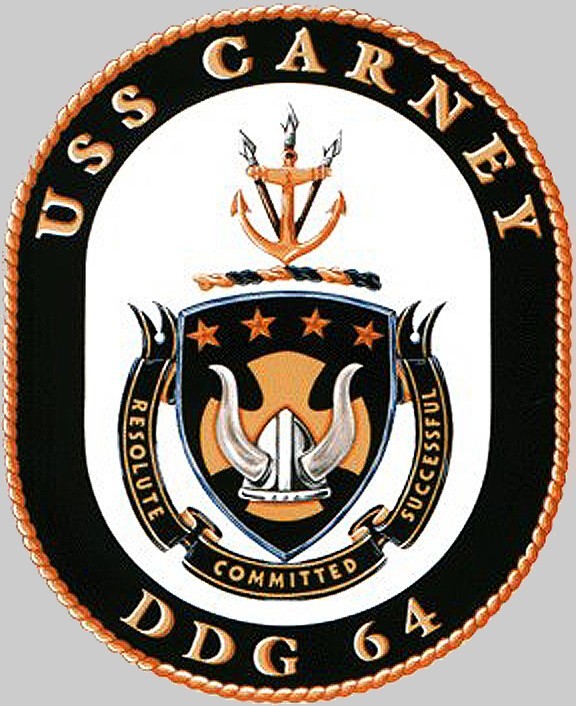 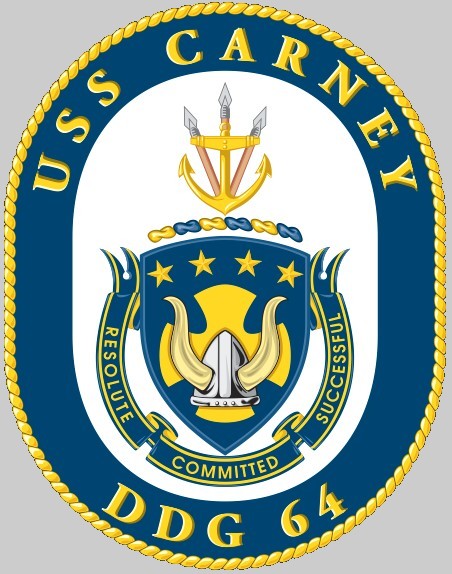 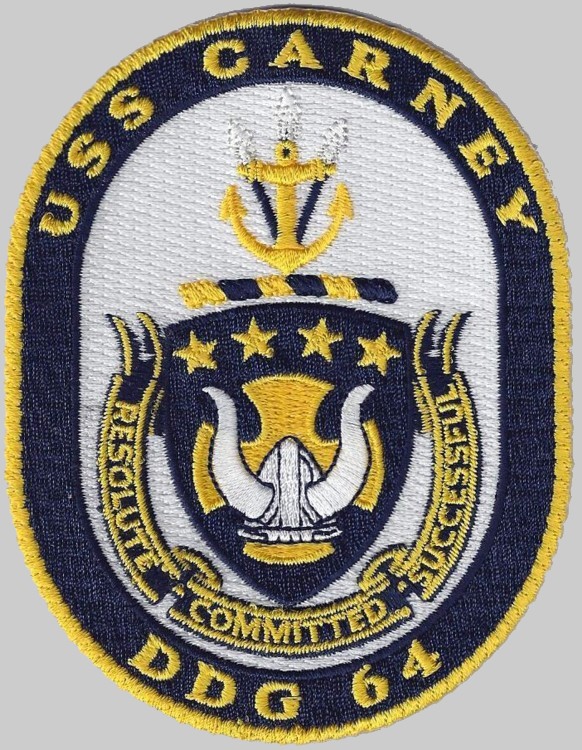 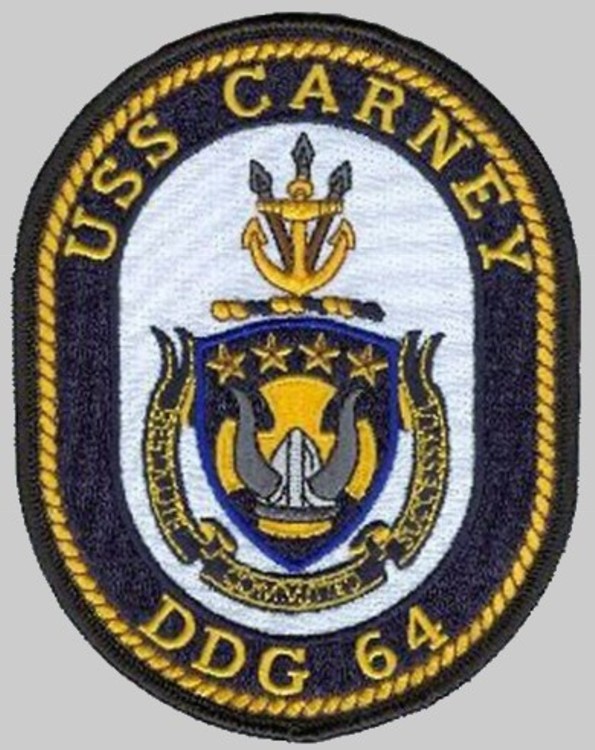 |
||
|
|
seaforces.org
|
USN ships
start page | |
